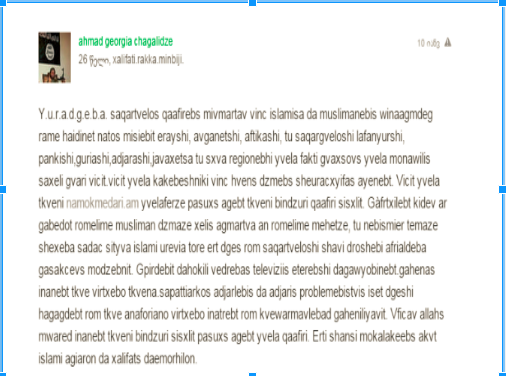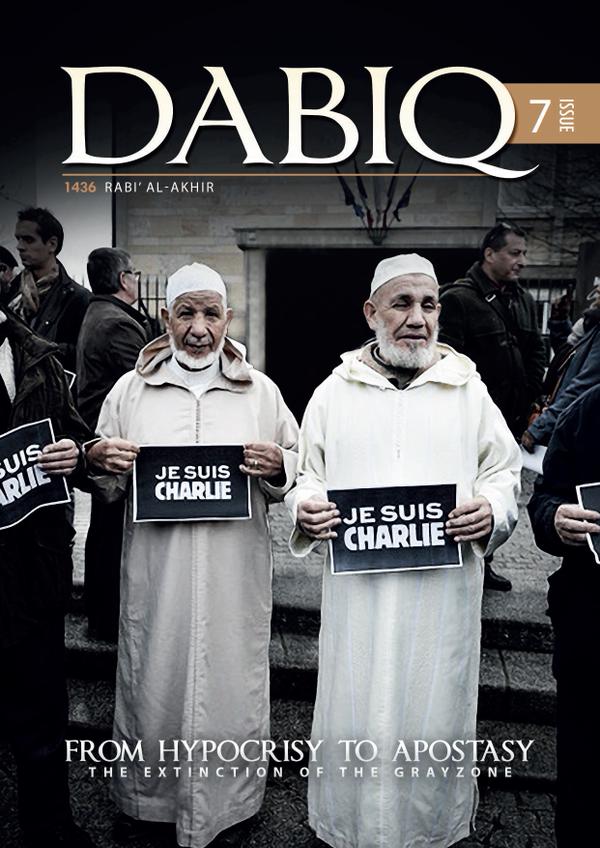Search Results for: dabiq
al-Ḥayāt Media Center presents a new issue of the Islamic State’s magazine: “Dābiq #2"
NOTE: Click here for the first issue of this magazine.
—

Click the following link for a safe PDF copy: Islamic State — “Dābiq Magazine #2″
___________
al-Ḥayāt Media Center presents a new issue of the Islamic State's magazine: "Dābiq #1"

Click the following link for a safe PDF copy: Islamic State — “Dābiq Magazine #1”
__________
Coronavirus and the Syrian Interim Government
May 3, 2021:
COVID-19 vaccination campaign begins in Aleppo countryside
April 2, 2021:
Northwestern Syria gears up to start an anti-COVID vaccination campaign next May
February 28, 2021:
Syrian opposition gears up for coronavirus vaccine drive
February 22, 2021:
Idlib Health Directorate to start vaccinating people against Coronavirus next March
October 22:
“Coronavirus” and prices… Syria’s al-Bab markets await selling activity
September 26:
Rising COVID-19 cases are putting additional pressure on northern Syrian medical facilities
August 28:
Coronavirus in camps of northwestern Syria despite previous warnings… Who is to blame?
July 25:
Is it sufficient to join efforts to curb COVID-19 northern Syria?
After reaching the state of relative stability in the number of infections with the coronavirus, the liberated Northern Doctors Syndicate holds the authorities in the northern countryside of Aleppo and demands that they stop human smuggling from the areas of the criminal regime’s control to the liberated areas
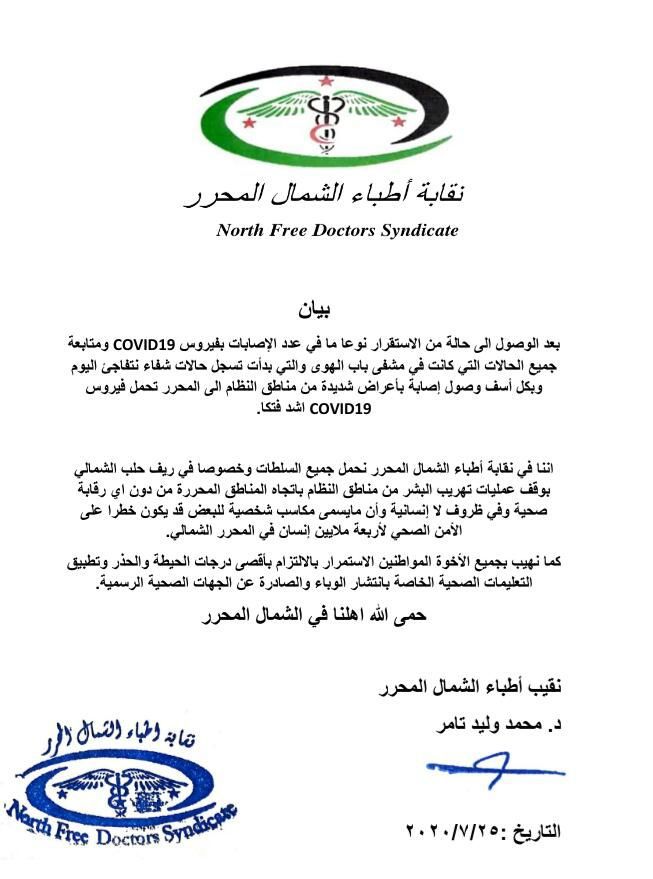
July 13:
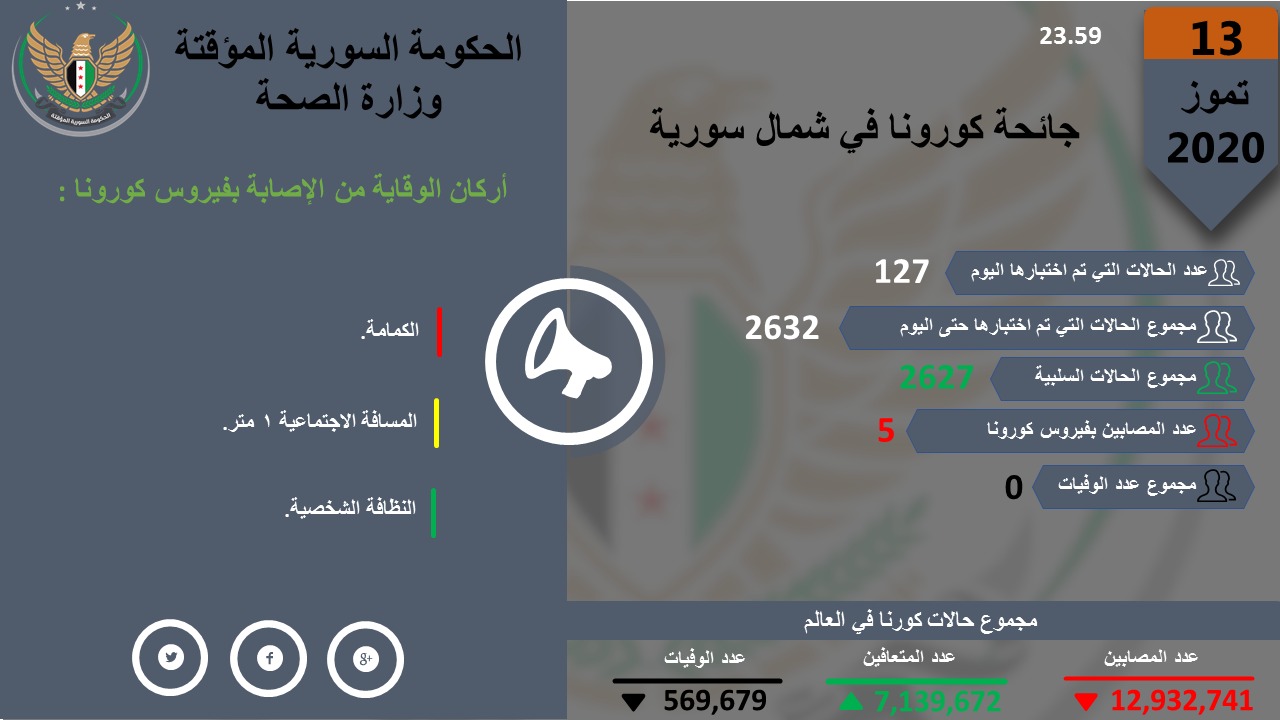
Raed Al-Saleh, Director of the Syrian Civil Defense to our people after recording four Coronavirus cases in Idlib Governorate
July 12:
“Coronavirus” preventive measures in Dabiq IDPs camps northern Aleppo
تقرير مجموعة العمل لفريق الاستجابة الوطنية بجائحة كورونا 19-COVID
Important tips for preventing coronavirus
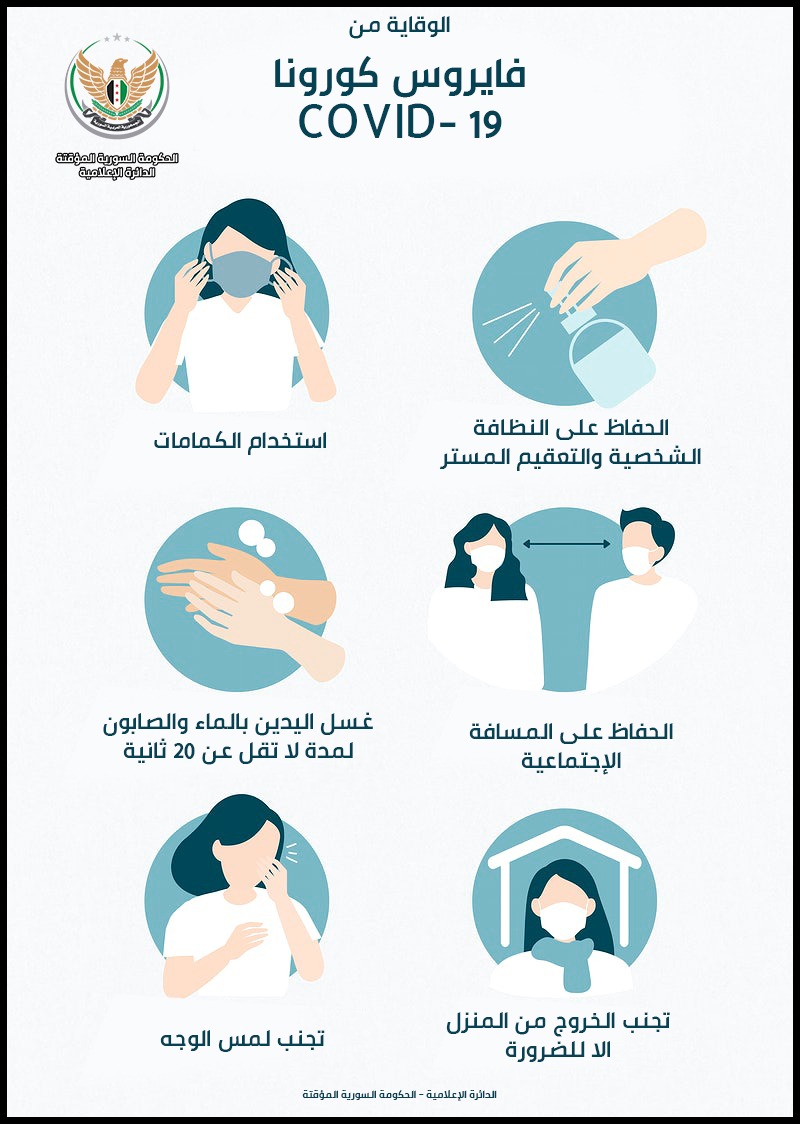
July 11:
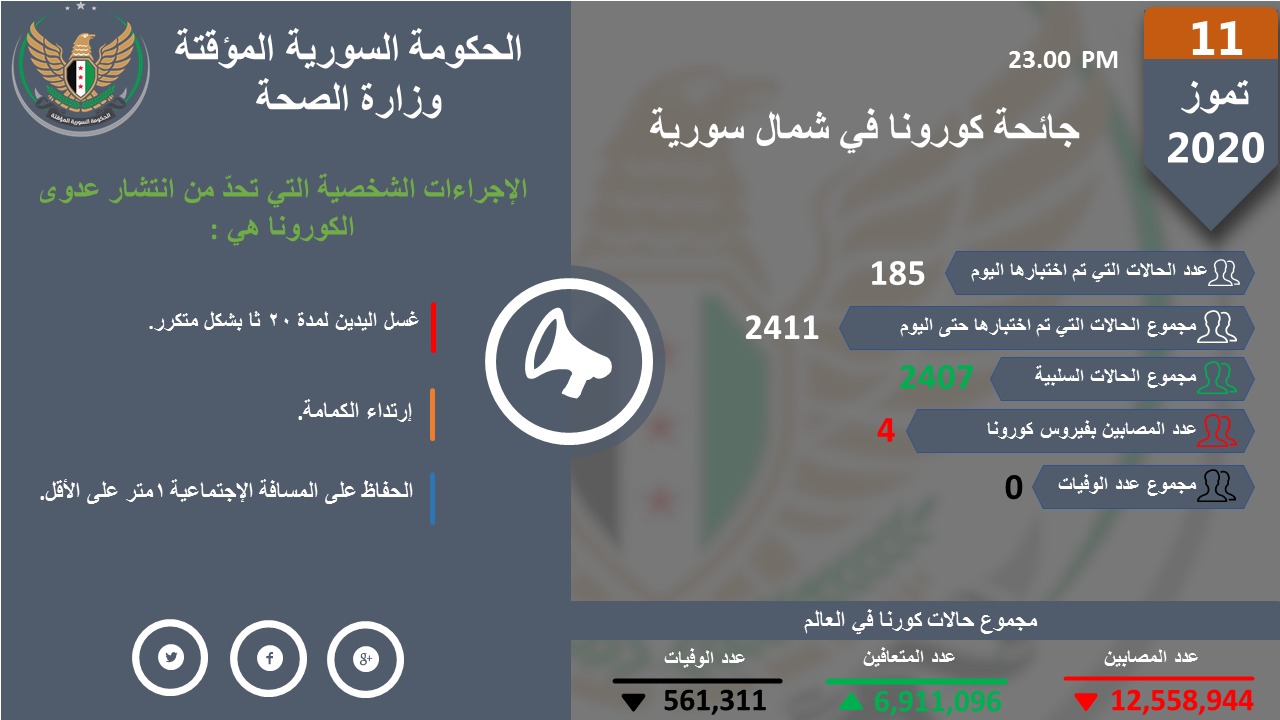
جامعة حلب تنهي امتحانات اليوم ضمن إجراءات احترازية مشددة لمنع انتشار فيروس كورونا.
Tips for the prevention of the emerging coronavirus
July 10:
وزير الصحة يتوقع ازدياد عدد الإصابات بفيروس كورونا مع بداية شهر أيلول.
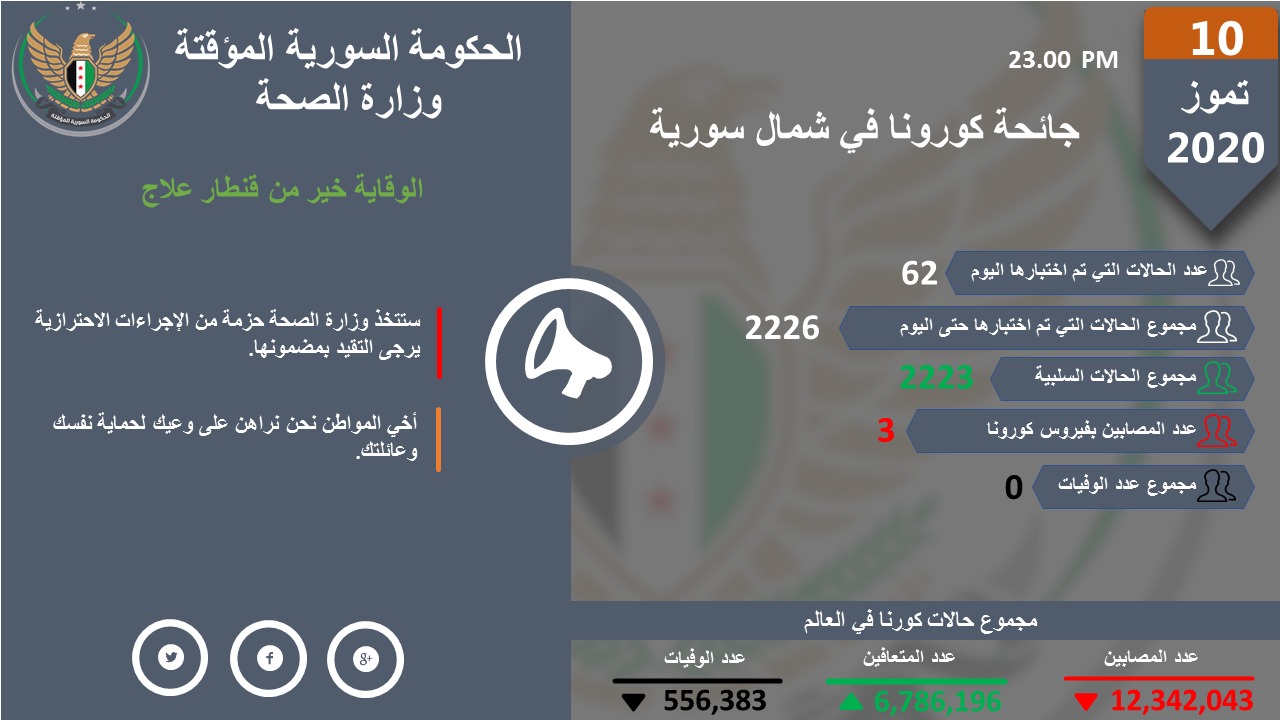
رسائل حول بدء تفشي كوفيد19 في الشمال السوري
تعميم بخصوص تسجيل أول إصابة بفيروس كورونا في الشمال السوري
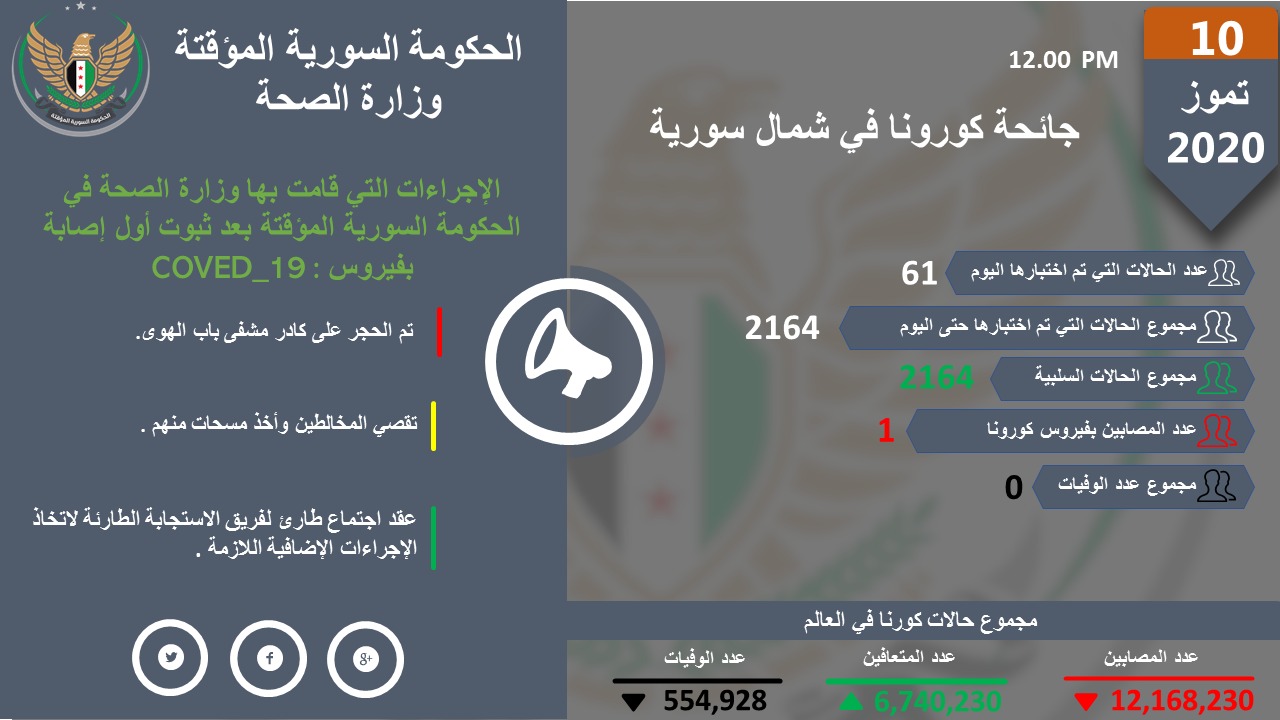
Instructions to reduce the risk of coronavirus “Covid 19” infection
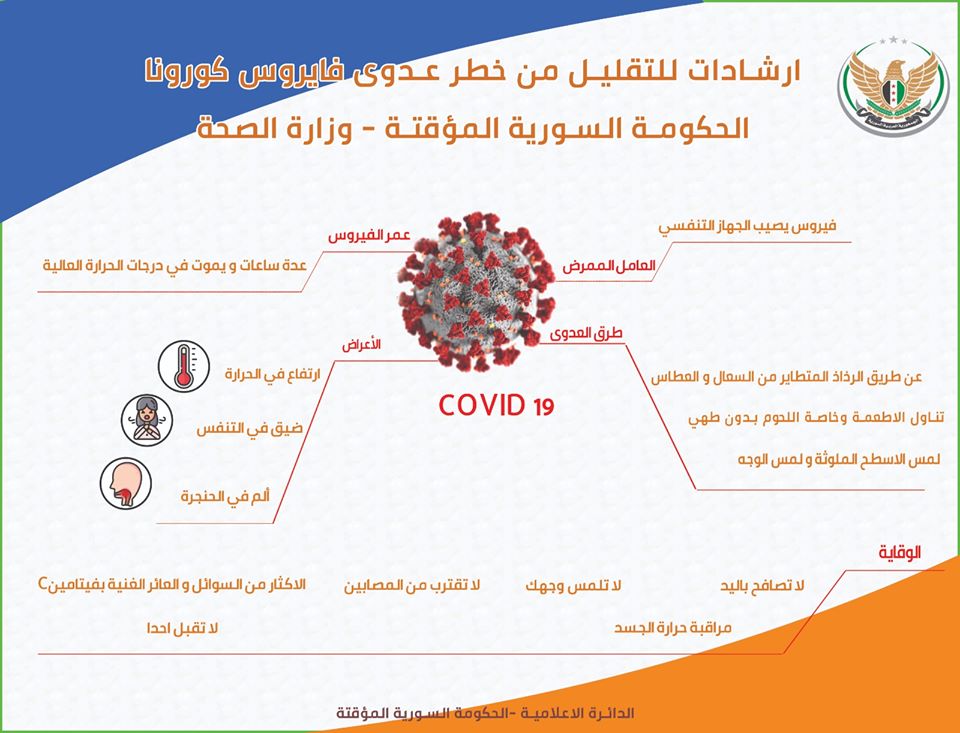
July 9:
رسالة توعية مجتمعية للوقاية من فيروس كورونا
Circular from the Idlib Health Directorate
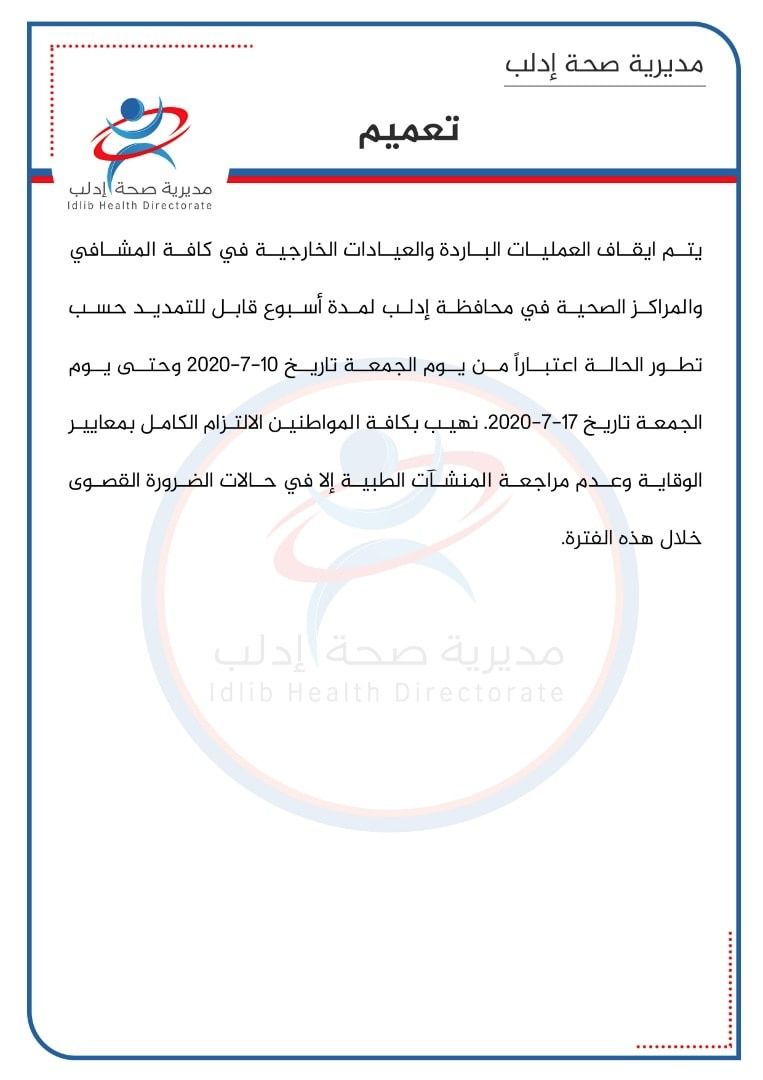
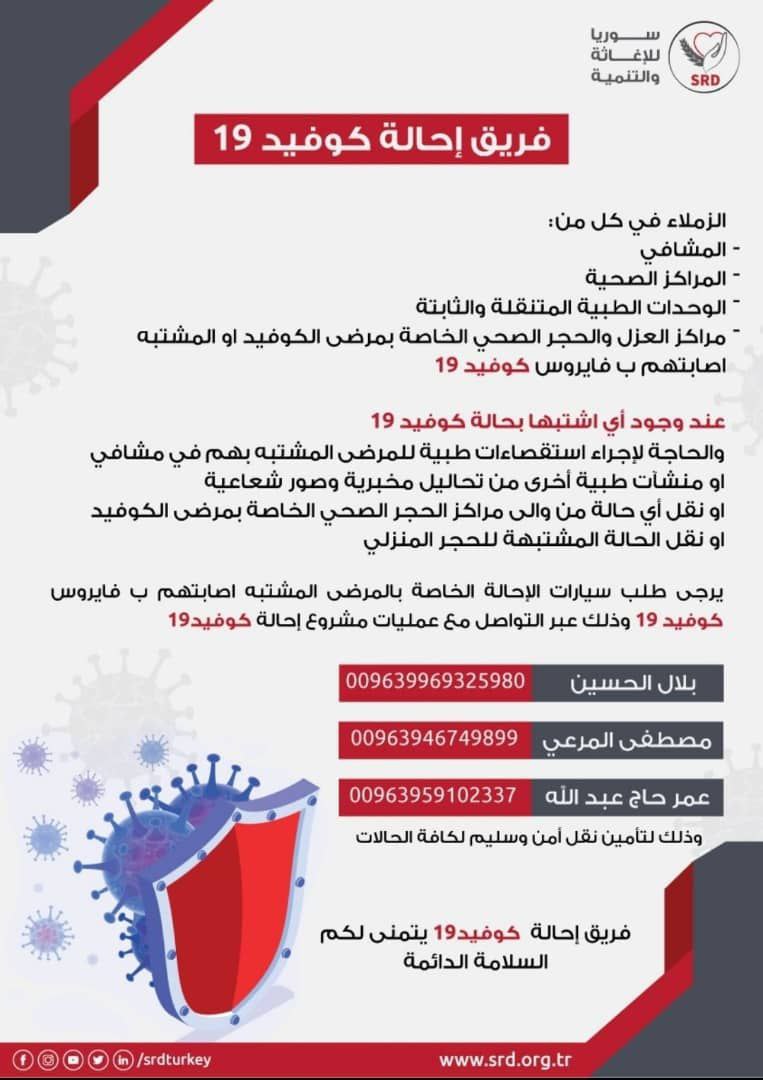
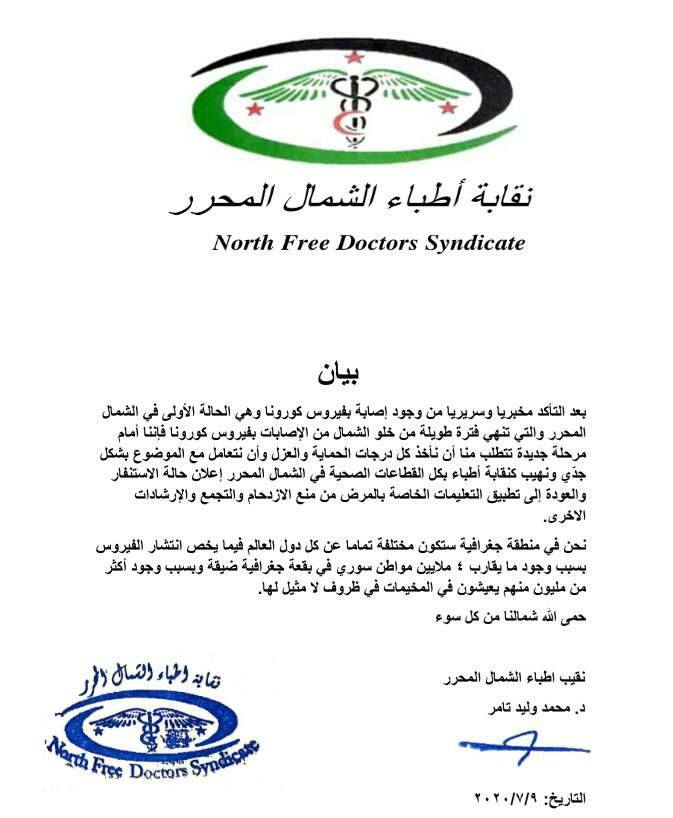
First coronavirus case reported
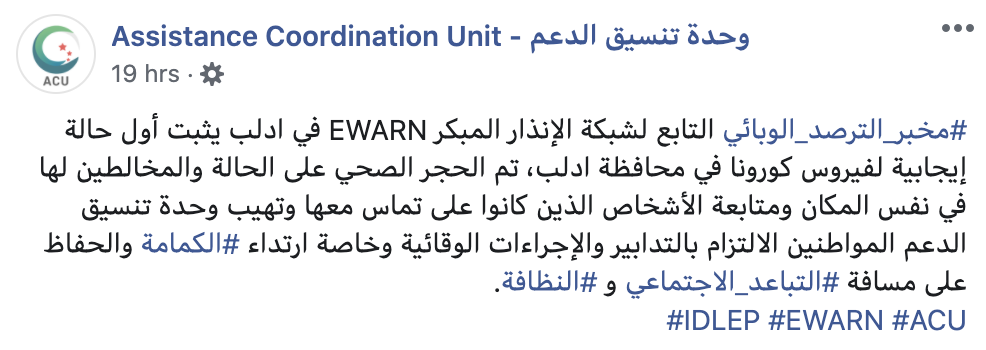
June 18:
Idlib opens first hospital to fight COVID-19
June 10:
In a Province No Stranger to War, Preparing to Battle a New Enemy
June 3:
Tips to reduce the spread of the COVID epidemic
May 30:
Initiatives launched in the towns of Zanu, Kafr Kharim, and Mara, in cooperation with the Directorate of Idlib Health, for four days, a campaign to raise awareness of the COVID pandemic
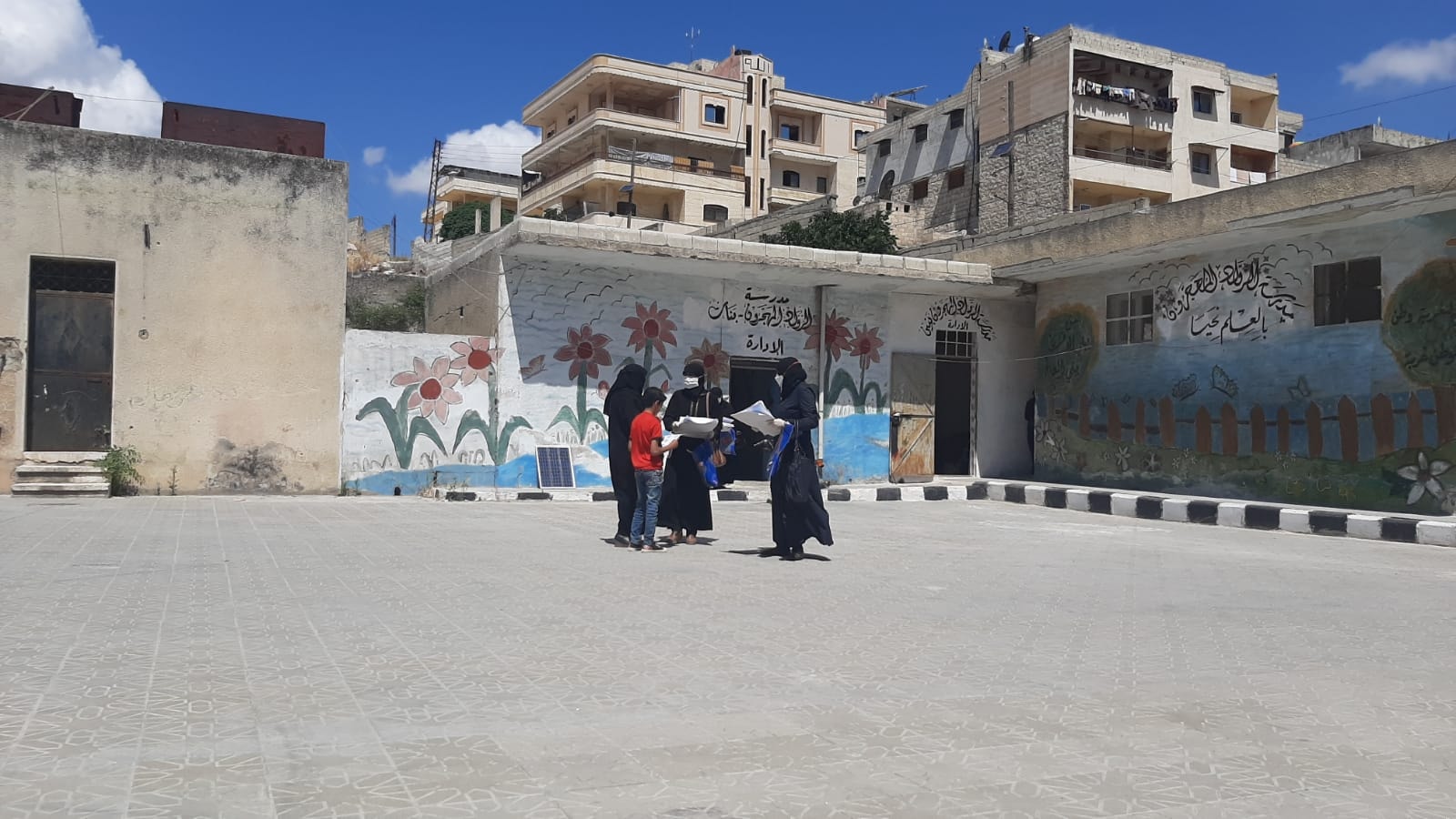
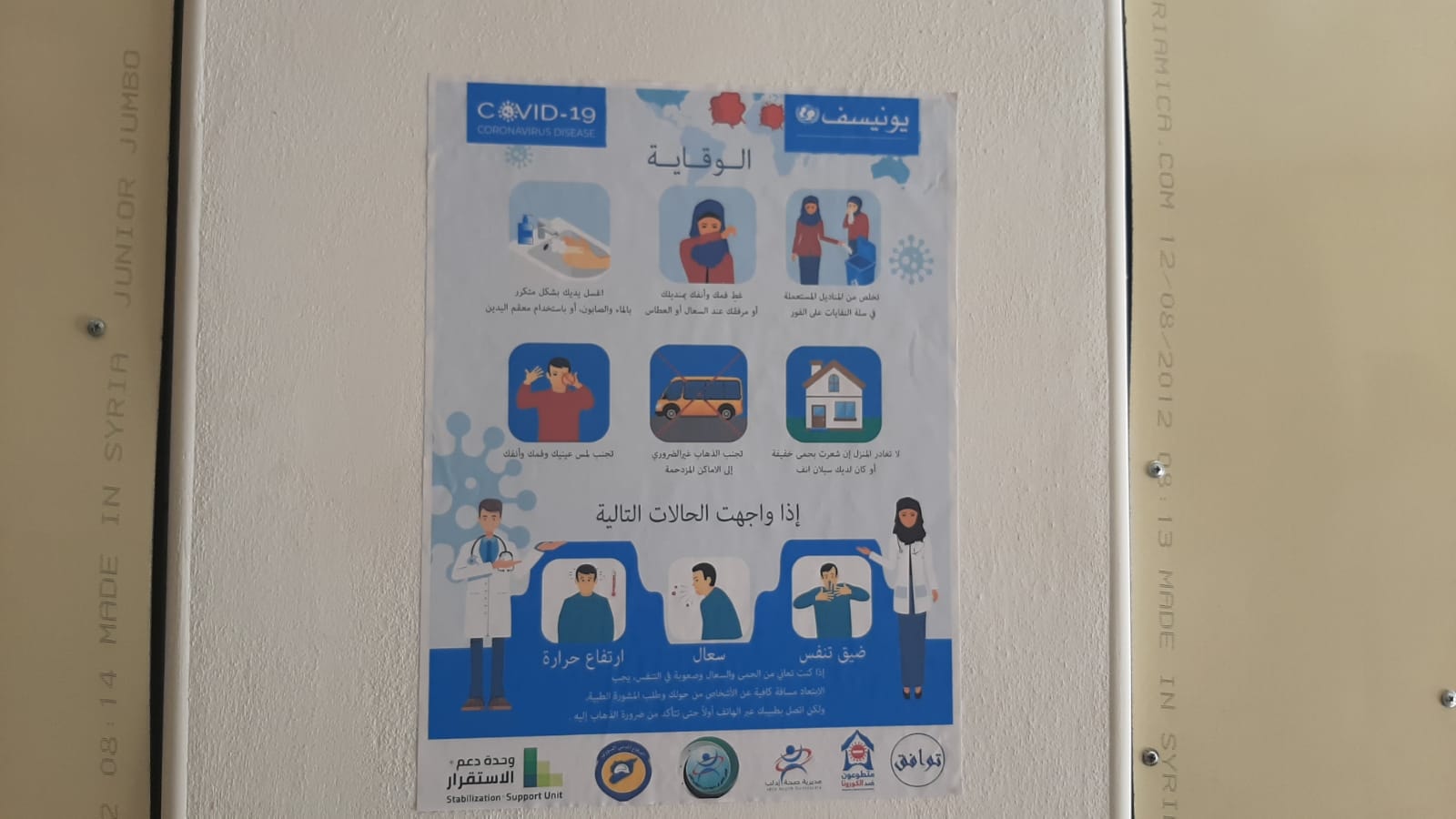
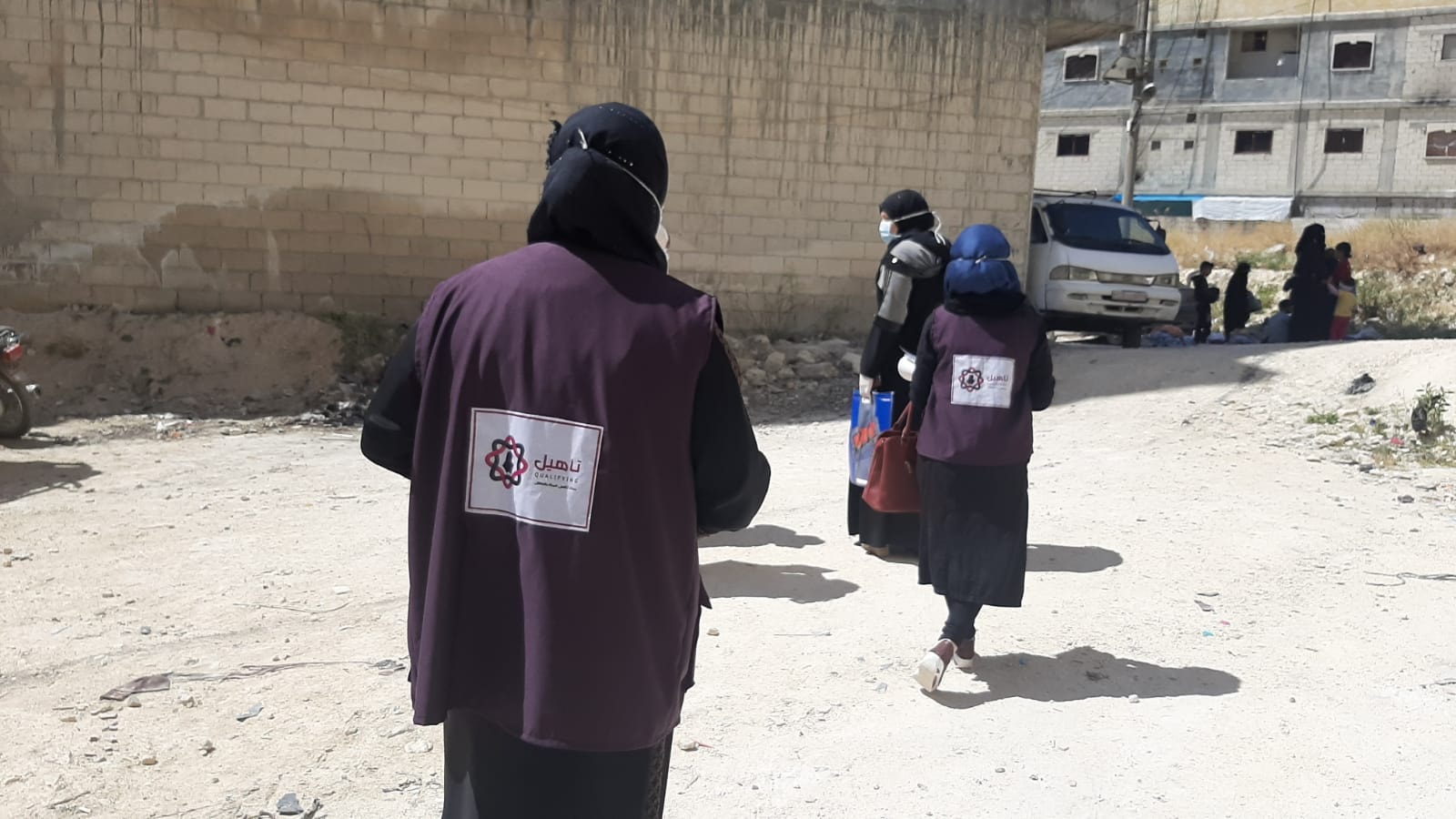
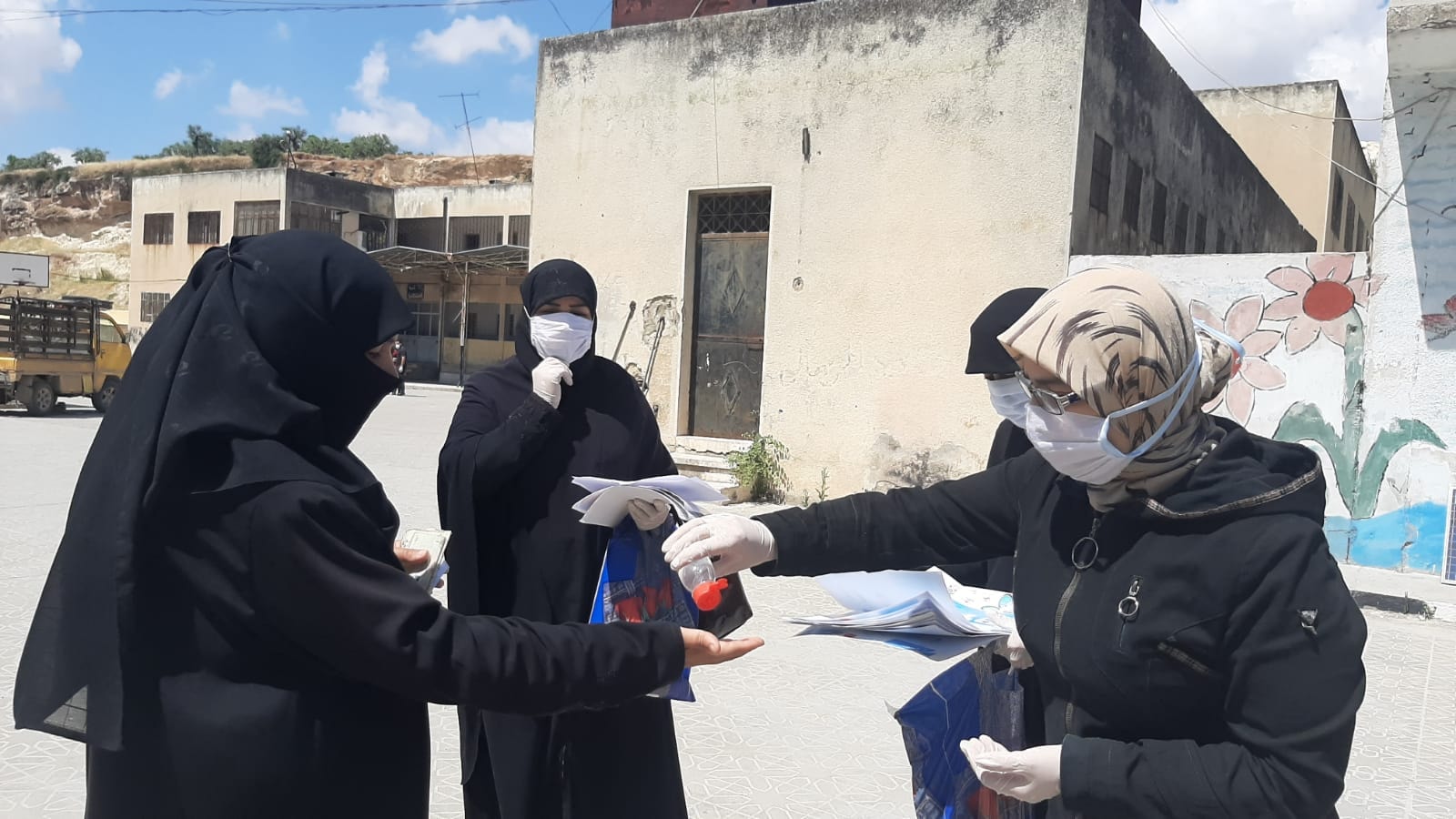
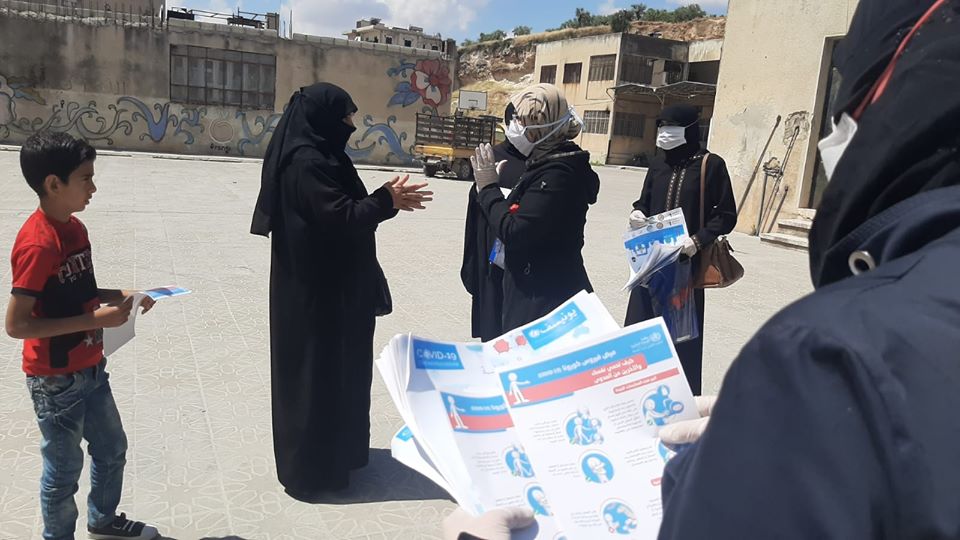
May 29:
May 21:
Awareness workshop on Coronavirus risks in northern Aleppo
May 20:
Part of the activity of the Syrian Intellectual Forum – Ma’rat Misrin team .. Visiting the service facilities in the village of Kafr Hamoul and painting awareness campaigns on the walls regarding the coronavirus
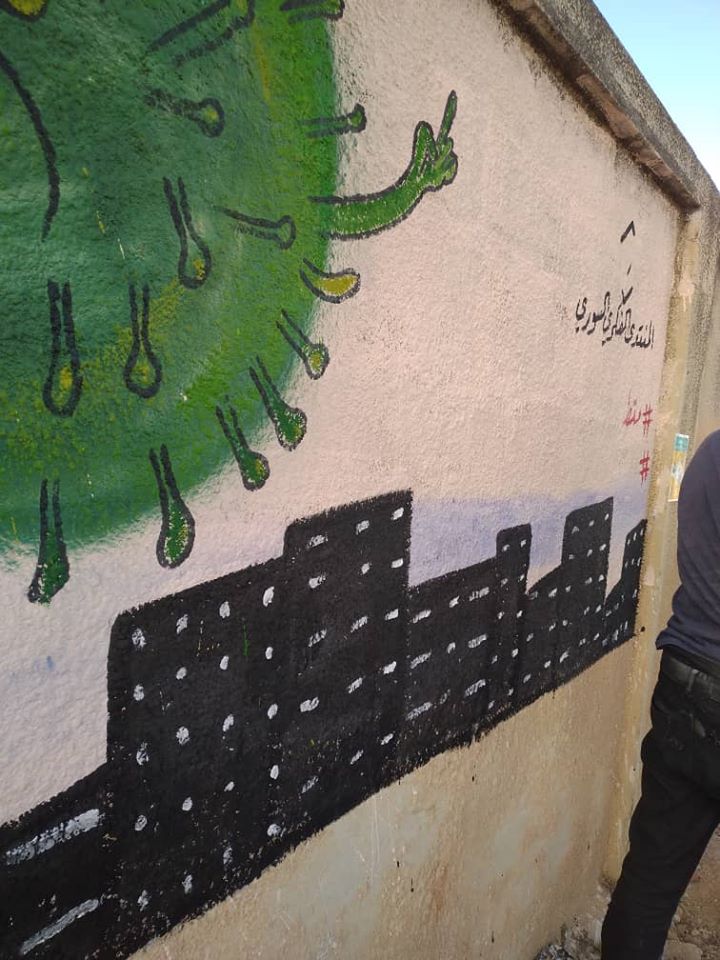
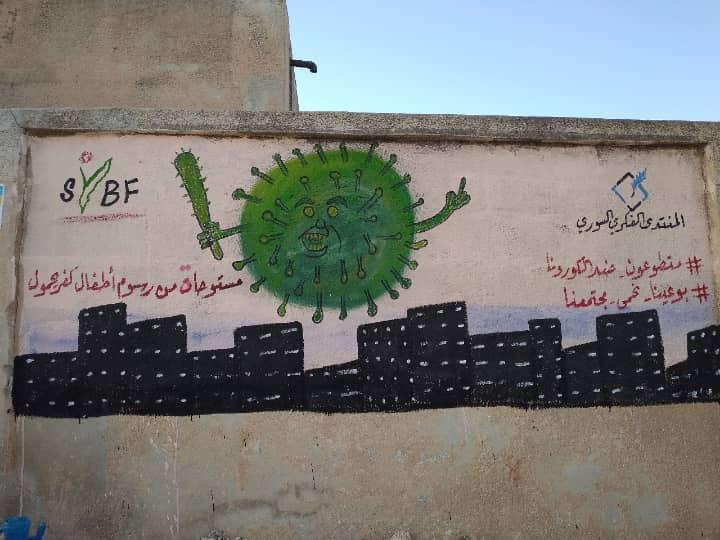
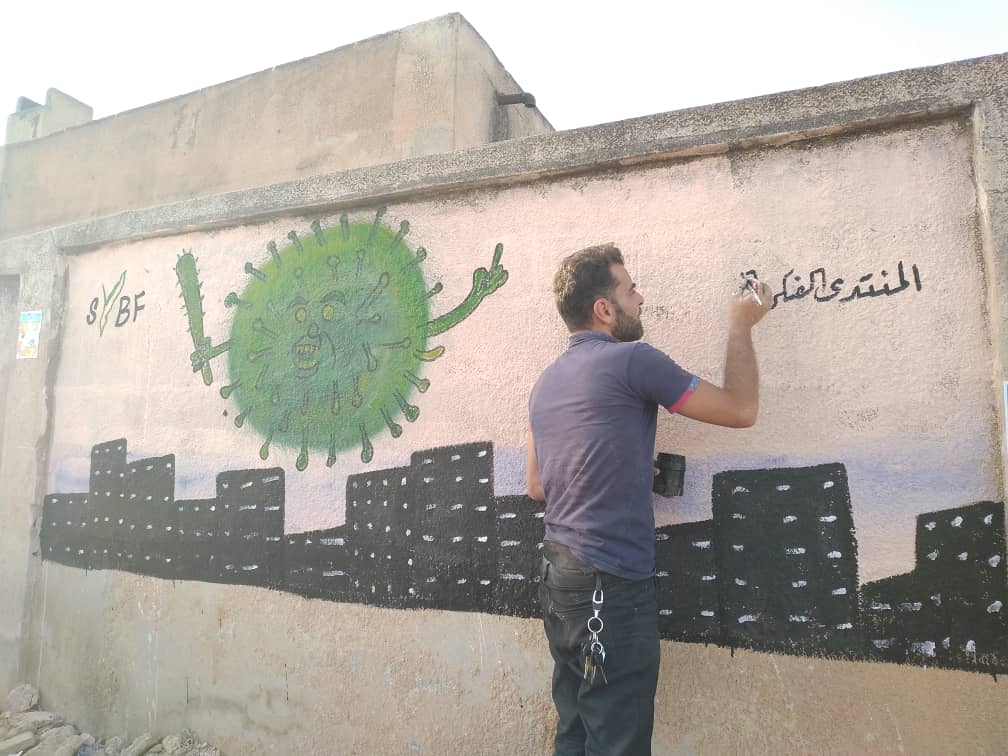
May 15:
Among the activities of volunteer teams to raise awareness of the dangers of the virus
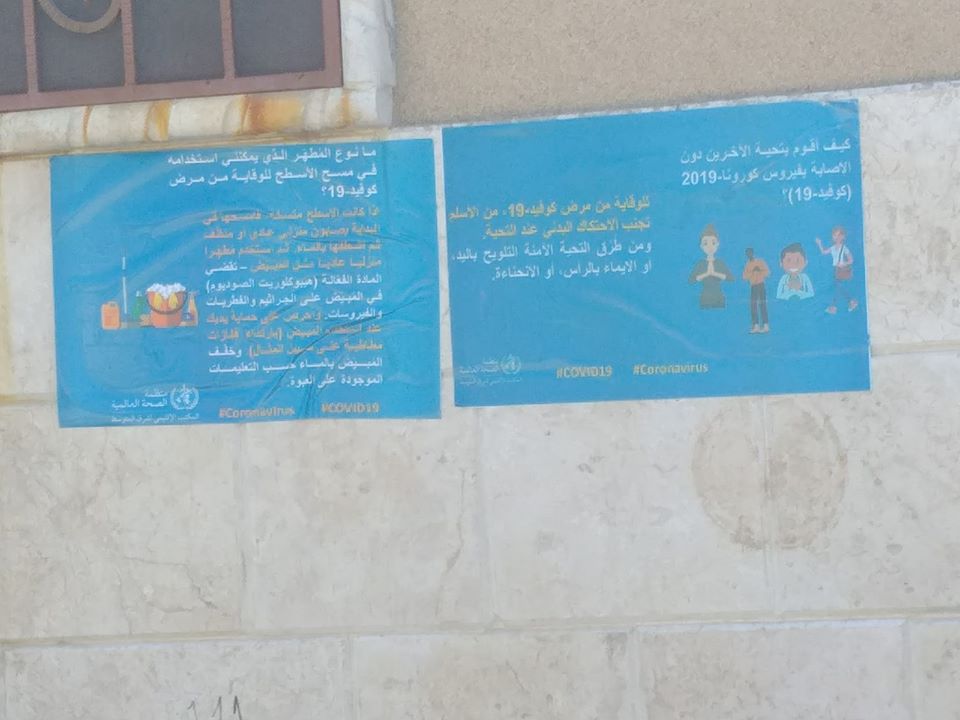
May 12:
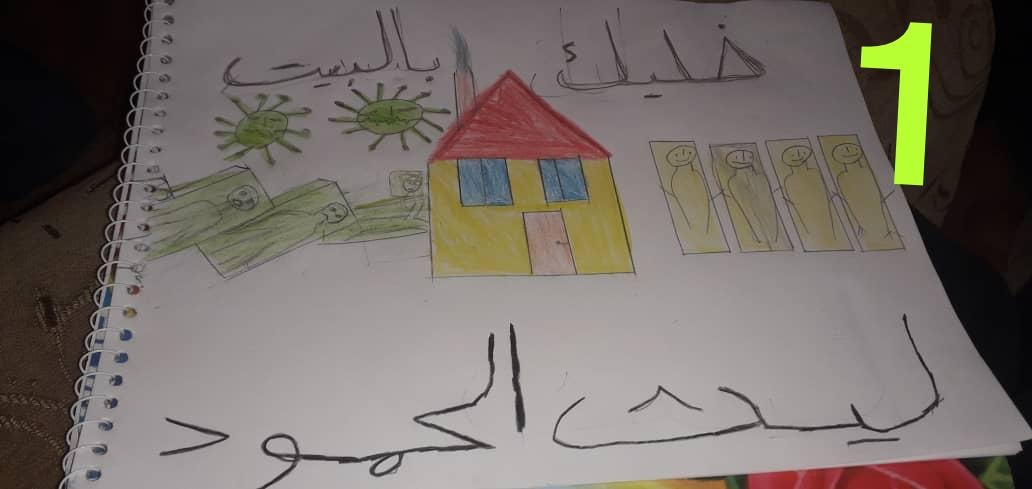
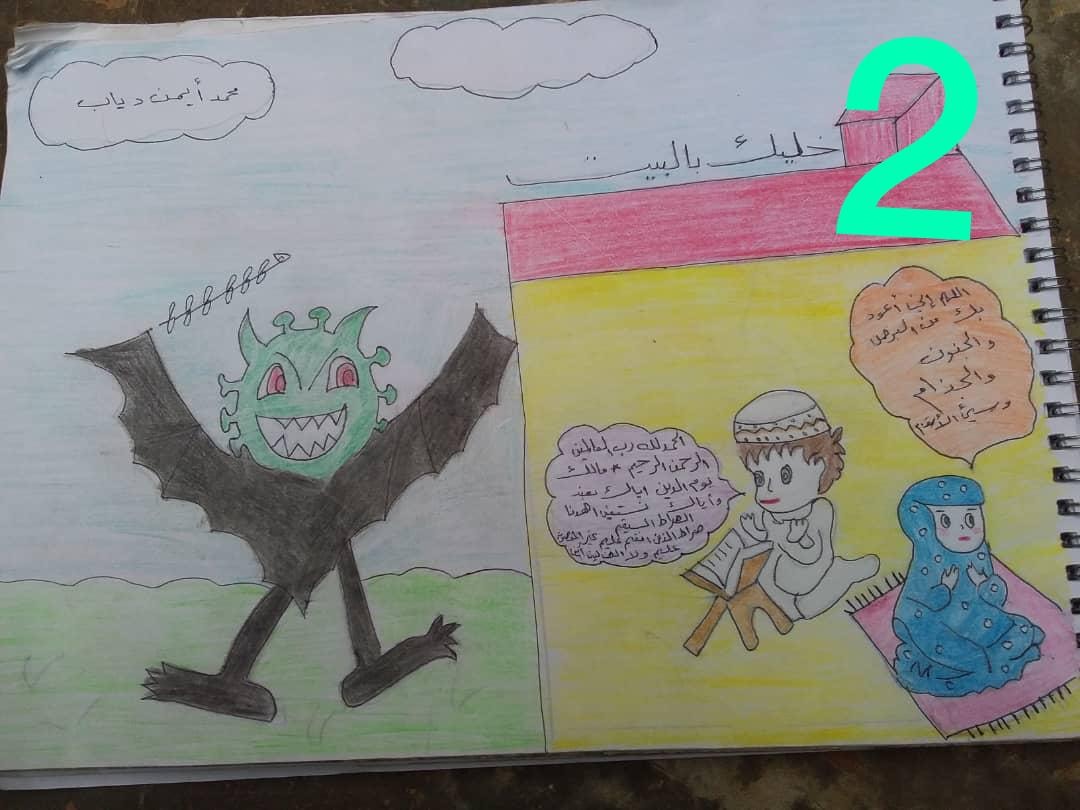
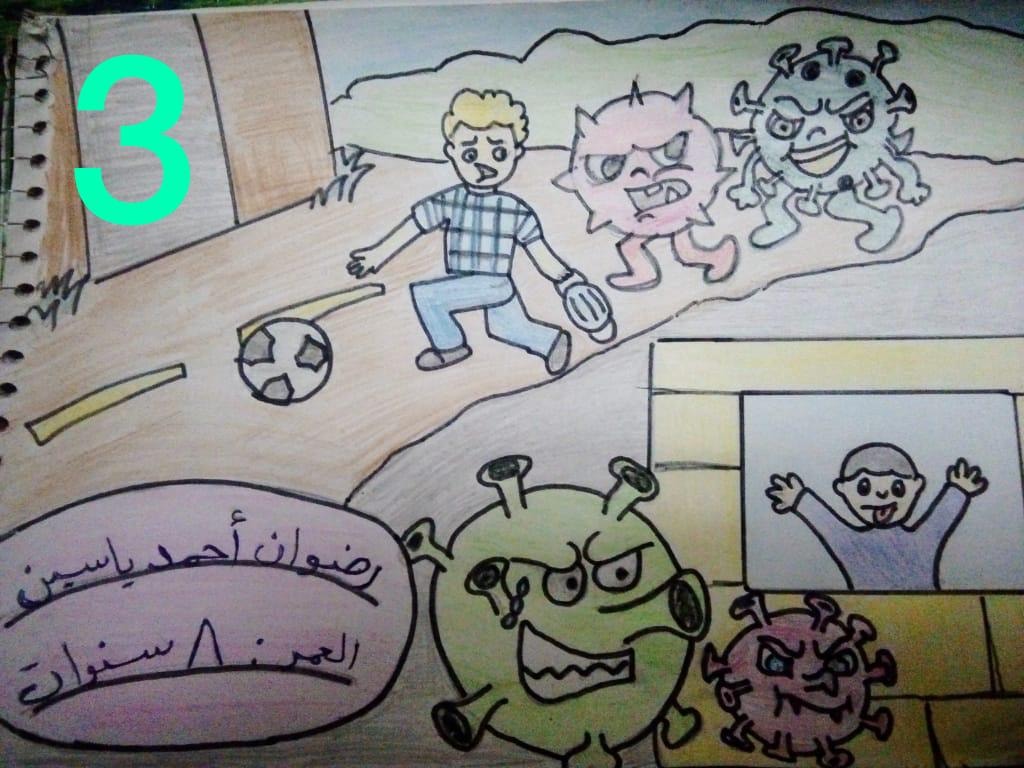
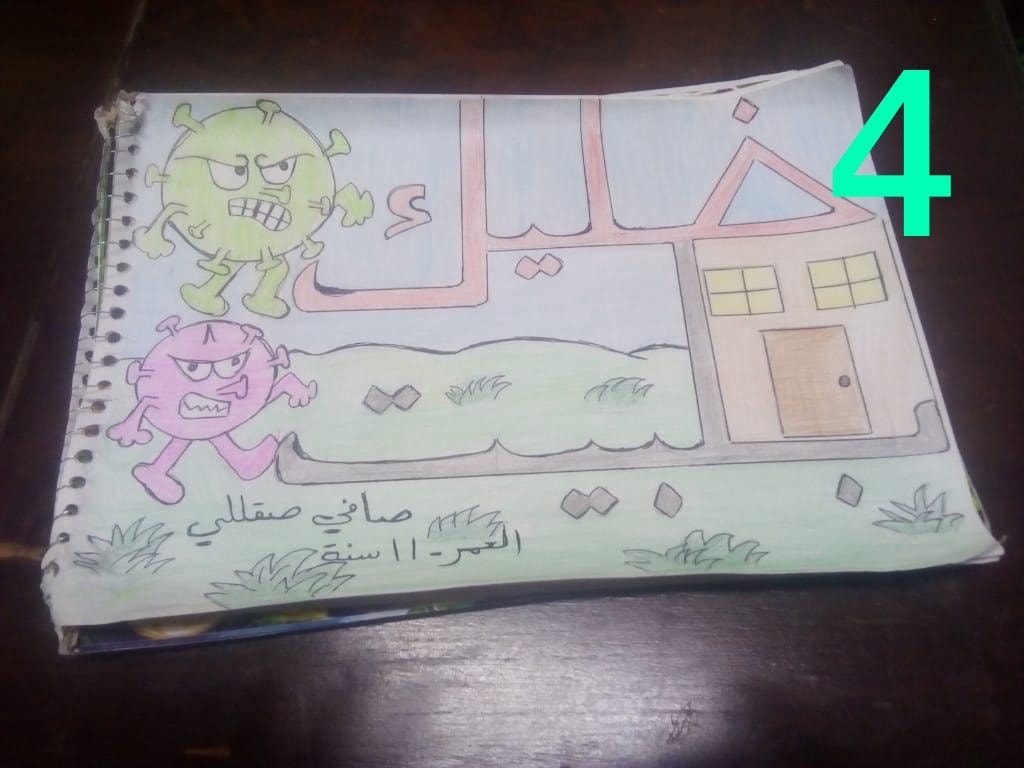

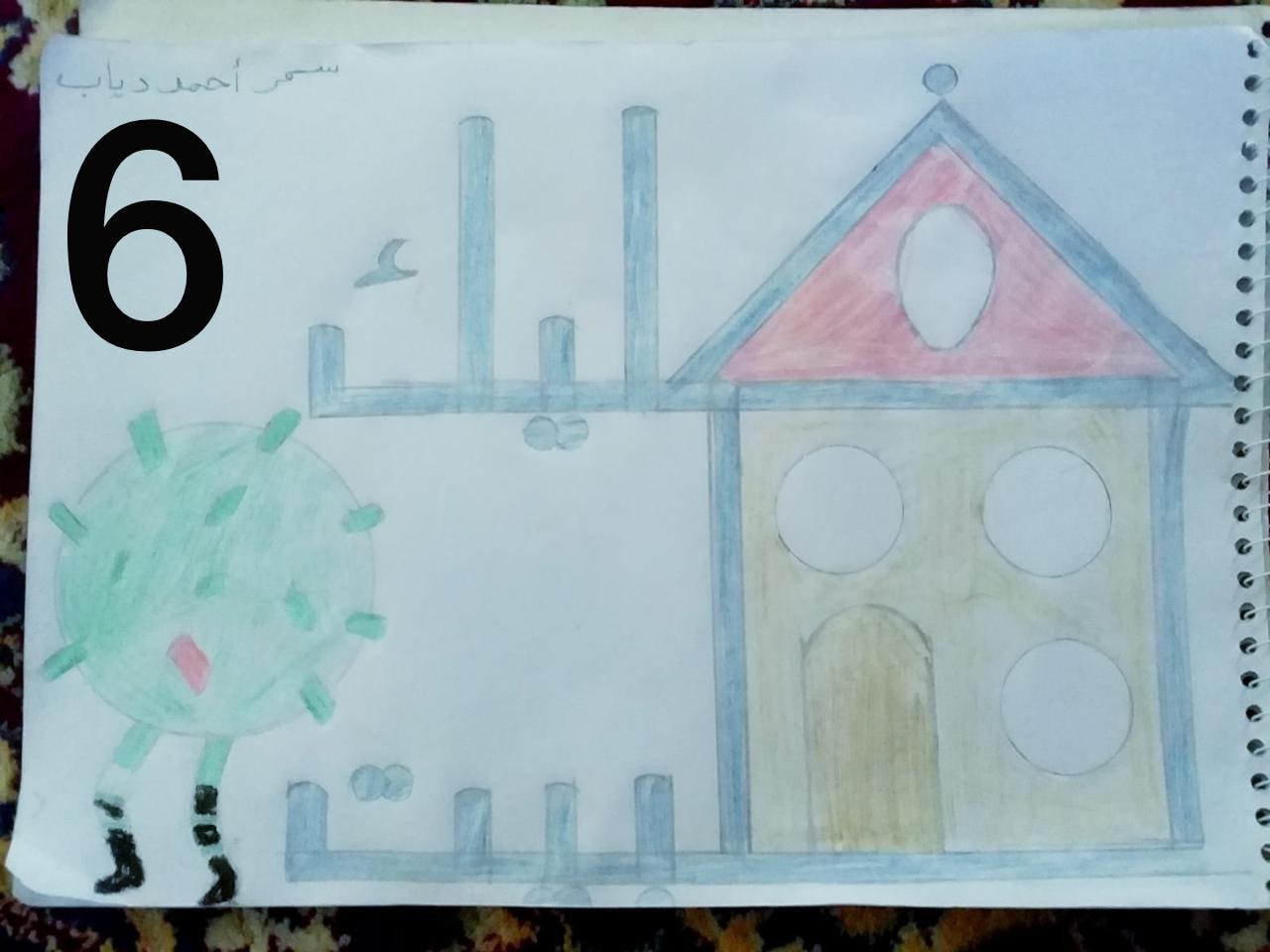
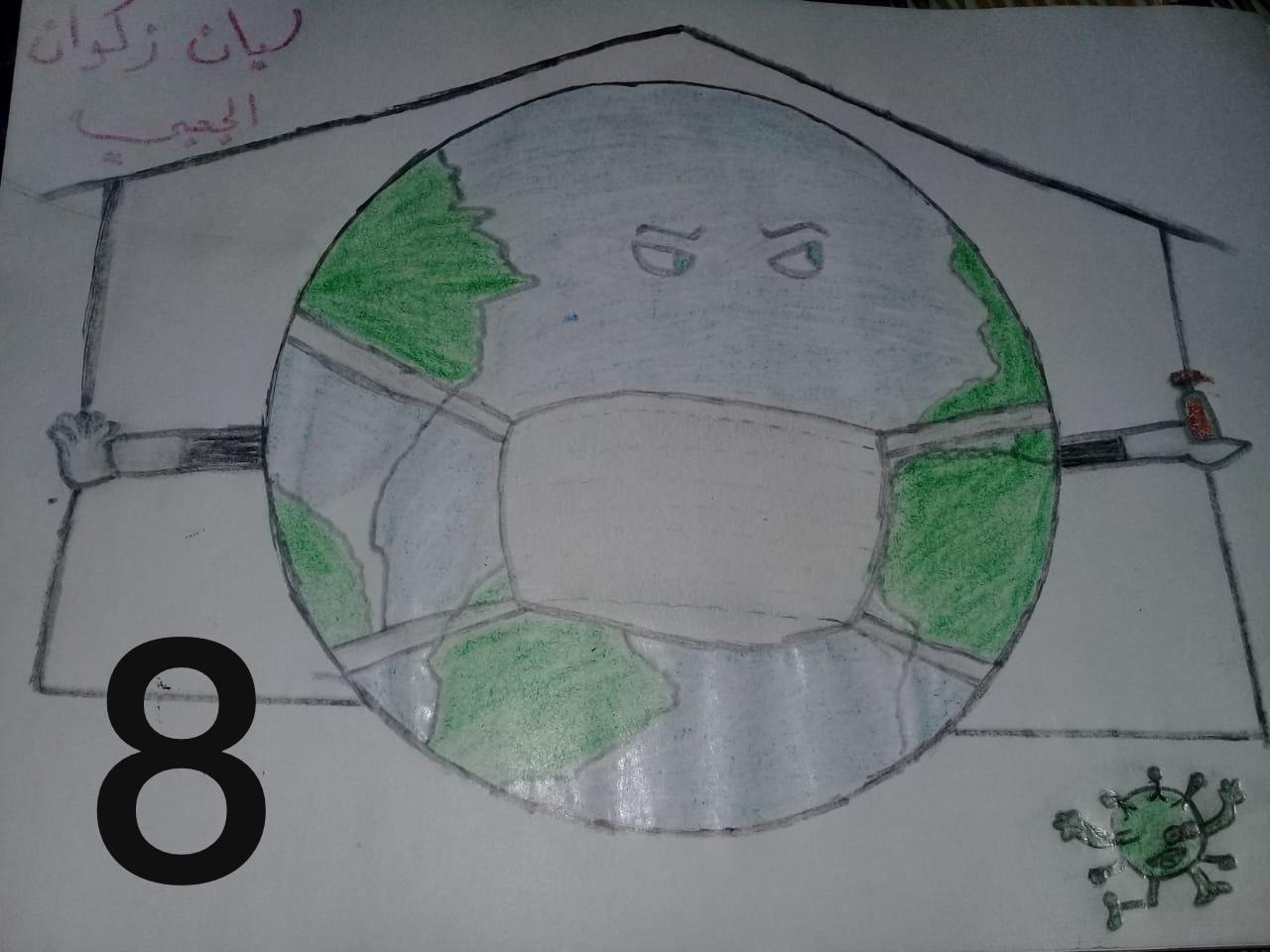
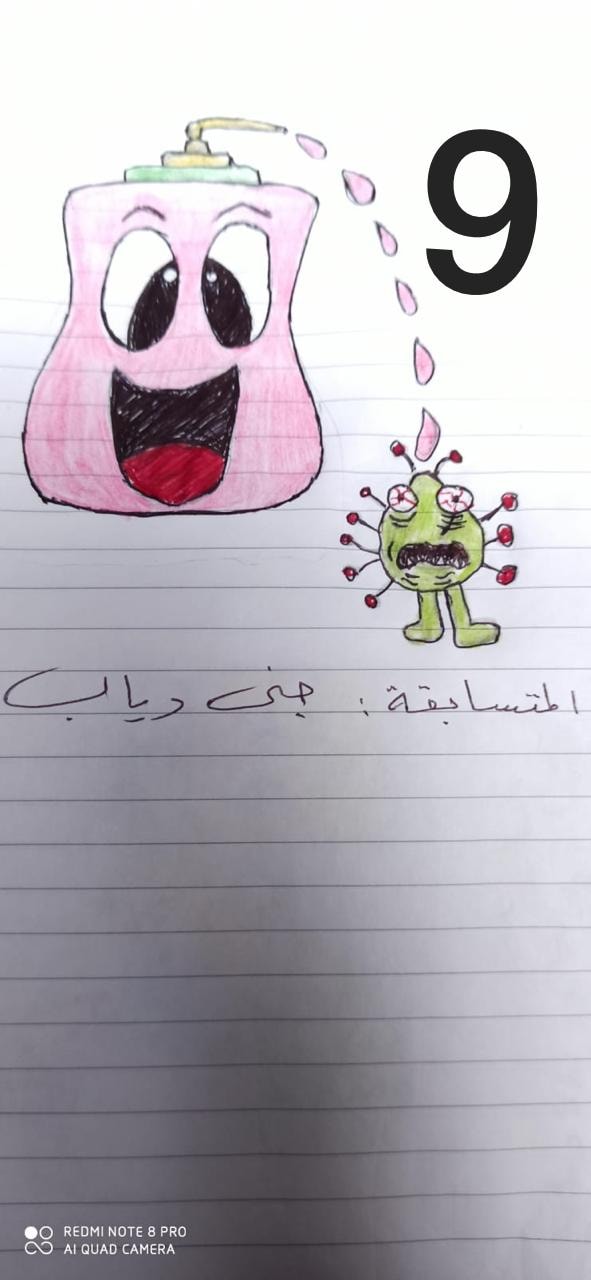
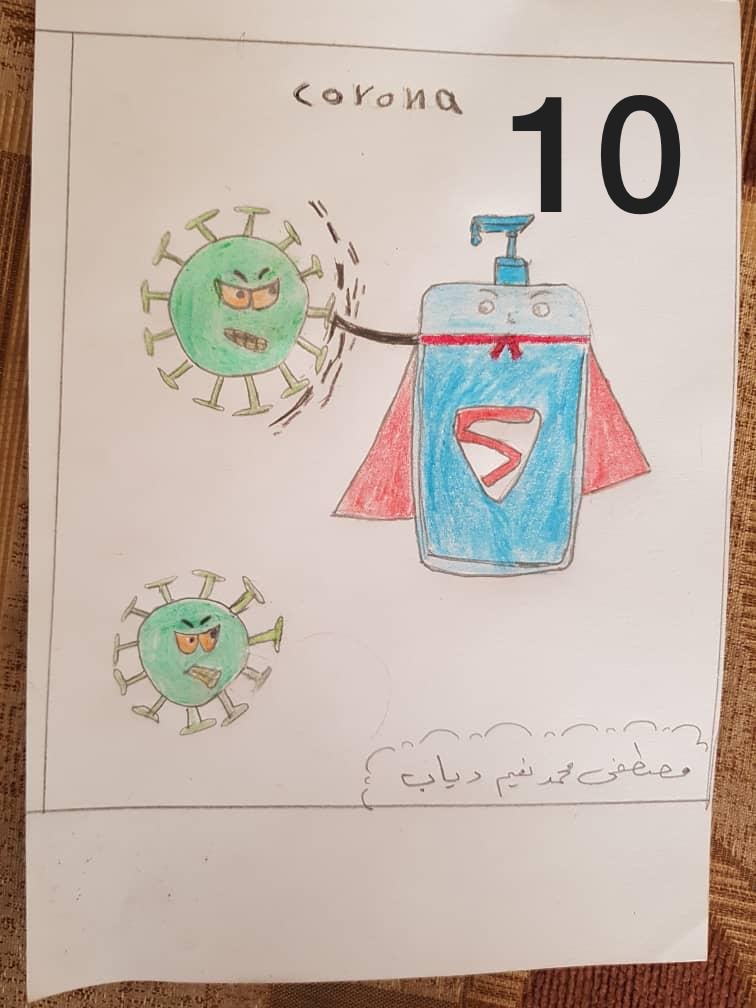
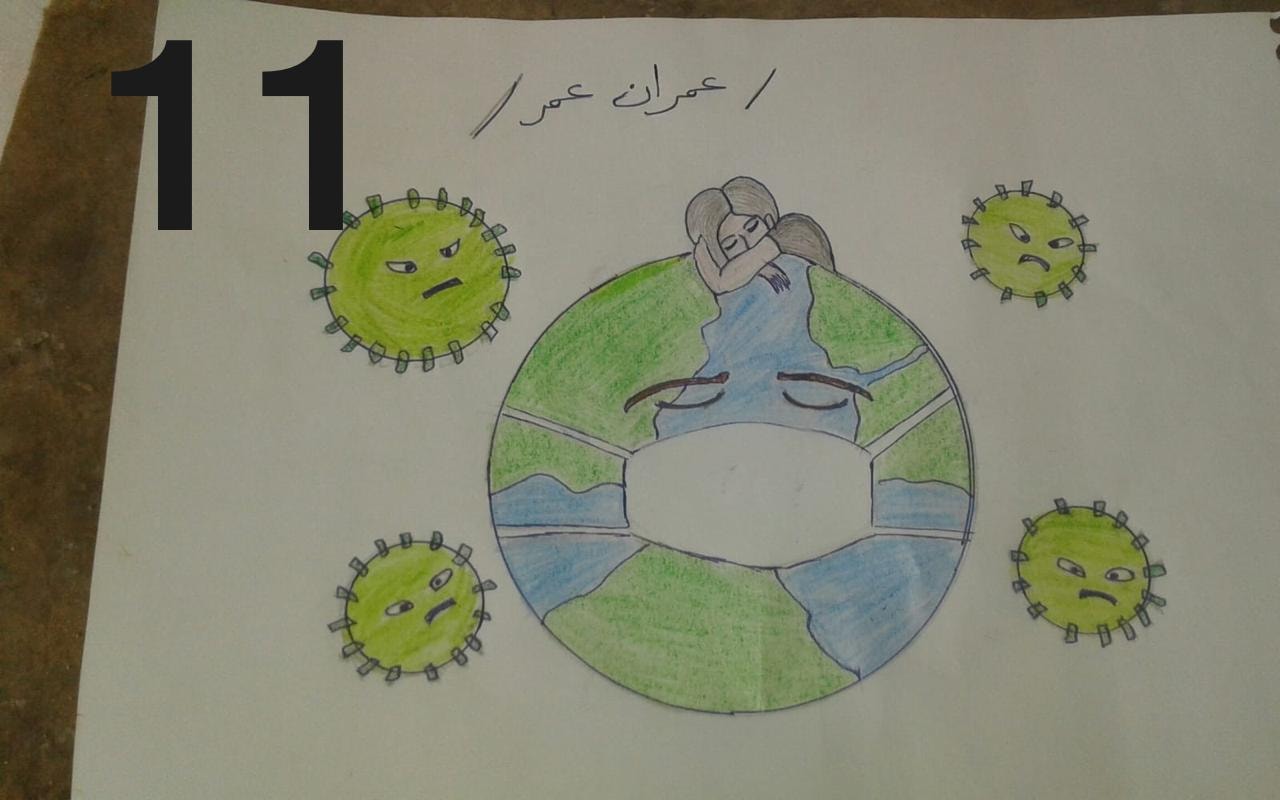
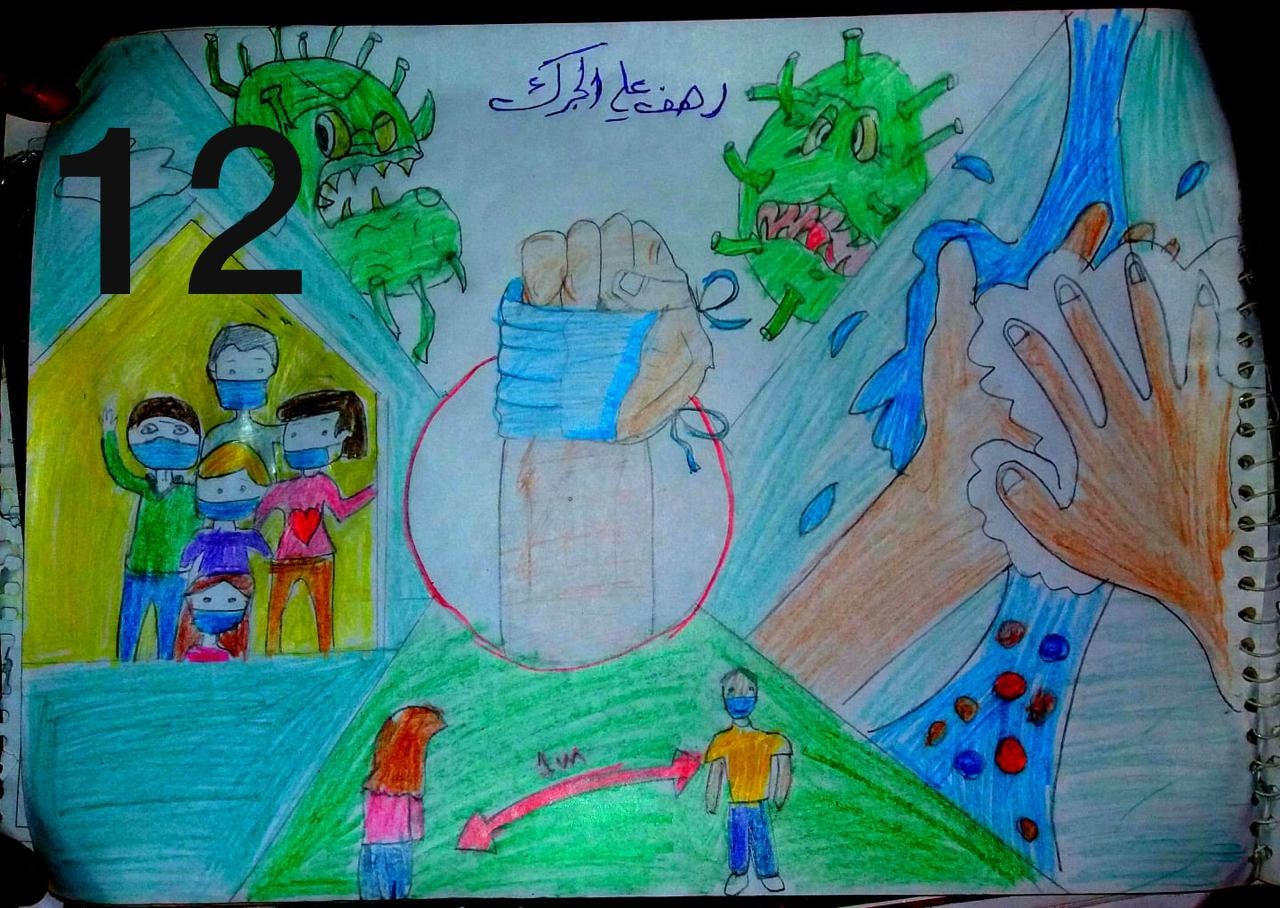
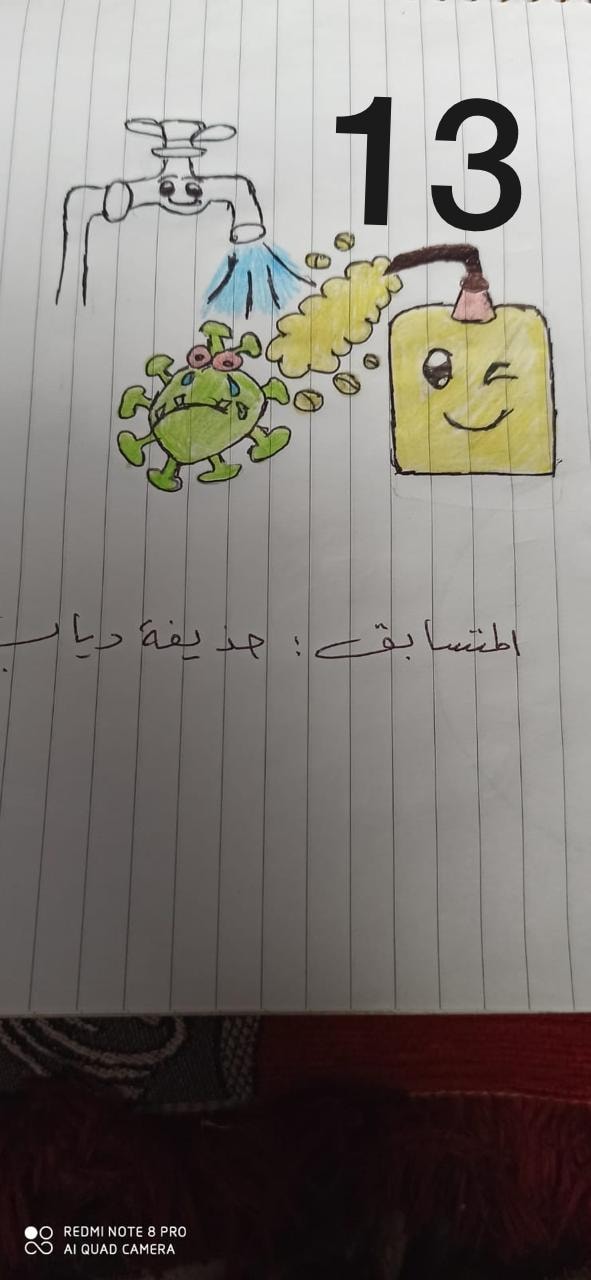
May 10:
Guidelines for the protection of media workers when they cover the coronavirus
May 8:
Dr. Mundhir Khalil, director of Idlib Health Directorate, reviews the latest updates regarding a volunteer campaign against coronavirus, the field reality, and what has been achieved so far
May 7:
Prevention of the coronavirus in the workplace
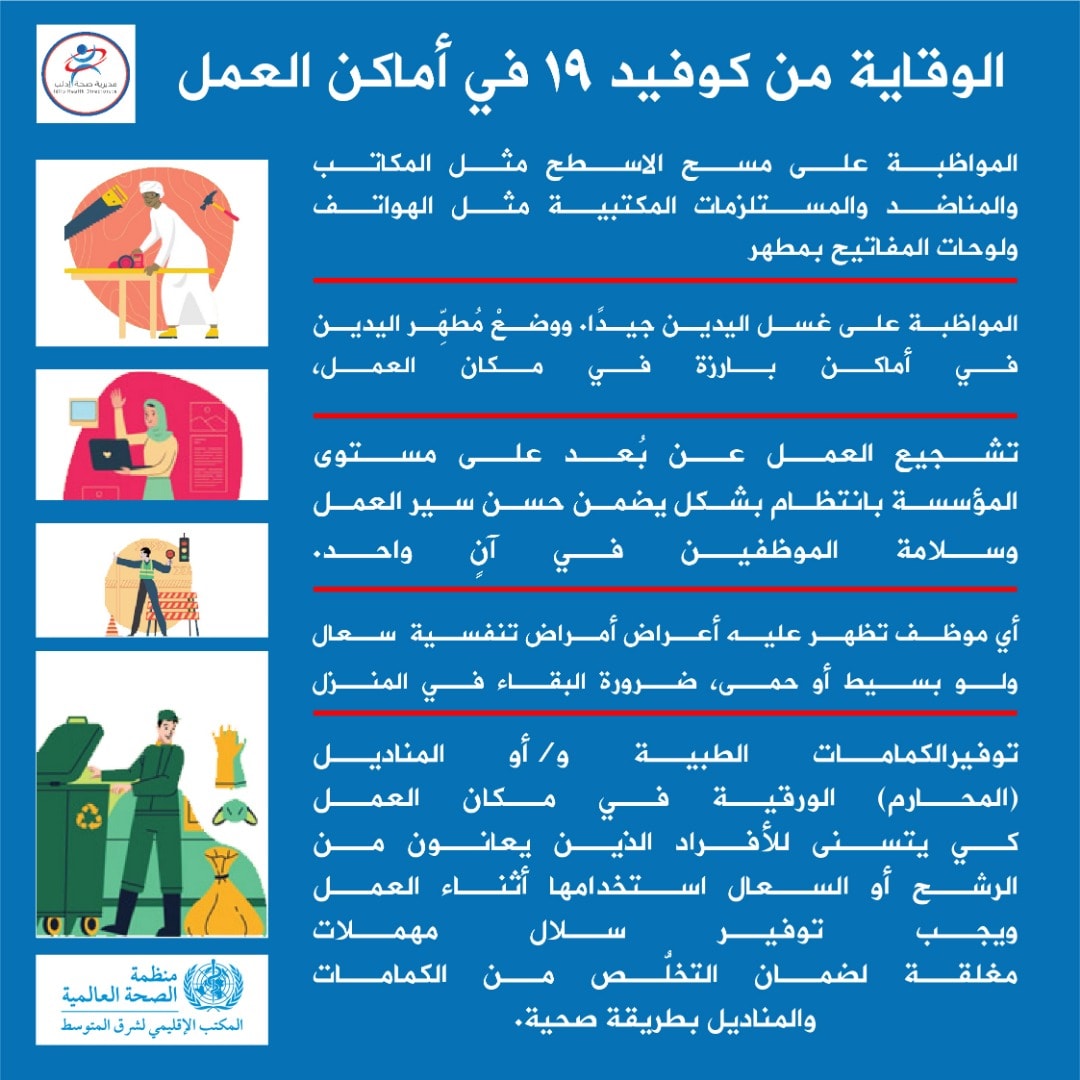
May 6:
The volunteer team for the protection of children in the border camps in the area of khirbet al-Nut is participating in awareness-raising activities in the community and warning about the dangers of the coronavirus and prevention methods
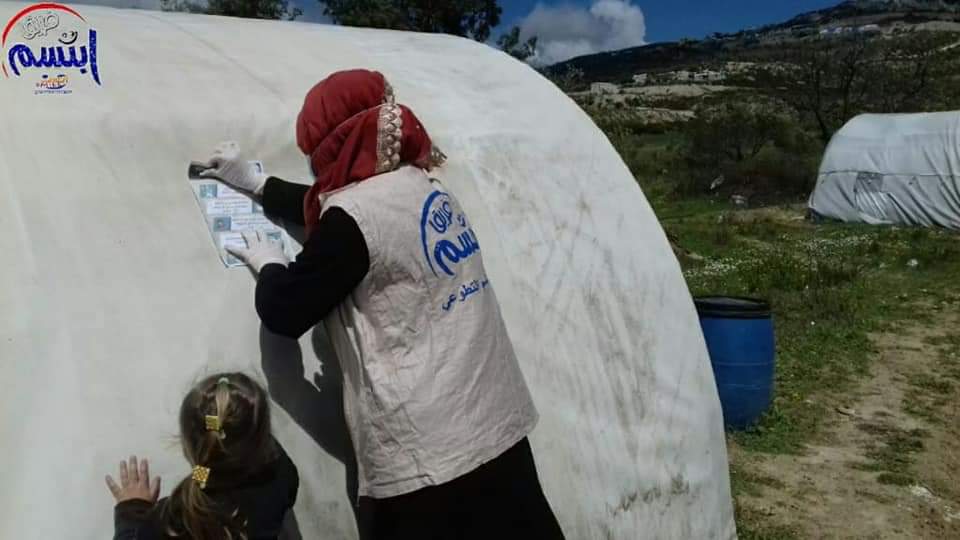
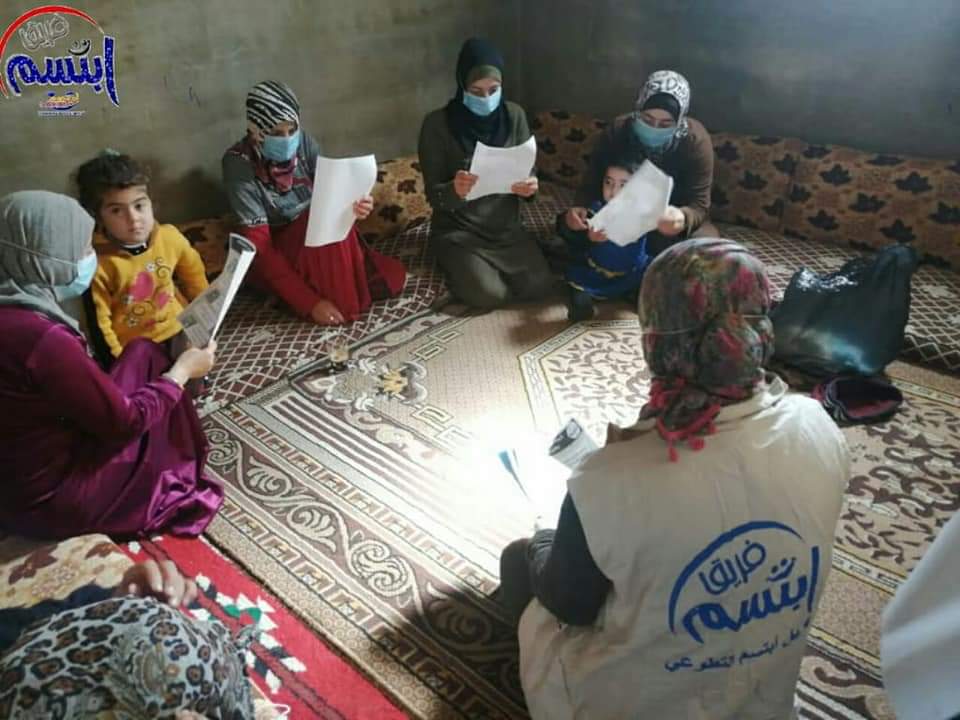
May 5:
Awareness activities of volunteer groups and teams within a volunteer campaign against corona
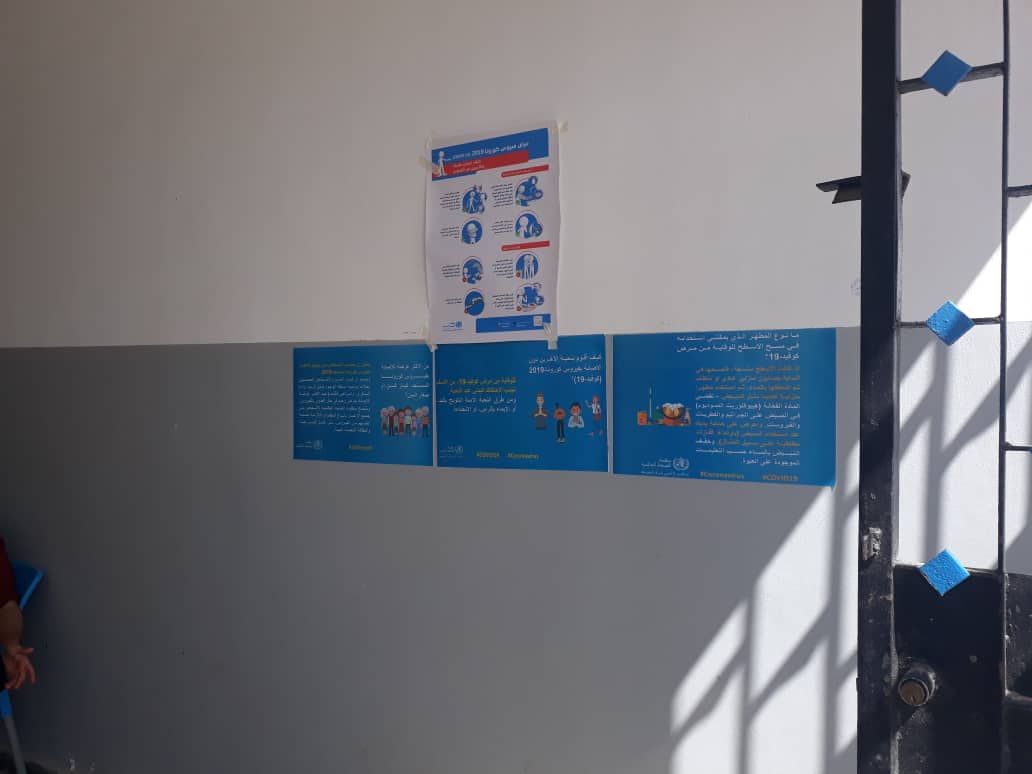
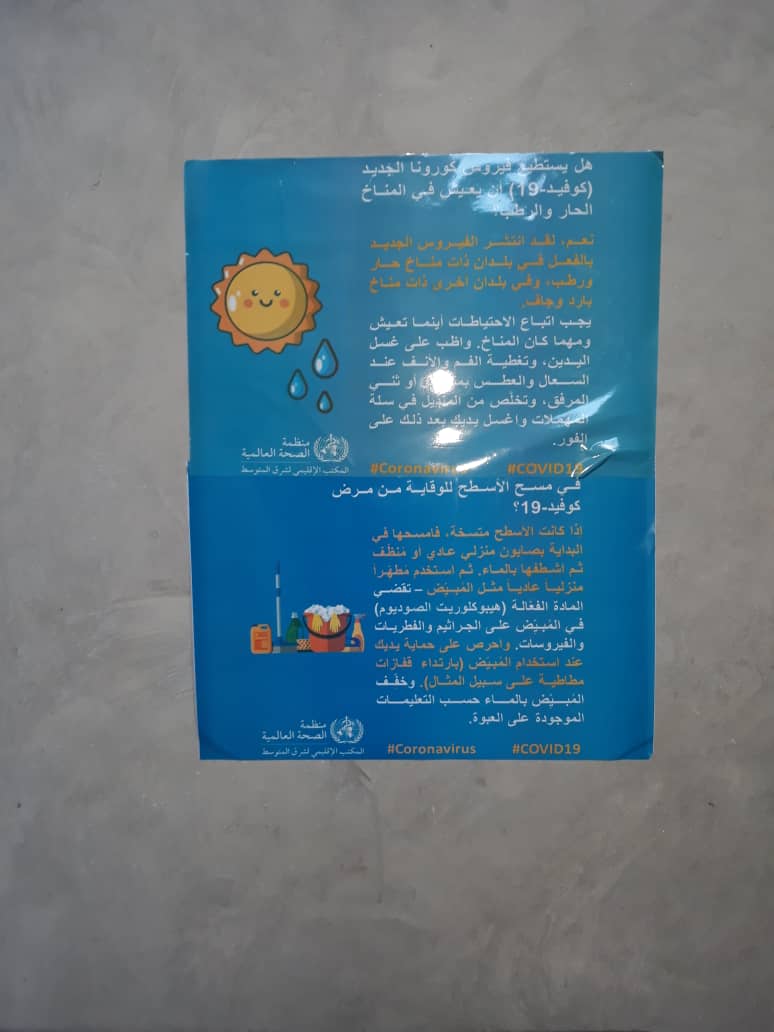
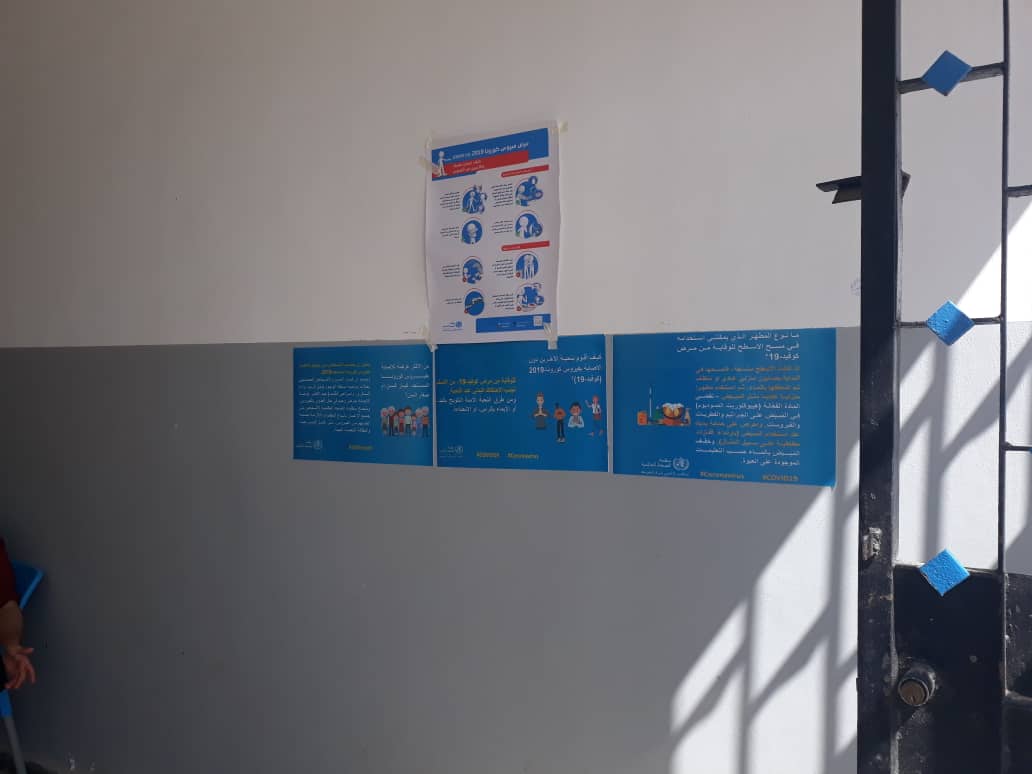
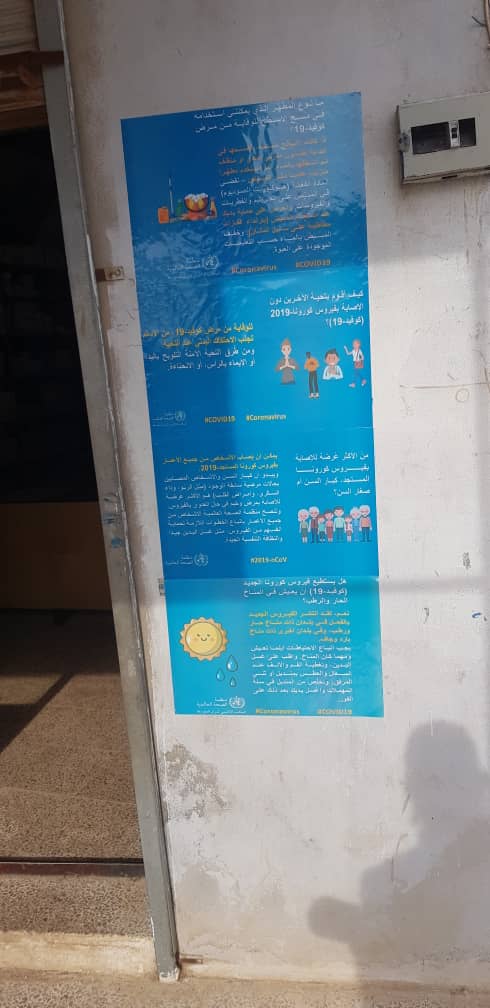
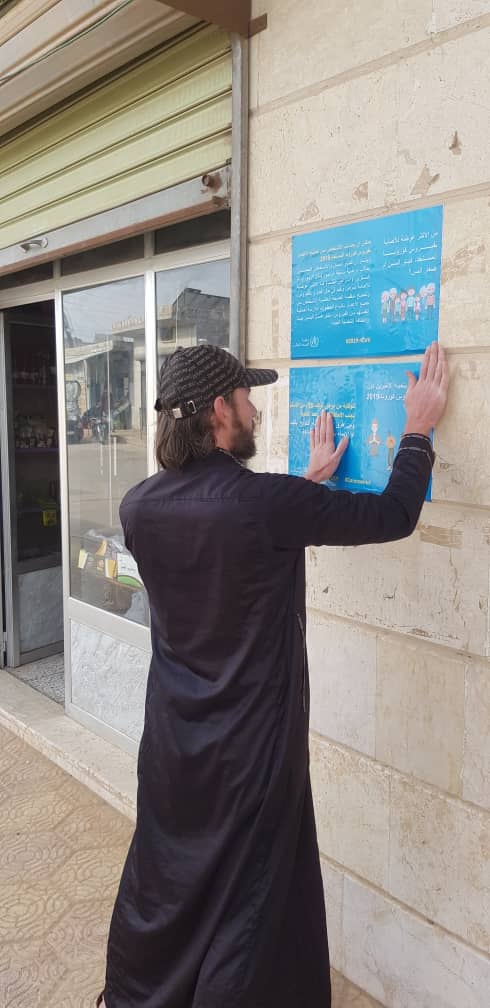
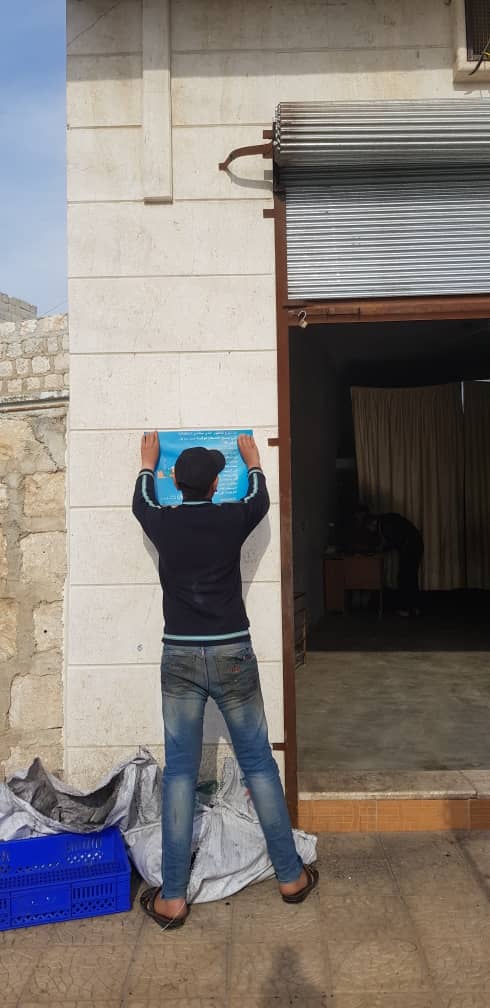
May 3:
Awareness activities of volunteer groups and teams within a volunteer campaign against corona
April 30:
‘Abd al-Rahman Mustafa, President of the Syrian interim government has said that the government is continuing with the actions it has taken regarding the closure of the crossings and they will remain closed until the coronavirus is eliminated and the closure process is temporary until the completion of this epidemic

In order to clarify and explain the goals and stages of the volunteer initiative against corona, a second meeting was held between Dr. Mundir Khalil and Mr. Raed al-Saleh
April 25:
Ramadan tips during times of coronavirus
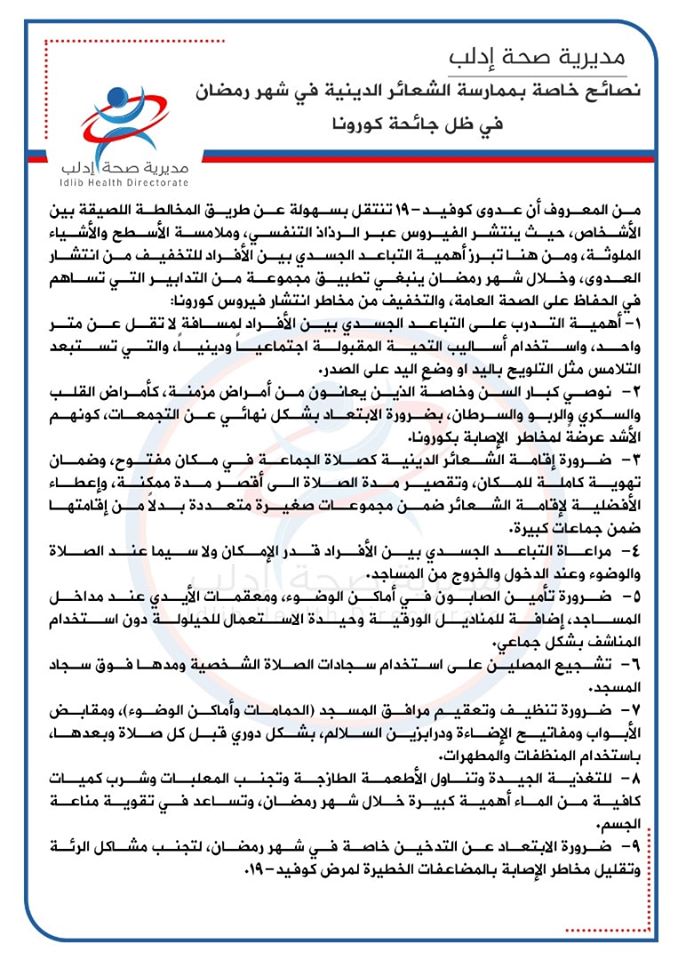
April 24:
In order to clarify and explain the goals and stages of the volunteer initiative against coronavirus, a meeting was held between Dr. Mundhir Khalil and Mr. Ra’id al-Salih, director of civil defense and volunteer organizations and teams joining the volunteer initiative against the coronavirus
Local engineers and doctors build ventilator machine in Syria’s al-Bab
April 22:
What is the Purchasing Committee?
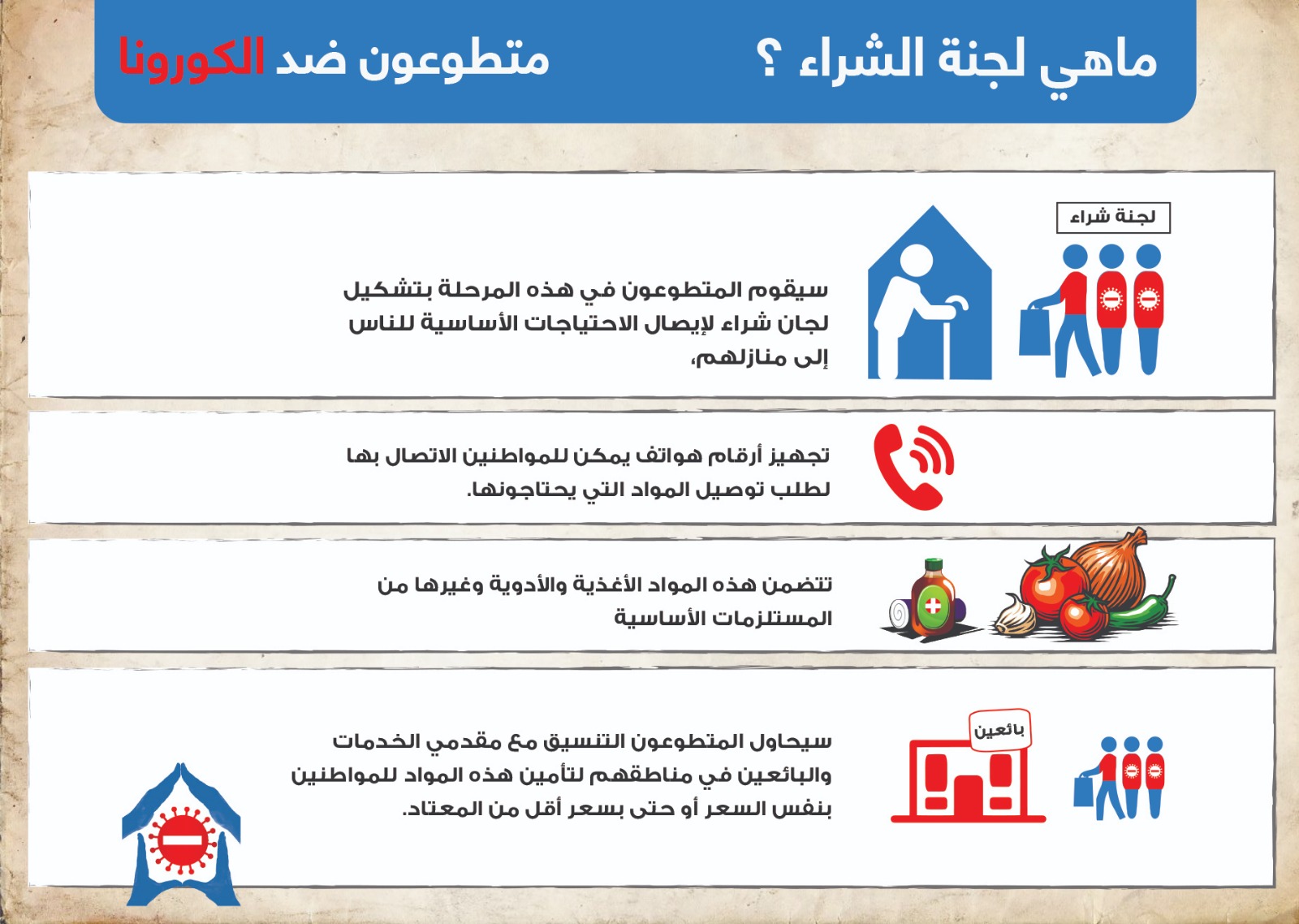
To see the progress of the distance education process, the Minister of Education undertook an inspection visit to Aleppo University, which is affiliated with the Syrian interim government in the liberated areas
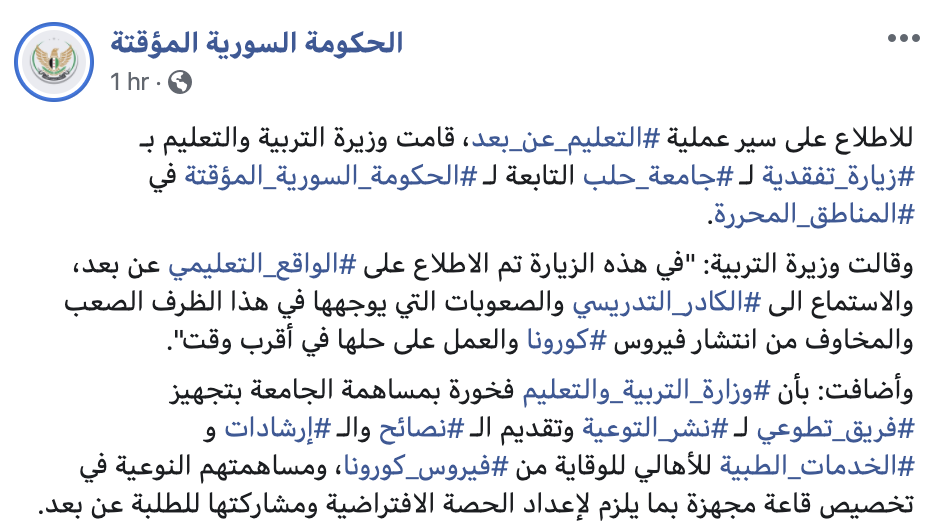
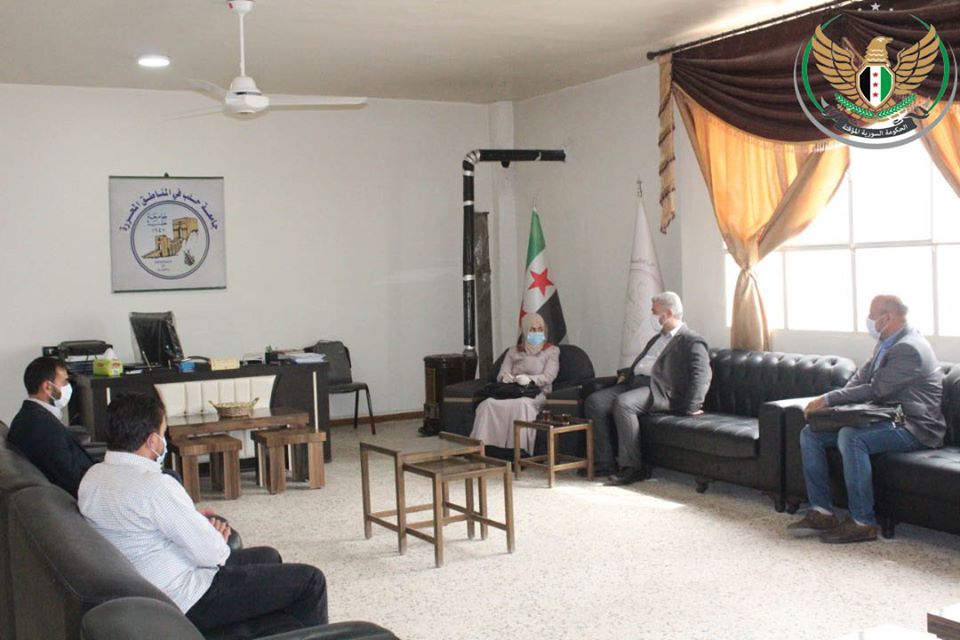
April 19:
“Volunteered against Coronavirus”… Solidarity in northern Syria to fight Coronavirus crisis
The Directorate of IDPs of the ministry of local administration and services in the Syrian interim government passed out guidance and advice related to the coronavirus for our families who are forcibly displaced to the areas of Afrin and Sharran
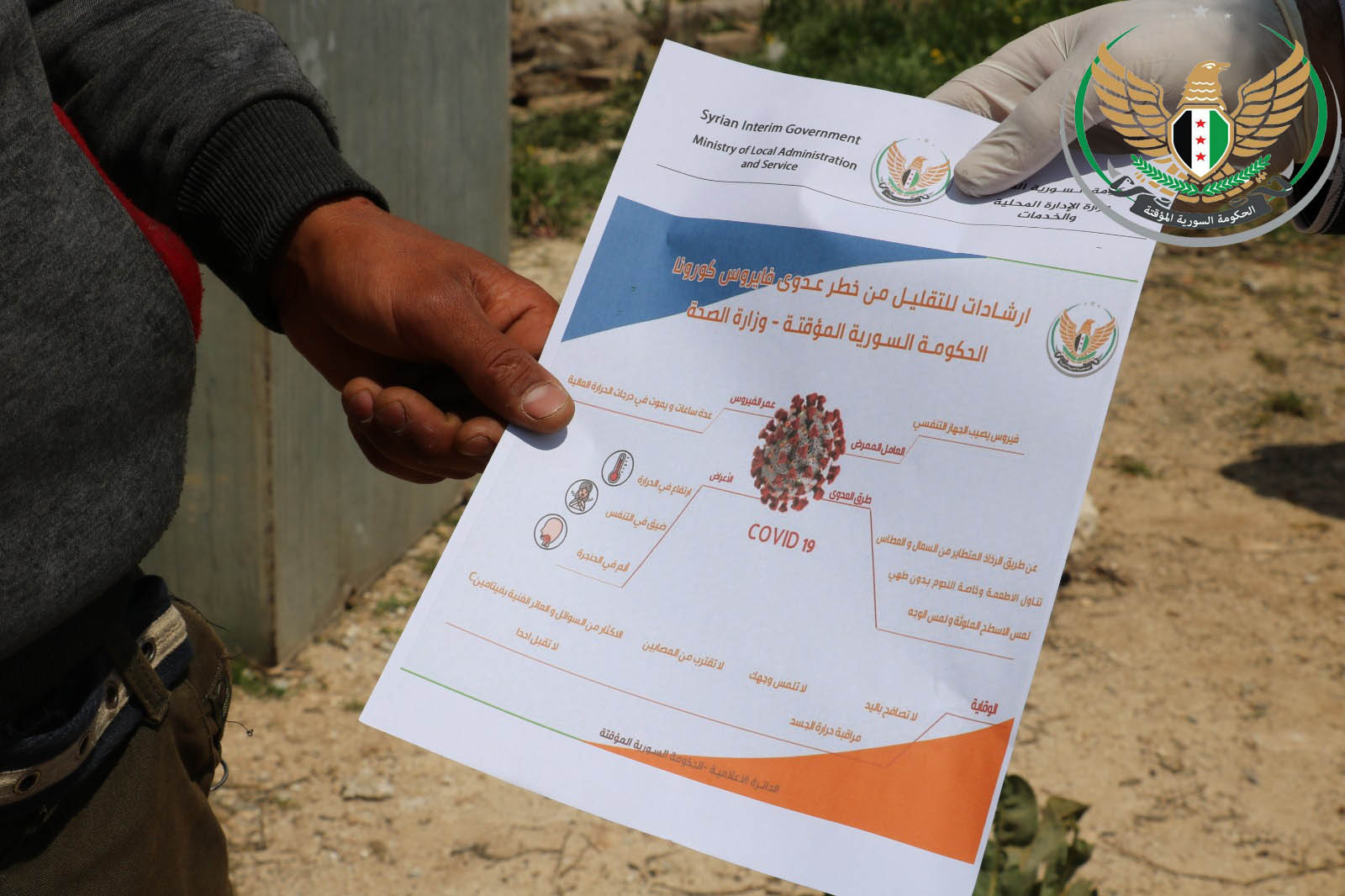
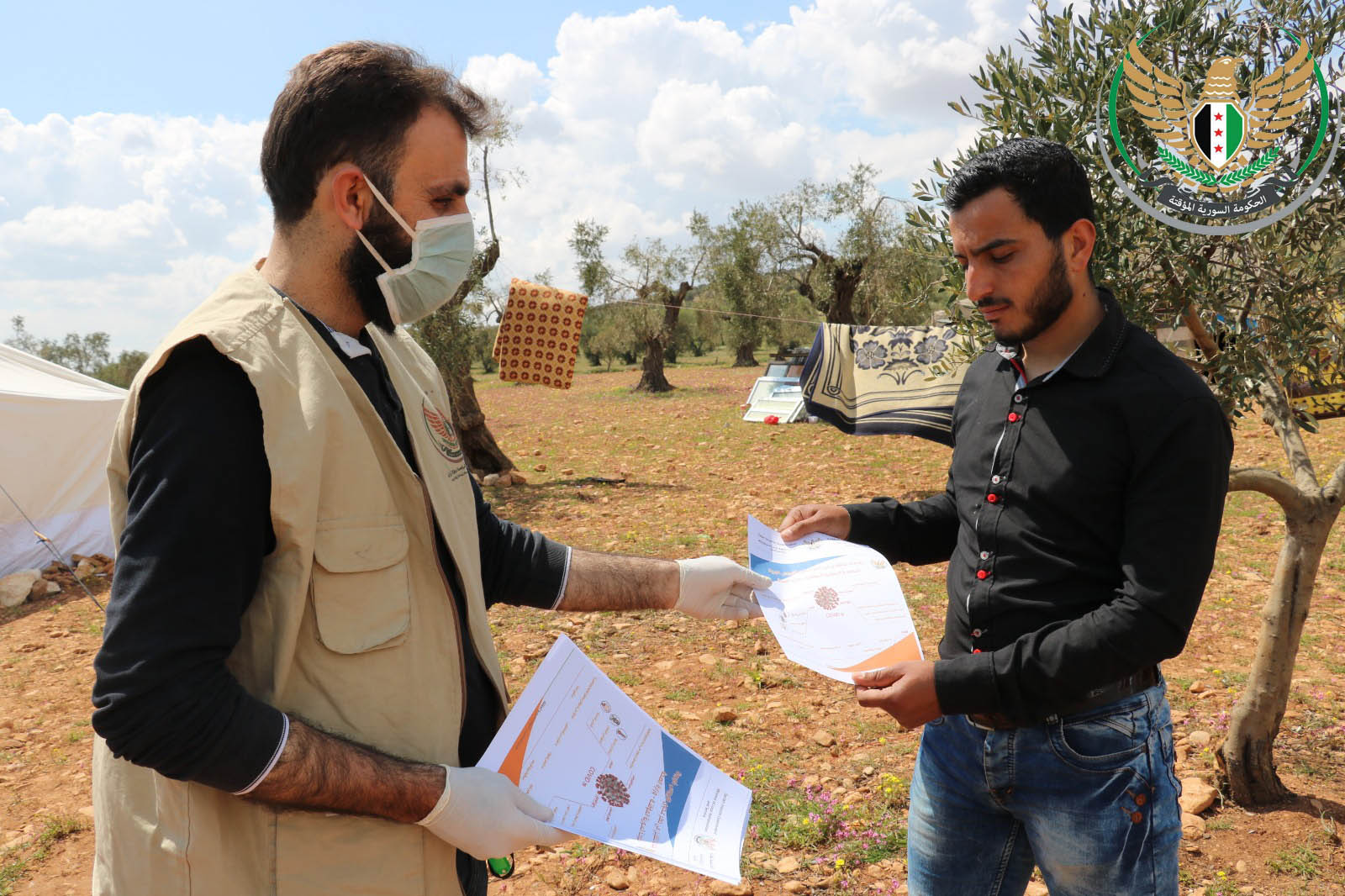
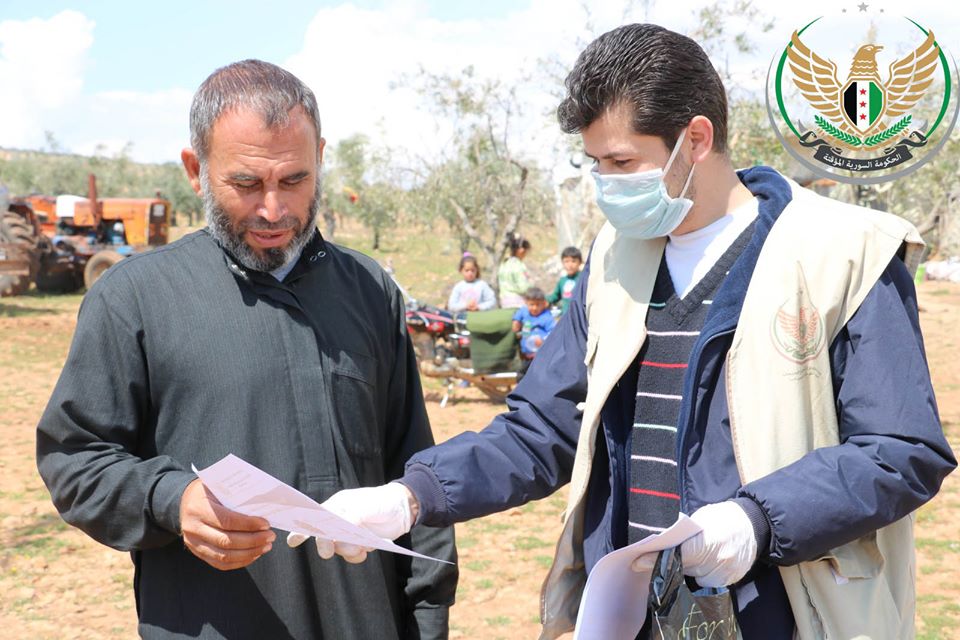
April 18:
Coronavirus in Syria: Why people are not complying with self-isolation order in Syria’s al-Bab
April 17:
The first artificial breathing device created in north Syria
Due to the coronavirus, the only road to the Rukban IDP camp was closed by the regime, creating deteriorating conditions and limiting food aid. The Syrian interim government calls upon the regime to shoulder its humanitarian and moral responsibility to relieve our people in the camp to protect them from another disaster if the coronavirus spreads
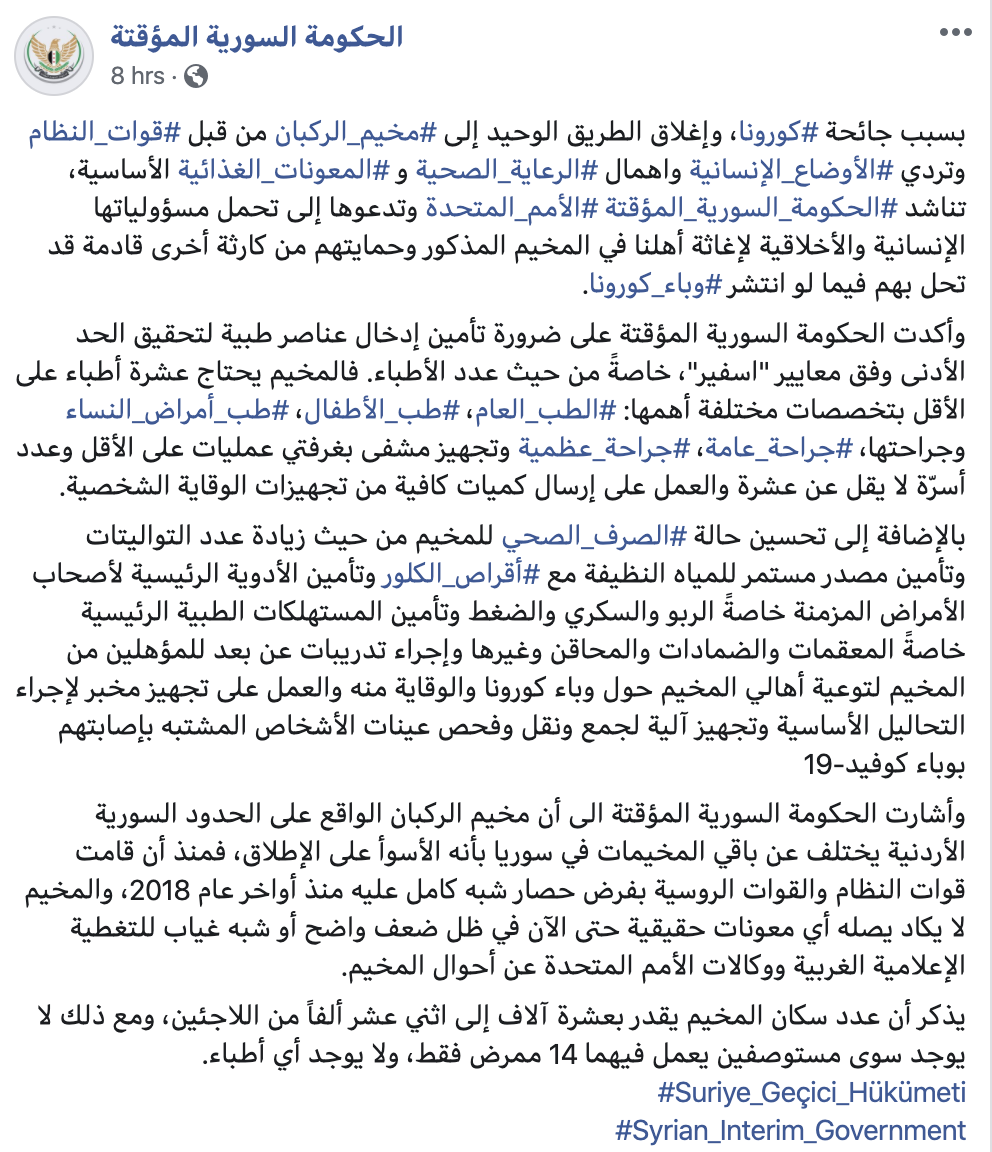
In order to address the spread of the coronavirus the Syrian interim government issued a resolution yesterday that has been made to all the ministries and their affiliate agencies
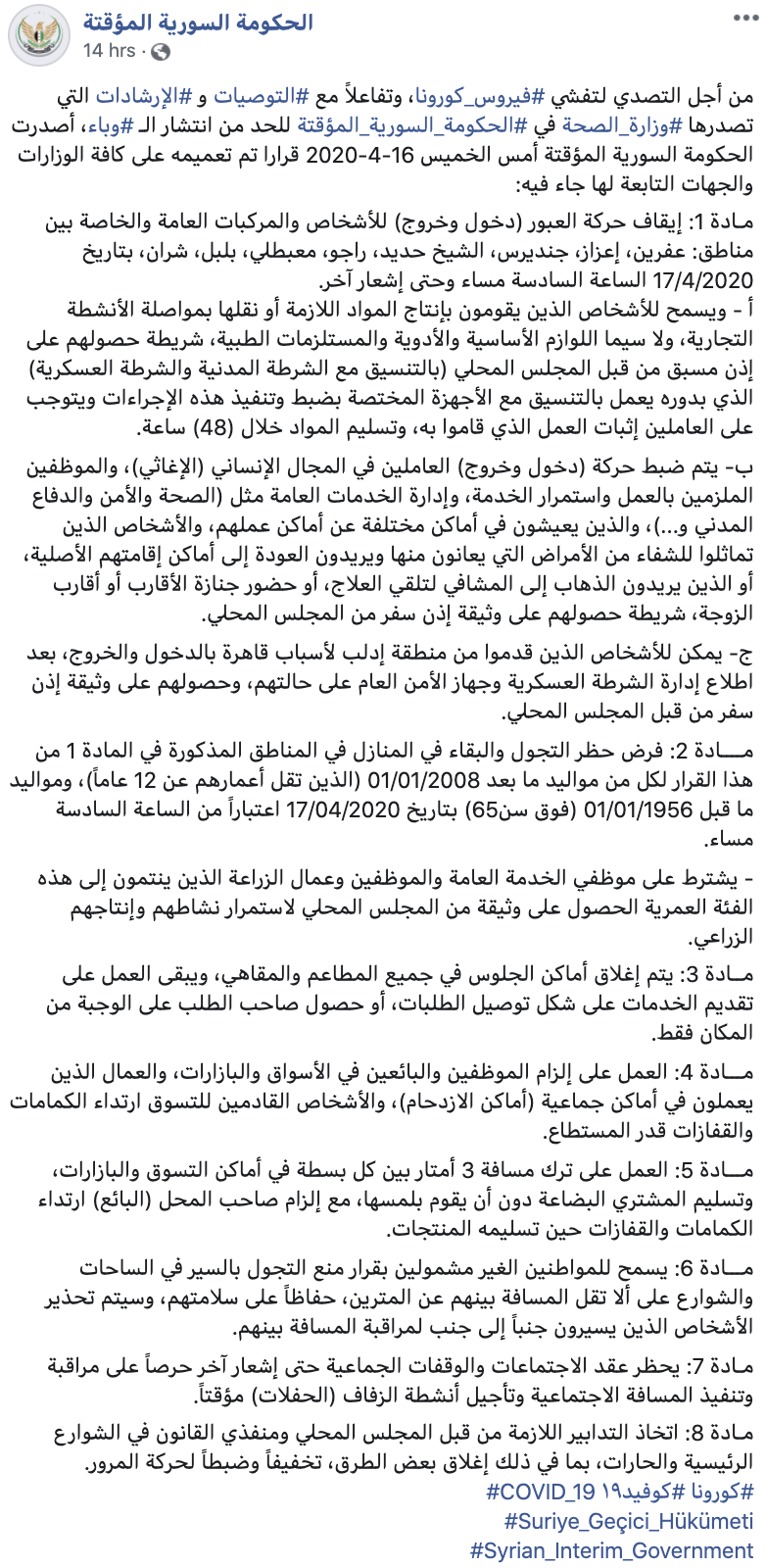
April 16:
Dr. Mundhir Khalil, Director of Idlib Health, talks about the latest updates on the volunteers’ campaign against the corona, with an explanation of the second phase of the campaign
April 15:
The Aleppo health Director of the ministry of health of the Syrian interim government, Dr. ‘Abd al-Basit Shayukhi, has announced the overall activities and preparations being done to counter any spread of the coronavirus in northwest Syria, which includes the purchase of screening laboratories, training, and isolation centers for patients
The waqf and religious authority in the Syrian interim government has issued a new circular to all the schools and sharia institutions in the liberated areas: suspension of work until April 29
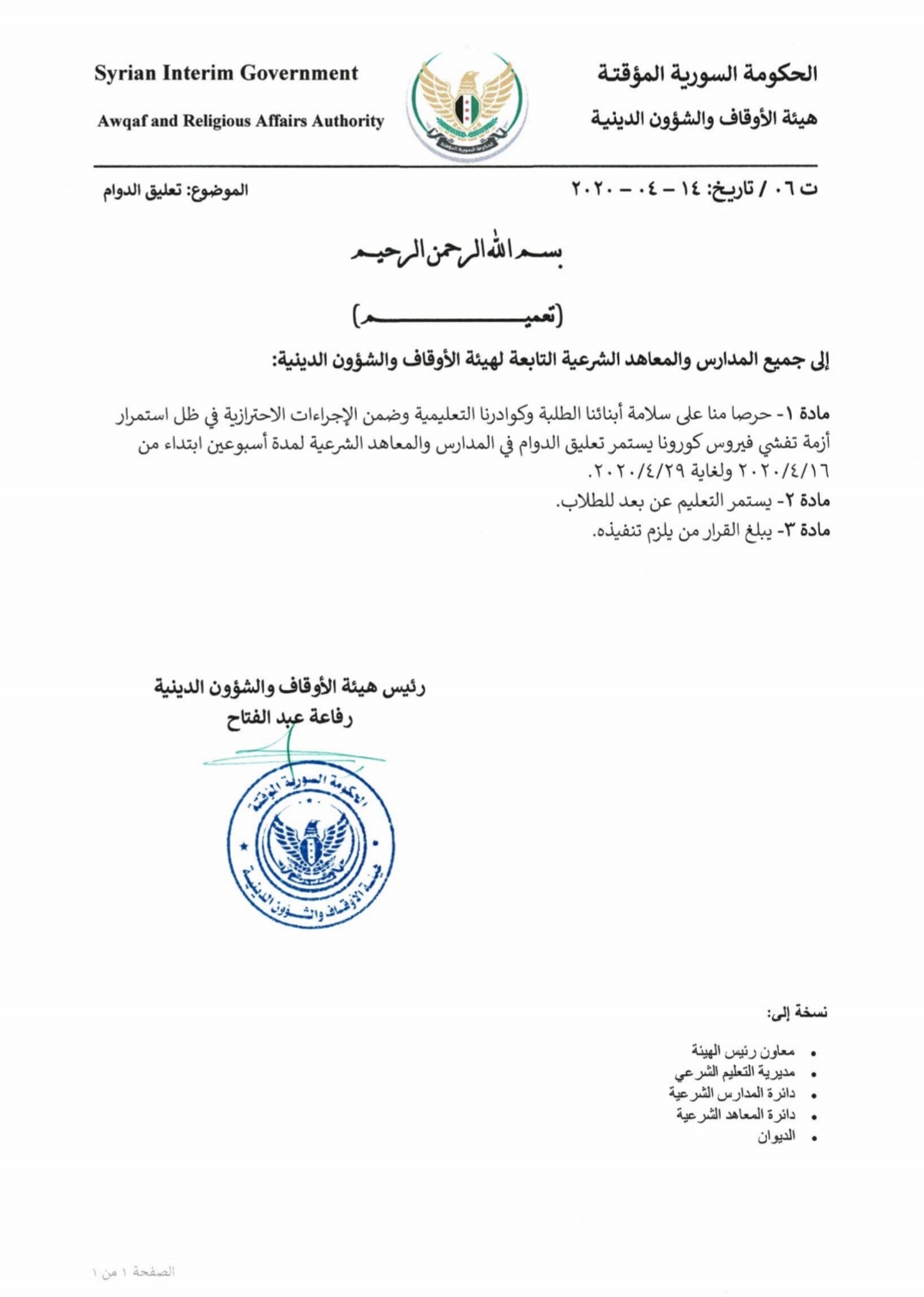
April 14:
In order to review health projects and health situation in general, a delegation from the Syrian interim government visited the al-Bab in northern Syria, headed by external relations official Yasir al-Haji, director of health in Aleppo Dr. ‘Abd al-Basit Ibrahim, the director of Agriculture in Aleppo, and members of the health directorate
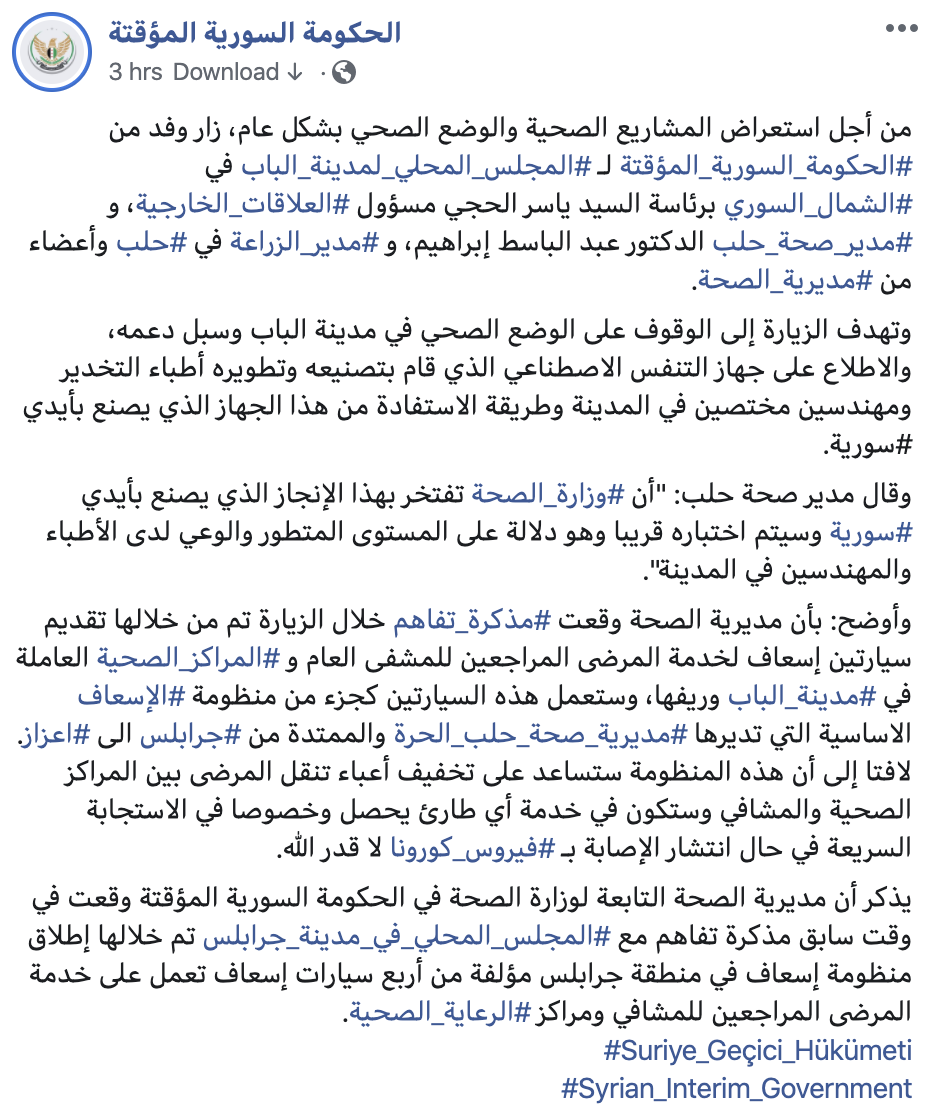
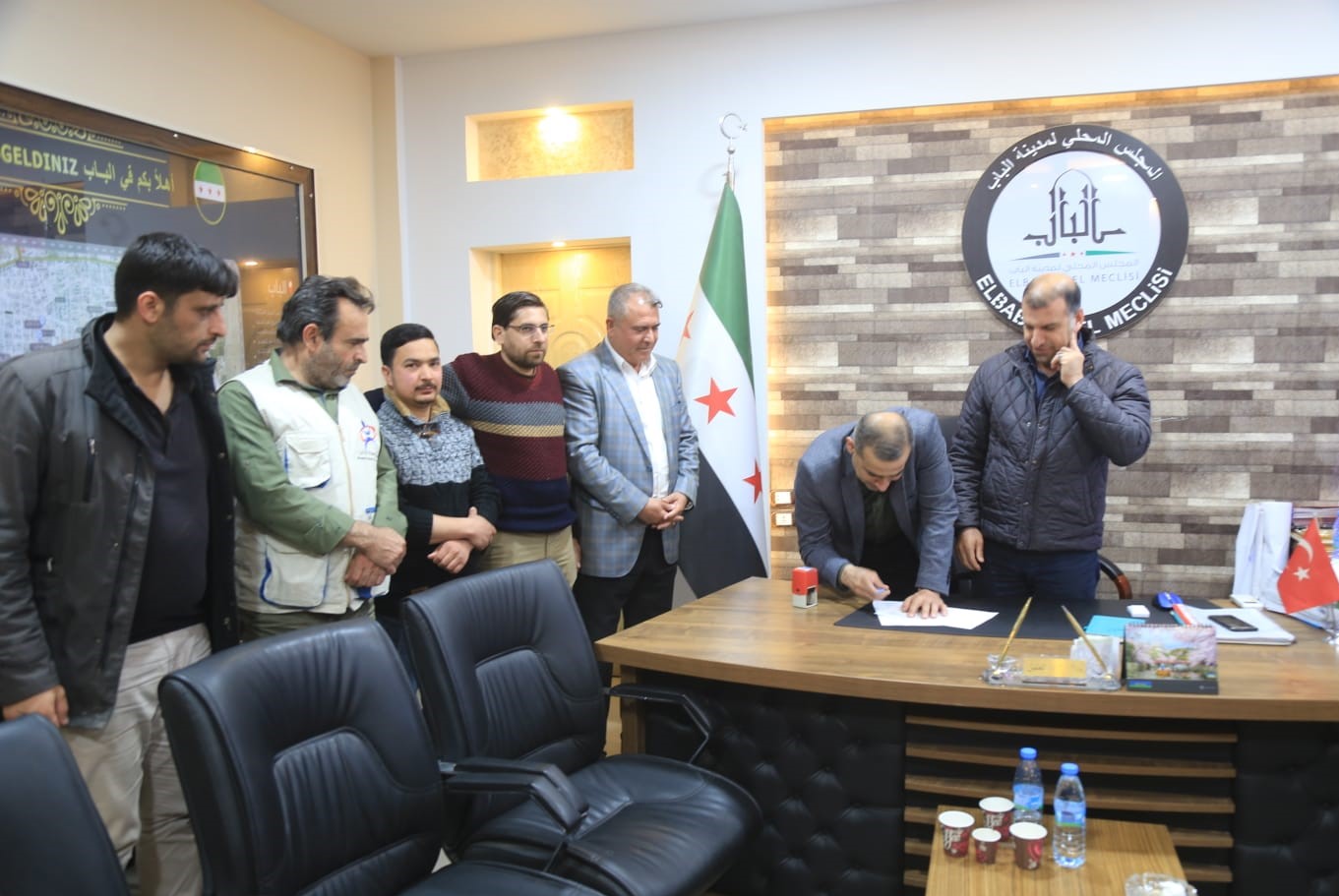
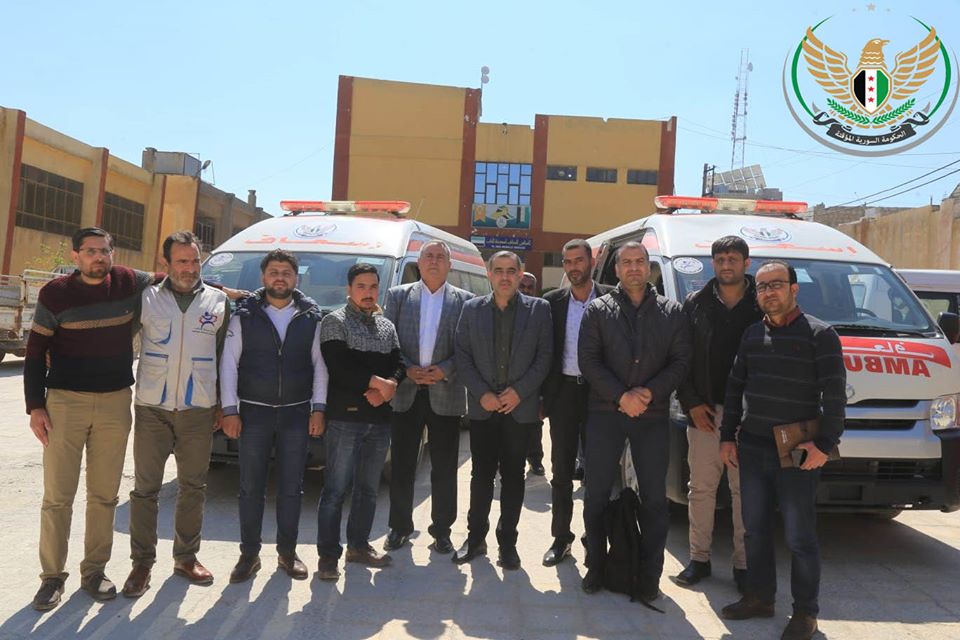
April 13:
How Syrian opposition is trying to stop coronavirus from reaching its areas
April 12:
Mustafa Hadj Yusef, director of the Civil Defense Foundation in Idlib, spoke about the “volunteers against Corona” campaign and its role in organizing work to overcome this stage and confront any possible spread of the Corona virus. Always remember that our safety is in our solidarity.
Steps for organizations to join a volunteer campaign against the Koruna. Our safety is in our solidarity
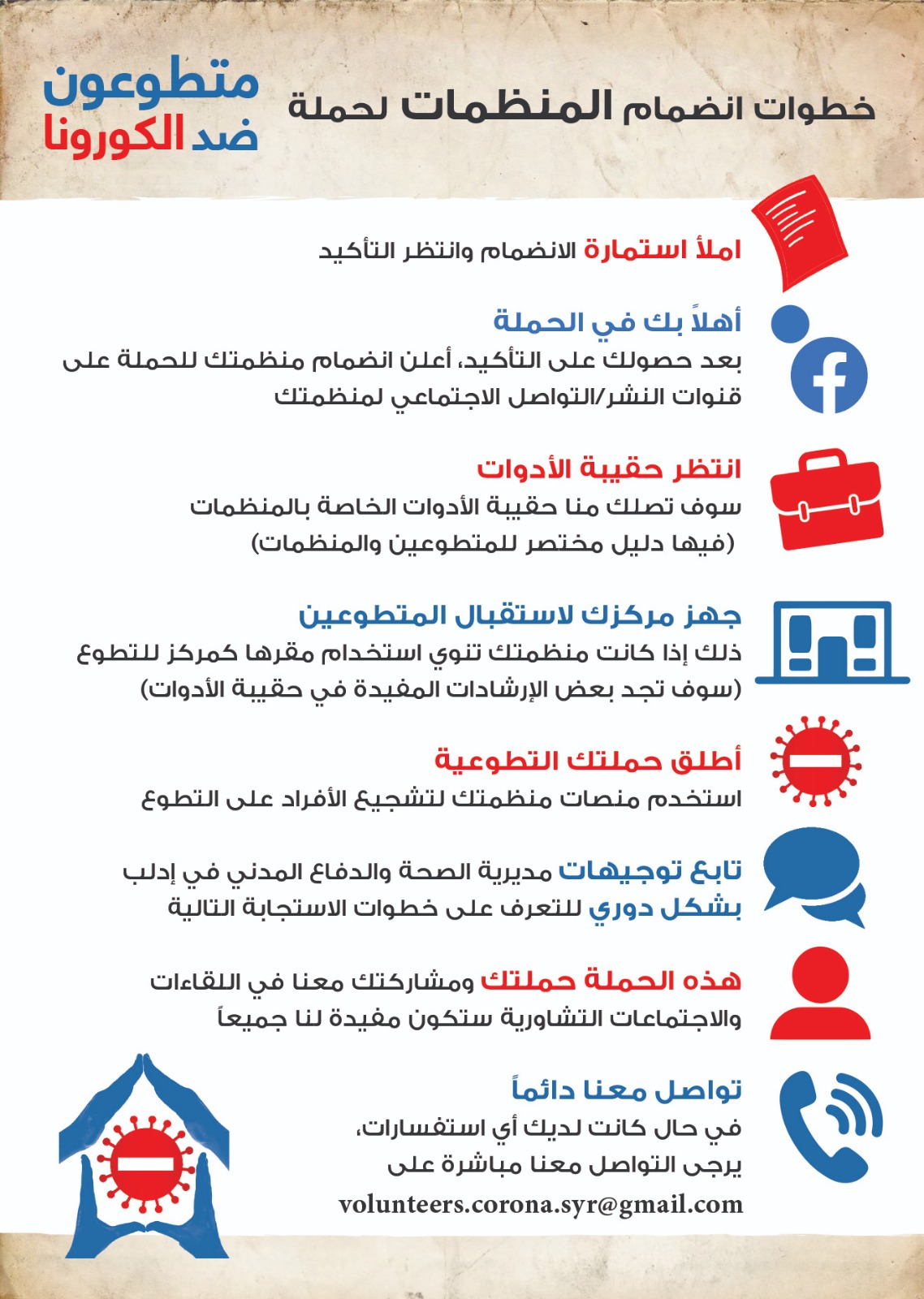
Citizens of Jarablus took to the streets today to protest the closure of roads into the Peace Spring areas due to the spread of COVID-19. SNA fighters took to the streets to disperse them with gunfire and seemed to enjoy it
April 11:
Dr. Mundhir Khalil, director of idlib health, talks about the latest updates related to the campaign as a solution and recommendations
Volunteers against corona initiative
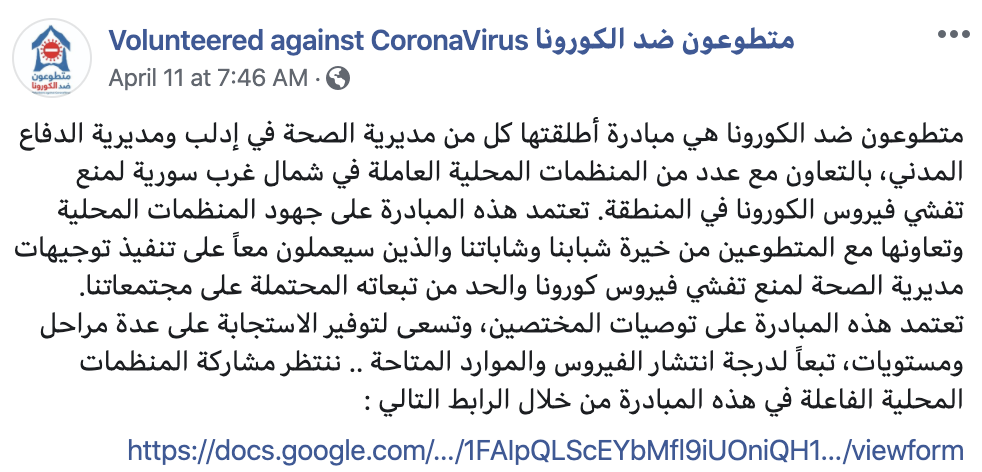
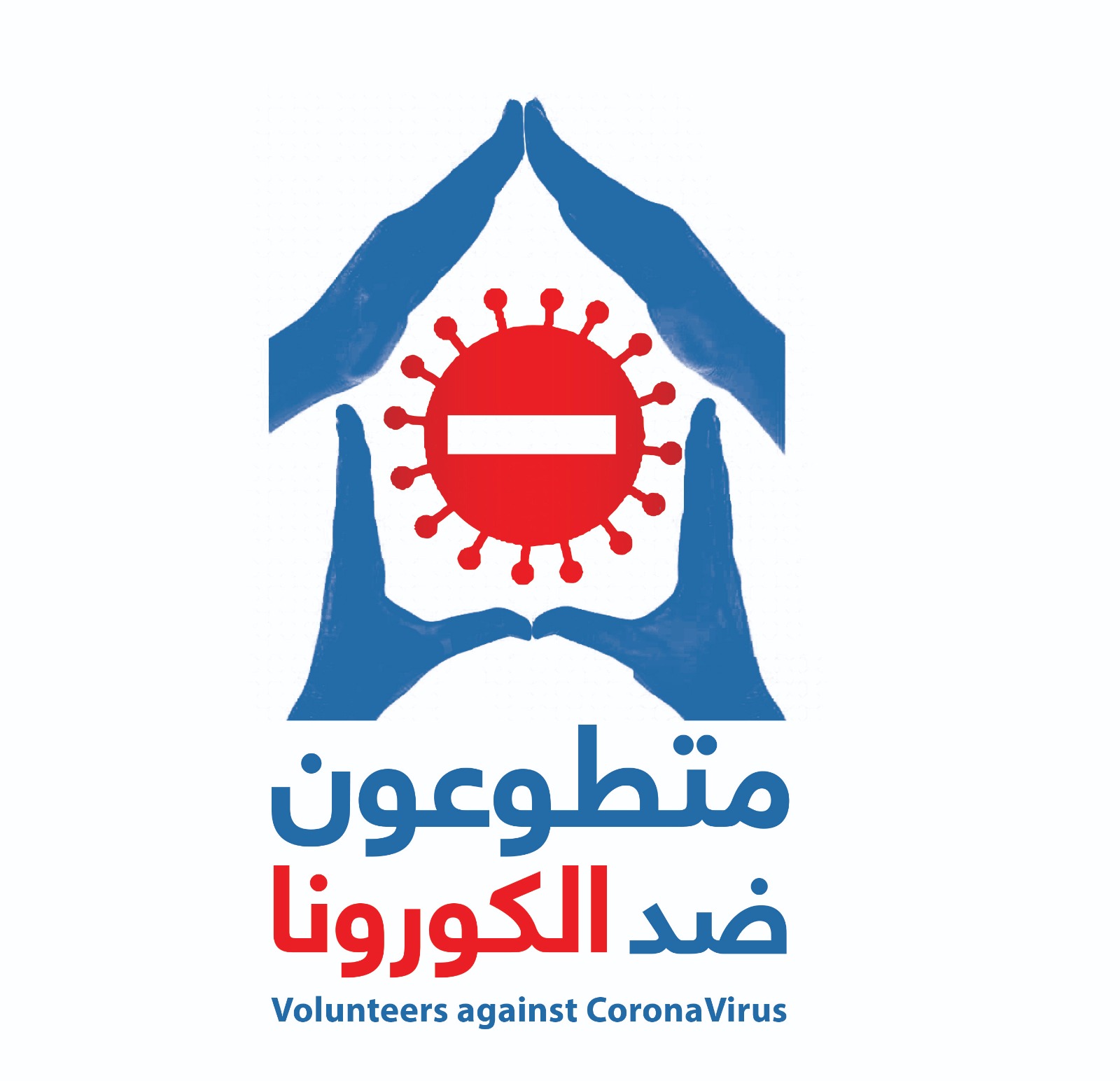
The Minister of Health of the Syrian Interim Government Dr. Maram Sheikh said that the cases checked yesterday reached 26 suspected cases, making the total samples examined so far are 118 cases, which are negative. This indicates that there is no trace of the virus in the liberated areas, in the absence of any activity of the World Health Organization
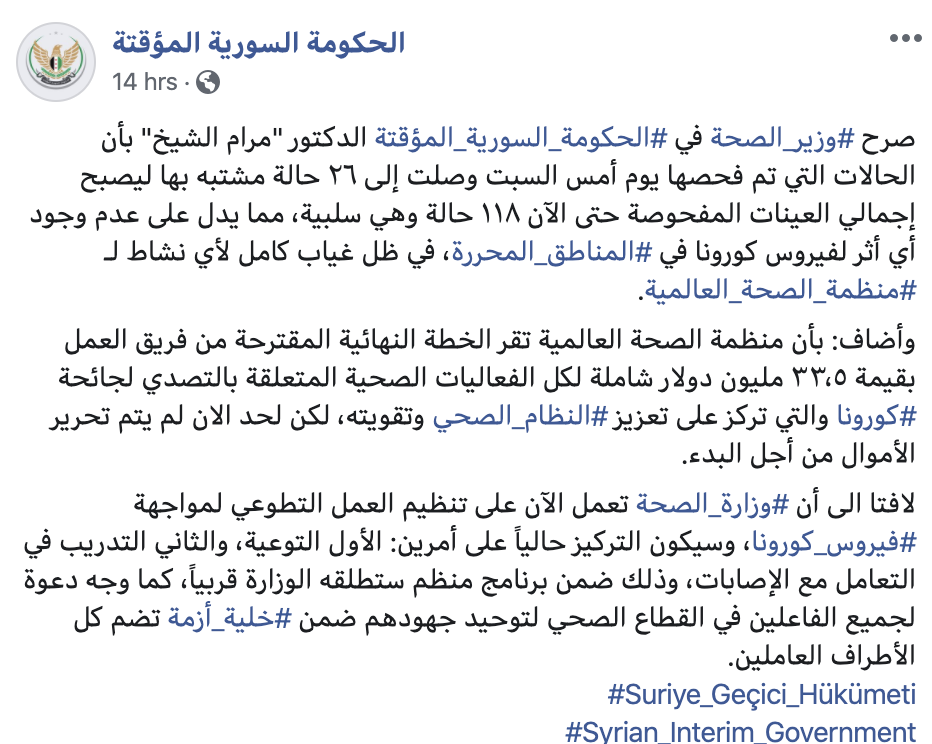
Medical and Pharmacy students initiate awareness campaign on Coronavirus for IDPs in rural Aleppo
April 9:
As part of the preventive measures for coronavirus, the directorate general of the ministry of finance of the Syrian interim government has created a carwash to fully clean vehicles inside and outside for safety
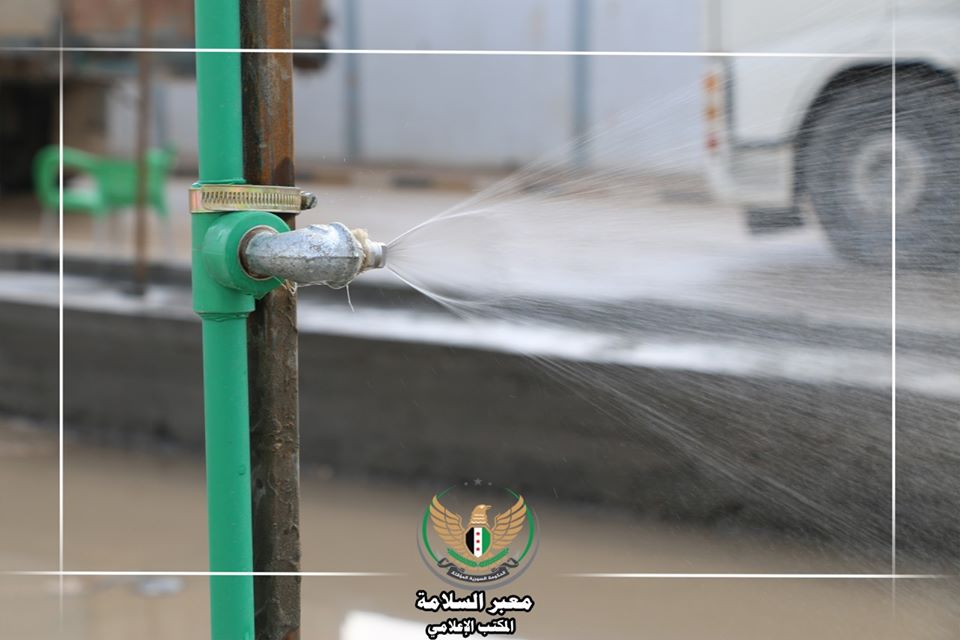
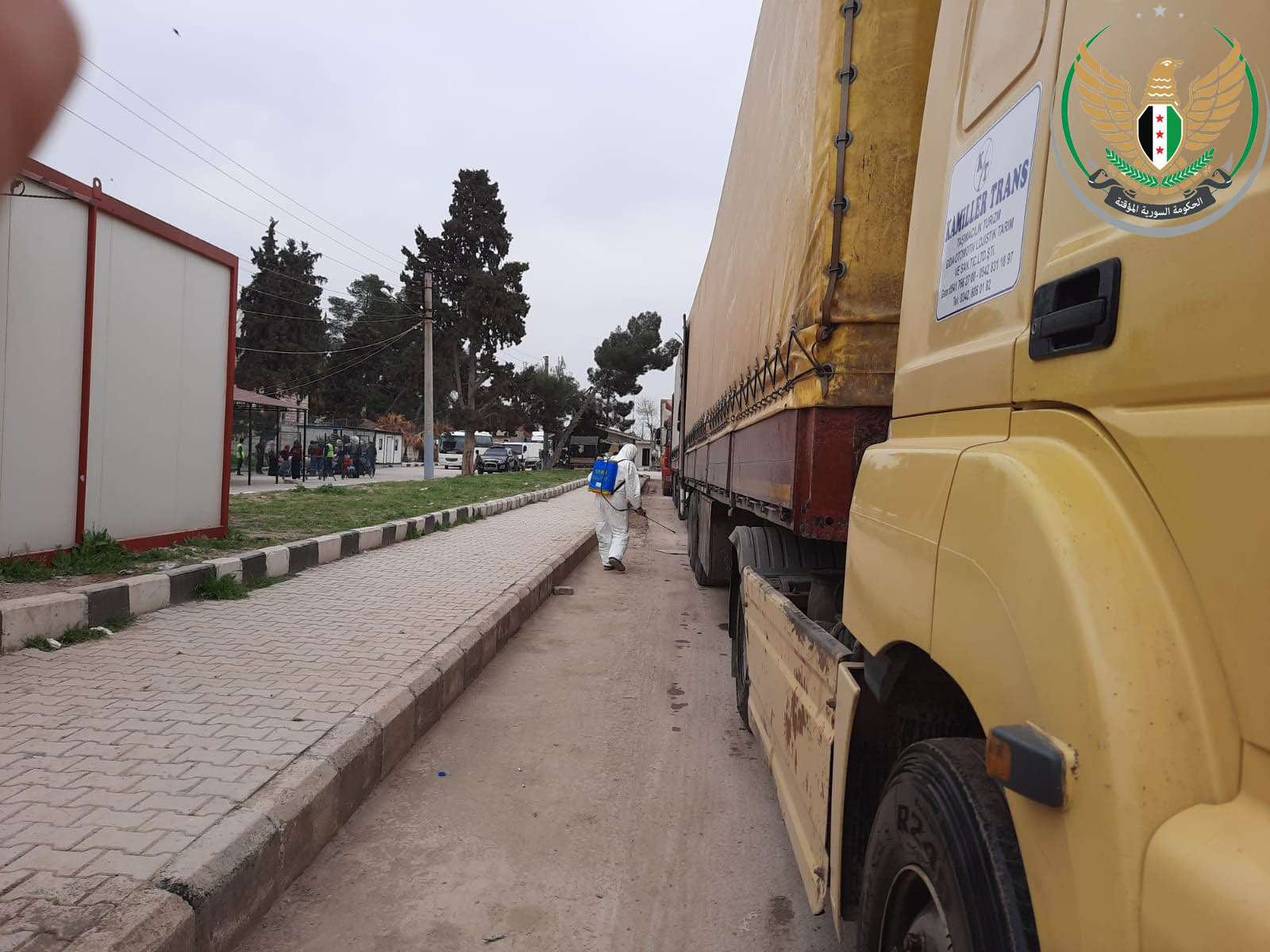
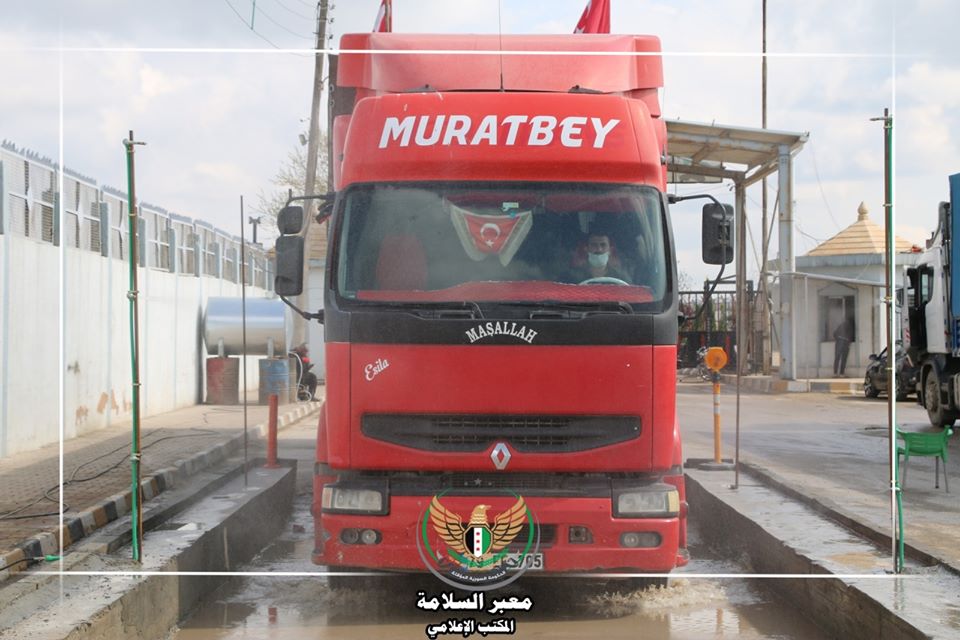
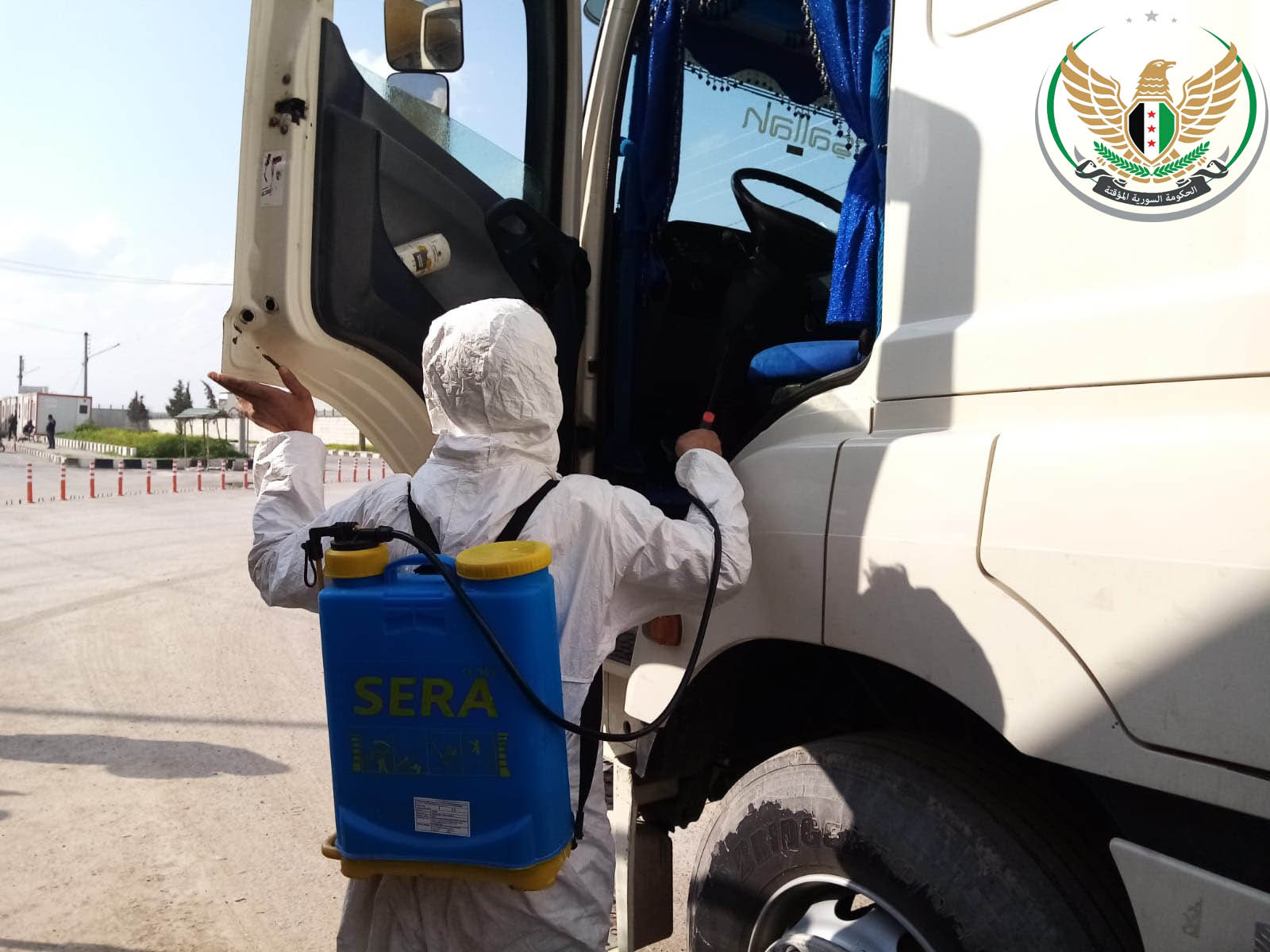
April 7:
The Ministry of defense of the Syrian interim government issued a circular to the corps and the military police department in which they referred to the efforts of the national army formations on border to protect the region from all that would threaten the security of citizens and stressed the follow-up and tightening of actions to prevent the smuggling of people and goods through crossings of contact with the criminal regime and areas of control of gangs as a preventive measure against coronavirus
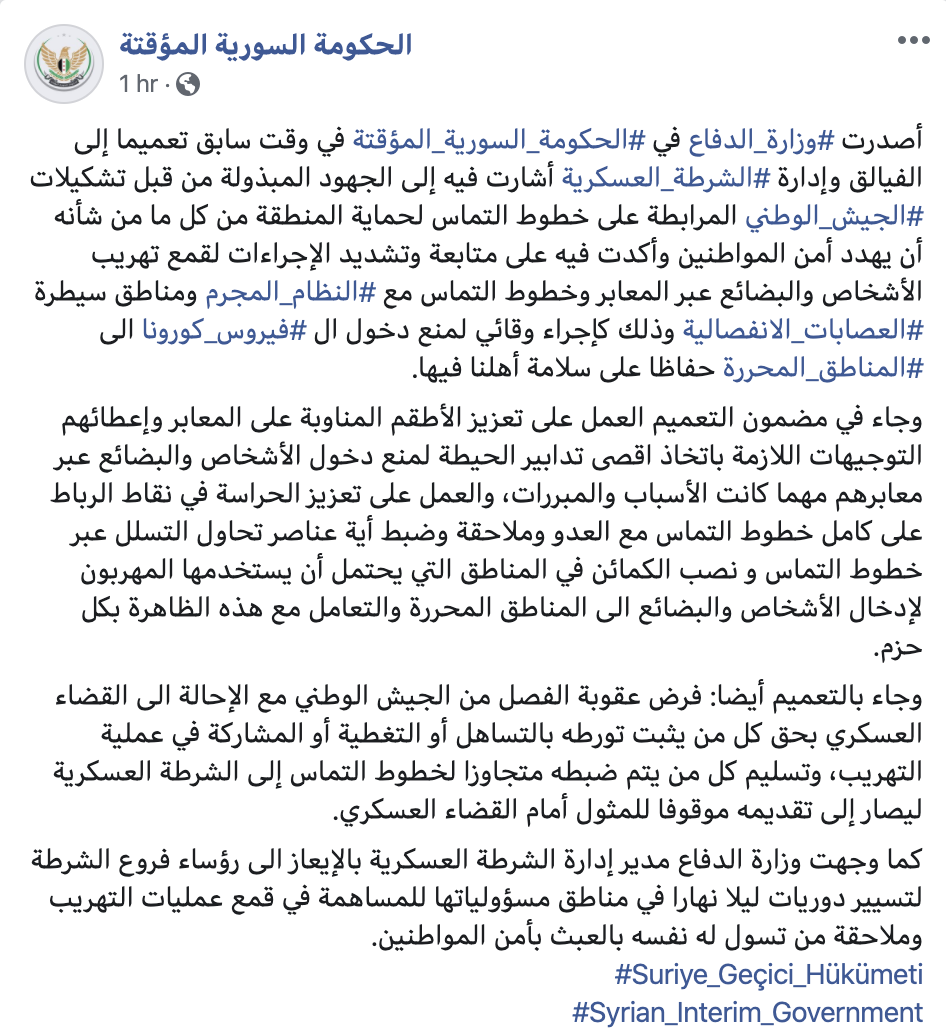
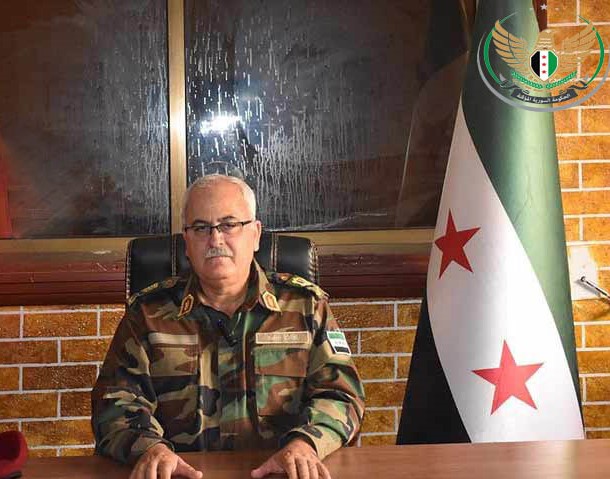
Awareness lecture on “Coronavirus” in northern rural Aleppo
April 6:
Syrian students turn to e-learning amid pandemic
April 5:
How is the interim government preparing for the coronavirus crisis?
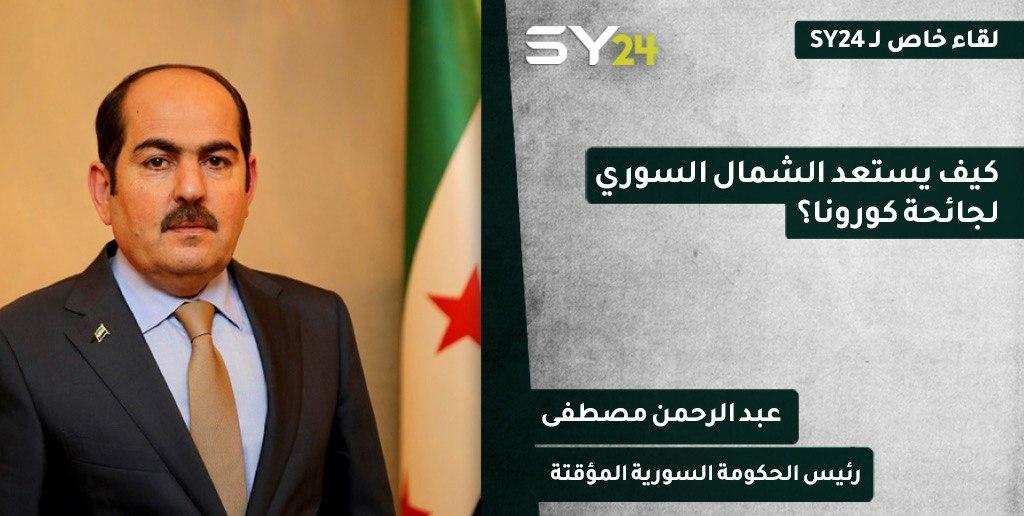
The coronavirus pandemic in north Syria
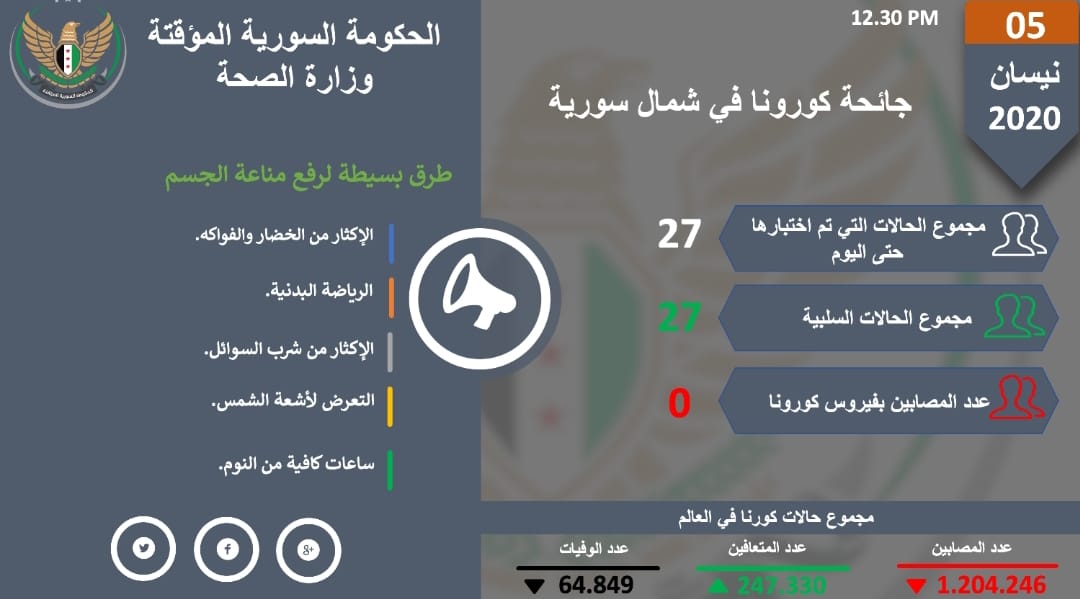
April 4:
The Minister of Finance and Economy confirms the continued closure of the crossing points with the regime to prevent the spread of coronavirus to protect the safety of citizens in the liberated areas
The Awqaf and religious affairs authority issued a circular to all schools and sharia institutions to suspend work until the date April 15
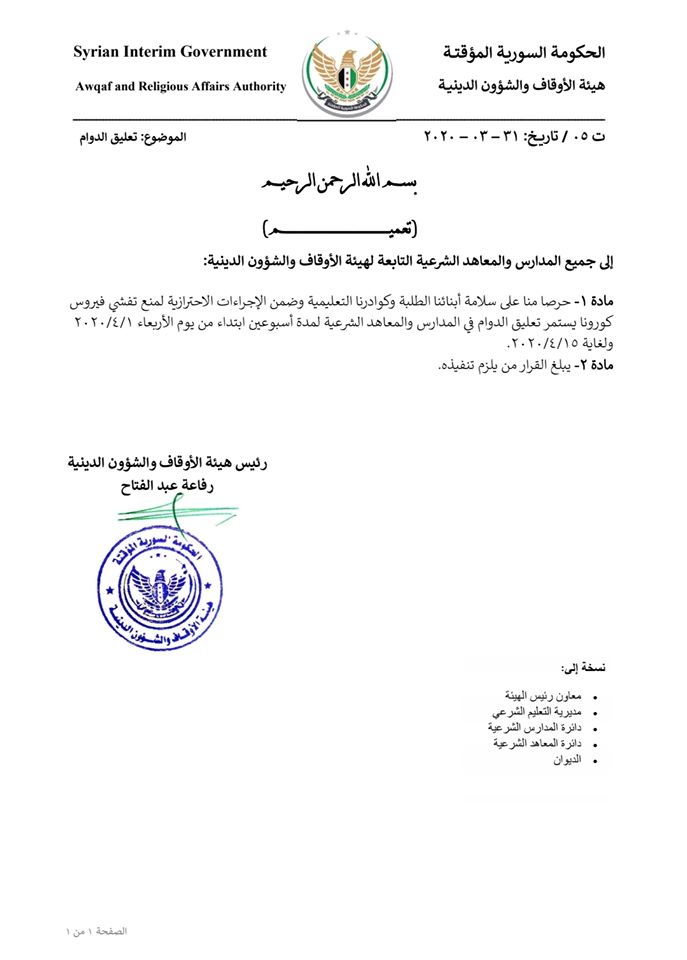
The coronavirus pandemic in north Syria
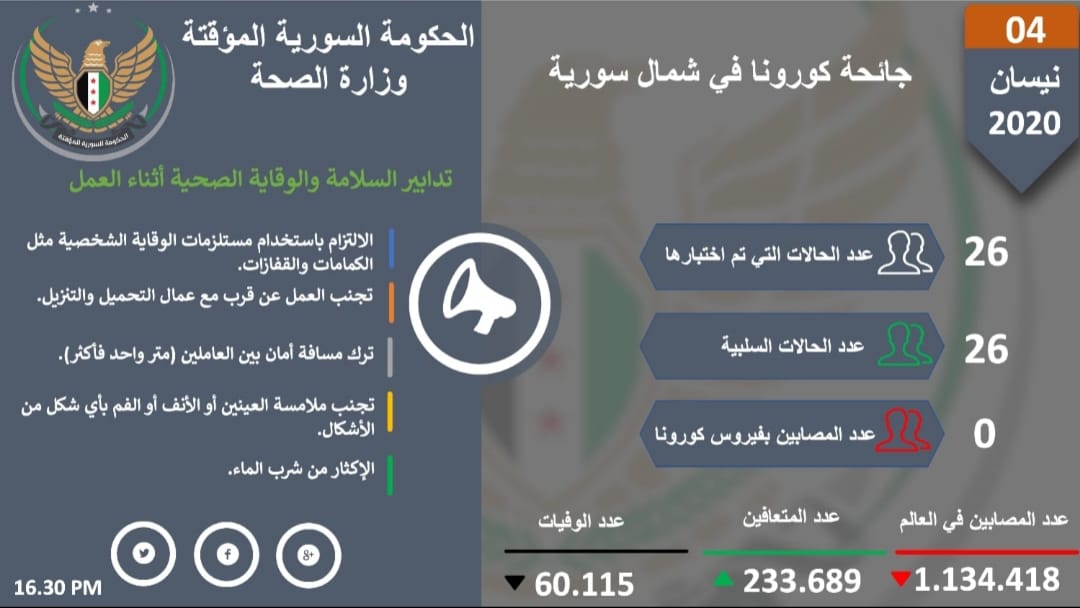
‘Abd al-Rahman Mustafa, president of the Syrian interim government: we have taken several measures to counter the coronavirus
April 3:
Among the actions taken to prevent the spread of the coronavirus, the president of the Syrian interim government, ‘Abd al-Rahman Mustafa, issued a general pardon for crimes committed before 4/1/2020
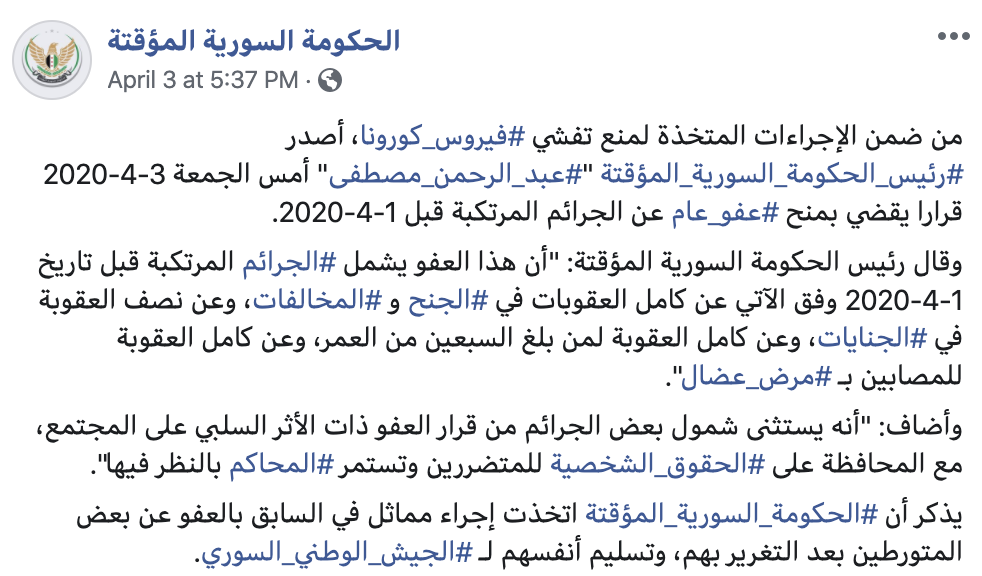
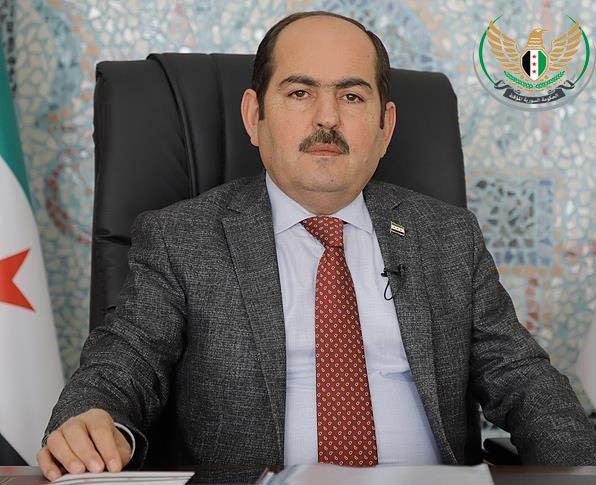
April 2:
The Syrian interim government has issued a resolution continuing the closure of three internal crossing points: al-Humran, Awn al-Dadat, and Abu Zindin until further notice
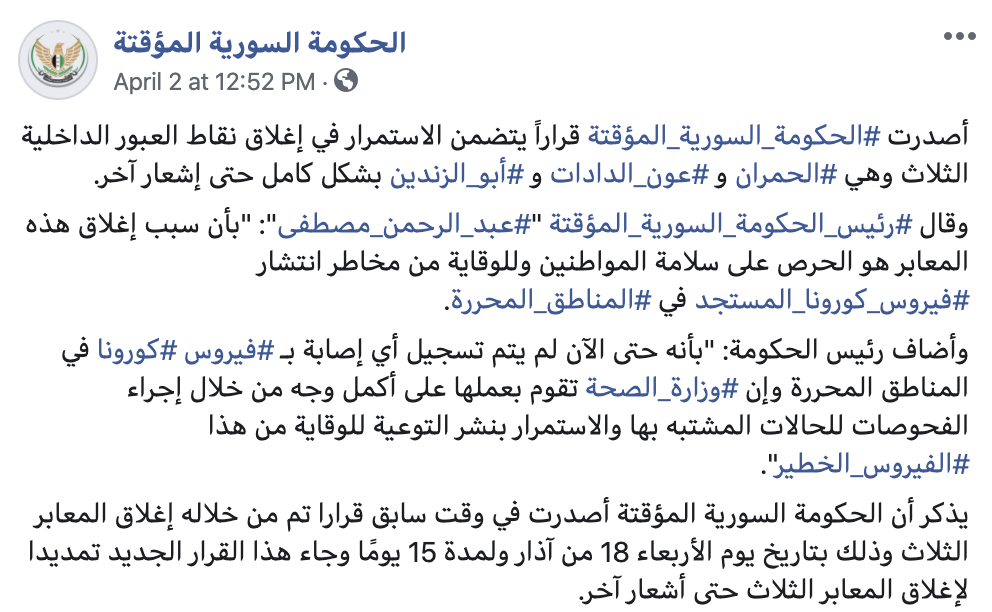
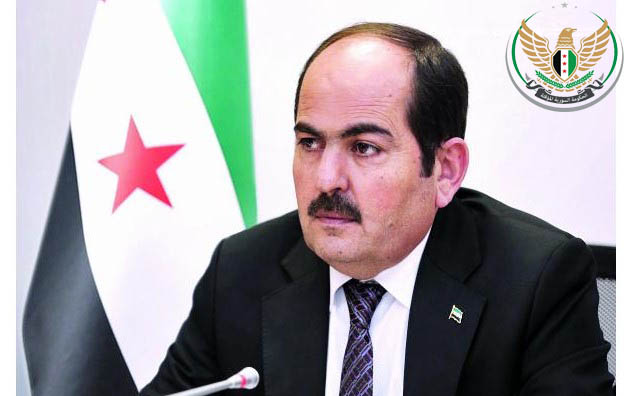
April 1:
The Minister of Health Dr. Maram Sheikh, once again confirms that the liberated north is free of coronavirus
March 31:
Strict measures to break up social gatherings in al-Bab city
Guidelines to reduce the risk of infection from coronavirus
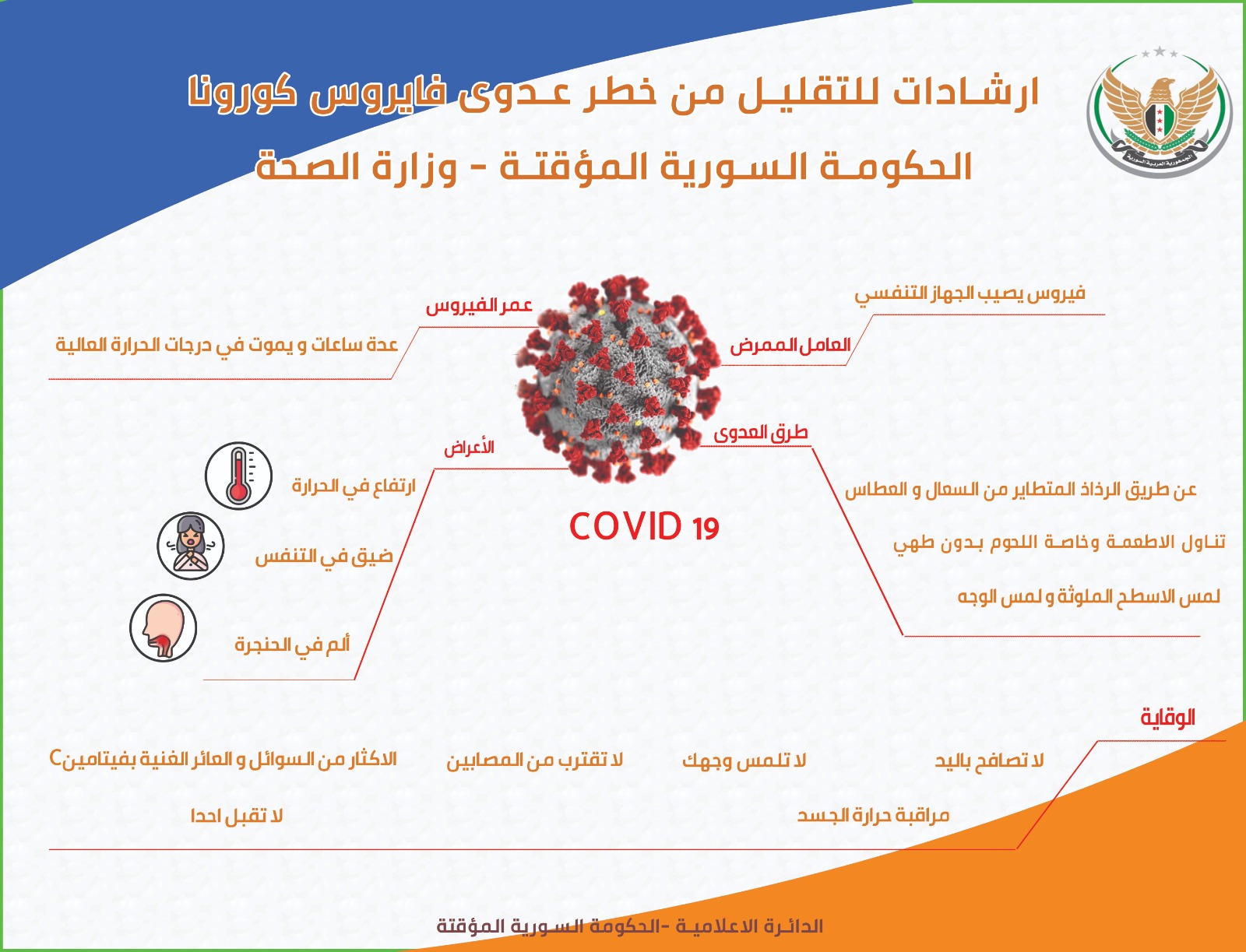
March 30:
Syria Civil Defense disinfecting facilities and IDPs’ camps in rural Aleppo
The Minister of Health Dr. Maram Sheikh talks about the latest updates on the coronavirus in the north and providing tips and guidance to prevent this dangerous virus
The Minister of Education Dr. Huda al-Absi said that the ministry has taken new additional measures to prevent the spread of the coronavirus Syria
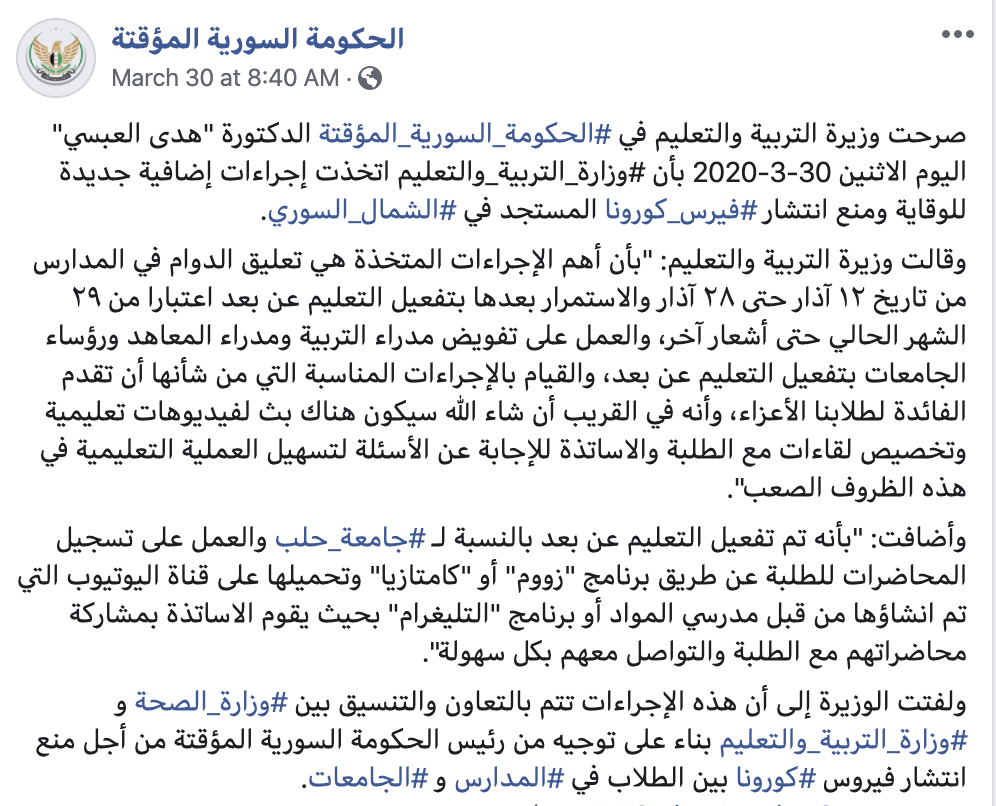
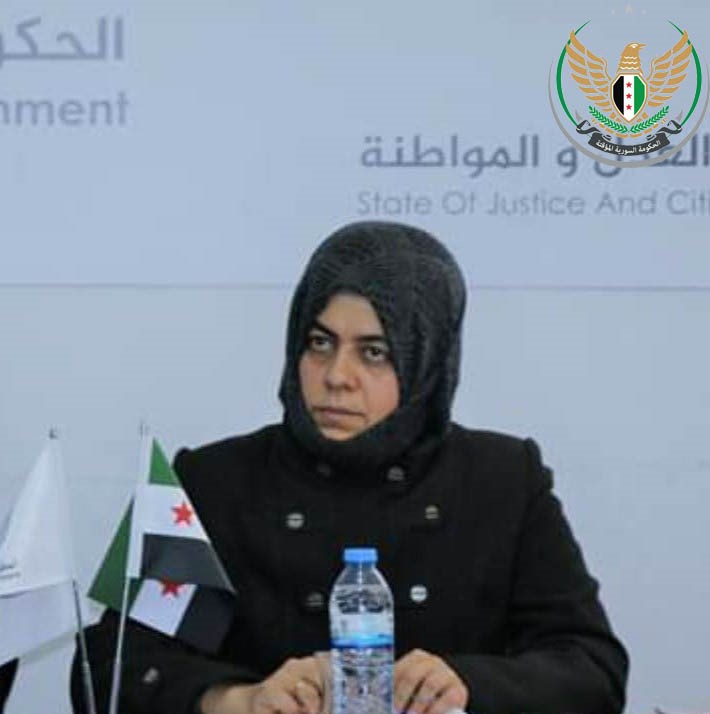
March 29:
Precautionary measures to prevent the spread of the coronavirus
March 27:
The Aleppo Health Directorate in coordination with the local councils continue to distribute publications to prevent coronavirus to include all targeted areas in northern Syria
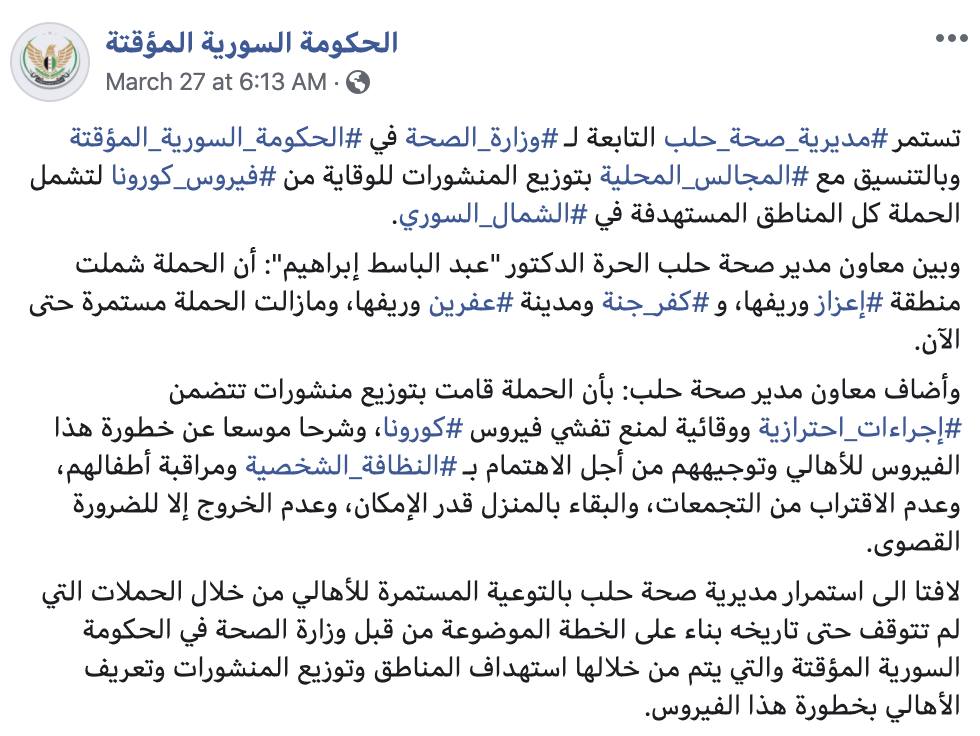
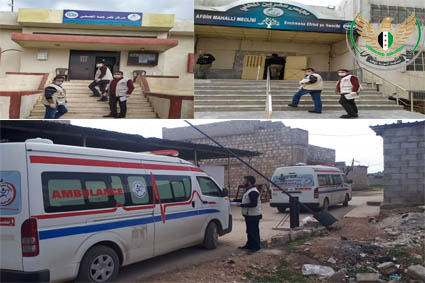
March 26:
In the light of the rapid spread of the coronavirus and to further preventive measures the head of the Syrian interim government ‘Abd al-Rahman Mustafa met with members of the political body and the minister of health Dr. Maram Sheikh and the deputy director of health in Aleppo Dr. ‘Abd al-Basit Ibrahim at the headquarters of the government’s representation in Gaziantep
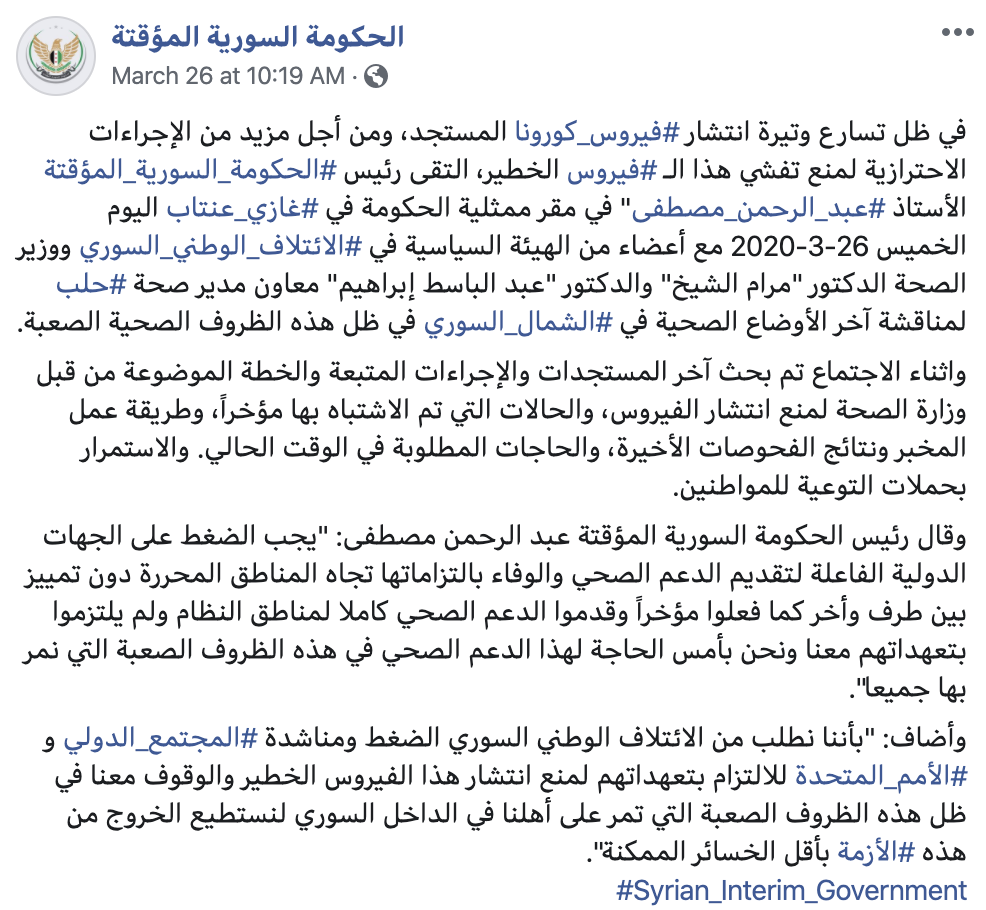
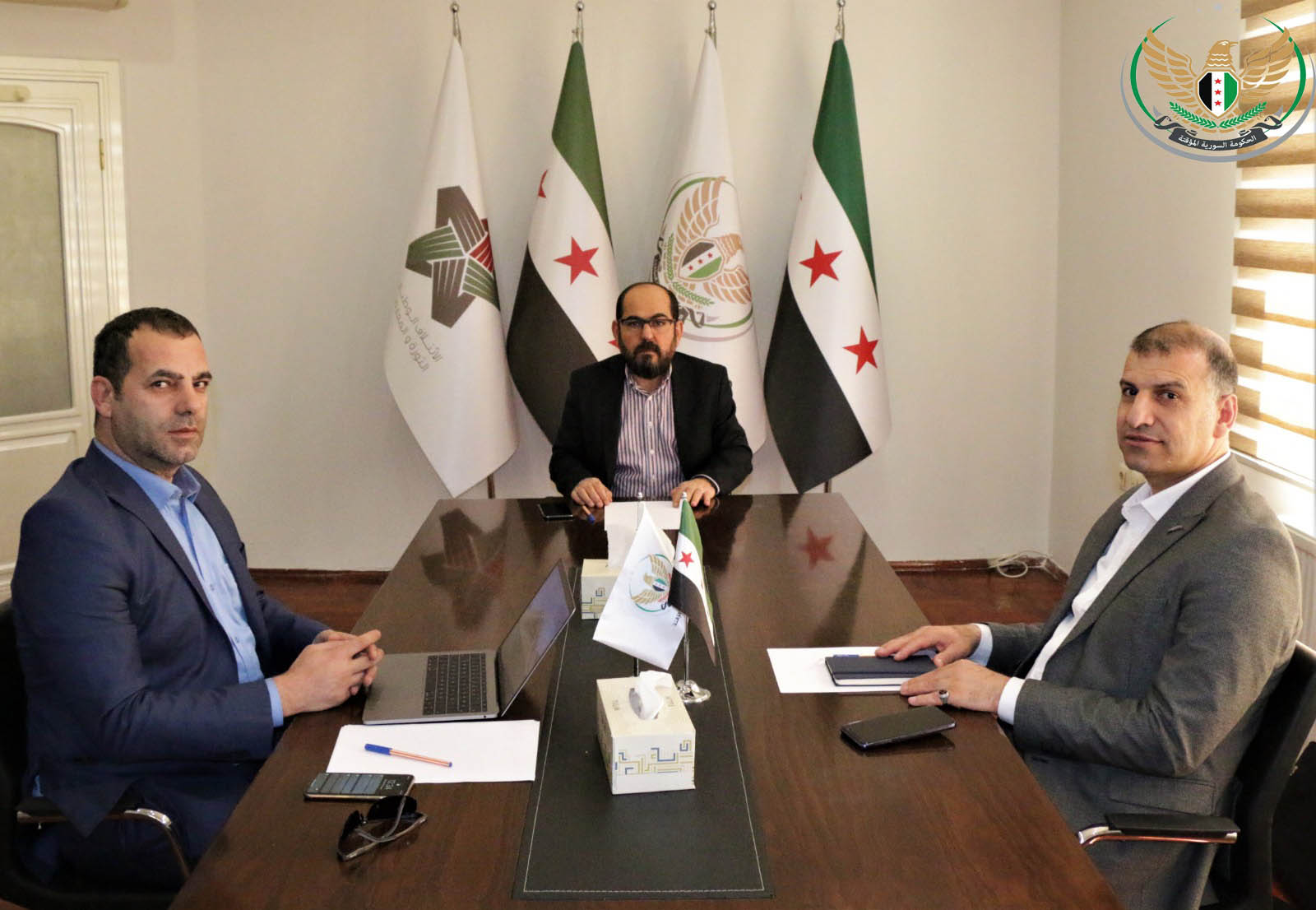
March 25:
Disinfecting vital installations by civil defense teams in northern Aleppo
Al-Bab city overcrowded despite awareness campaigns and closure of public utilities
Awareness campaign on Coronavirus in camps of rural Aleppo
March 24:
The Minister of Health Dr. Maram Sheikh said that in 24 to 48 hours the laboratory will start working on testing for the coronavirus and are on their way to hospitals and medical centers
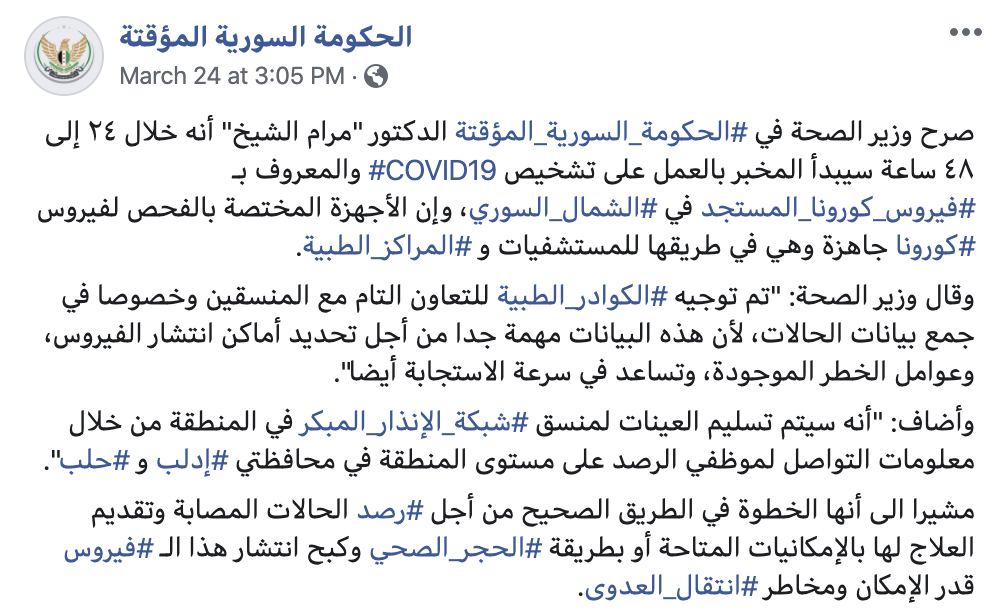

March 23:
At the headquarters of the Syrian interim government in Gaziantep via Skype a workshop entitled “preparations and gaps” related to coronavirus organized by the ministry of health
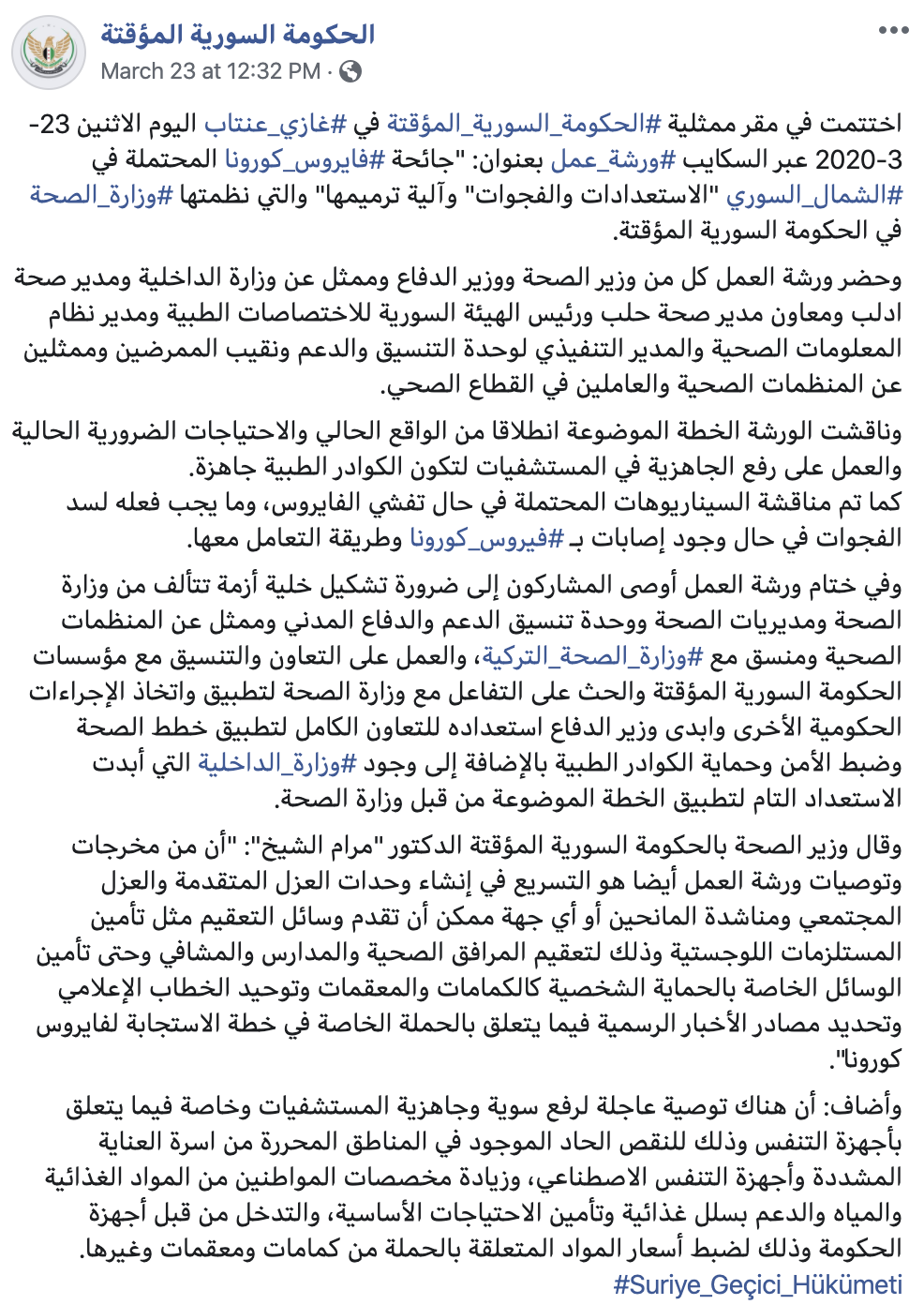
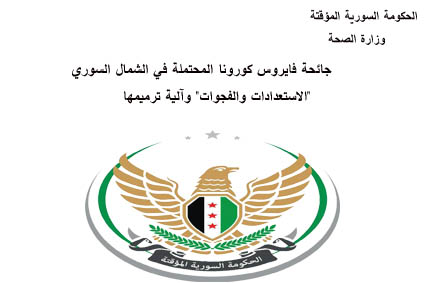
March 21:
The Minister of Health Dr. Maram Sheikh talks about medical tips and guidance to prevent coronavirus
On the Urgent Need for International Support to the Syrian Interim Government to Confront Coronavirus
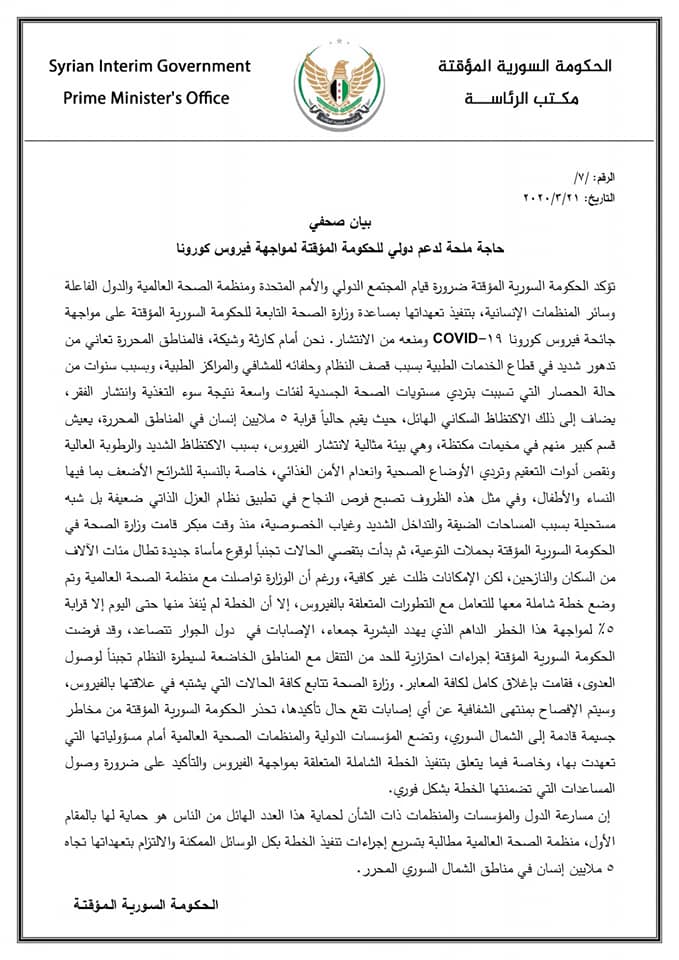
The Minister of Health “Maram Sheikh” called for measures to prevent the spread of the coronavirus
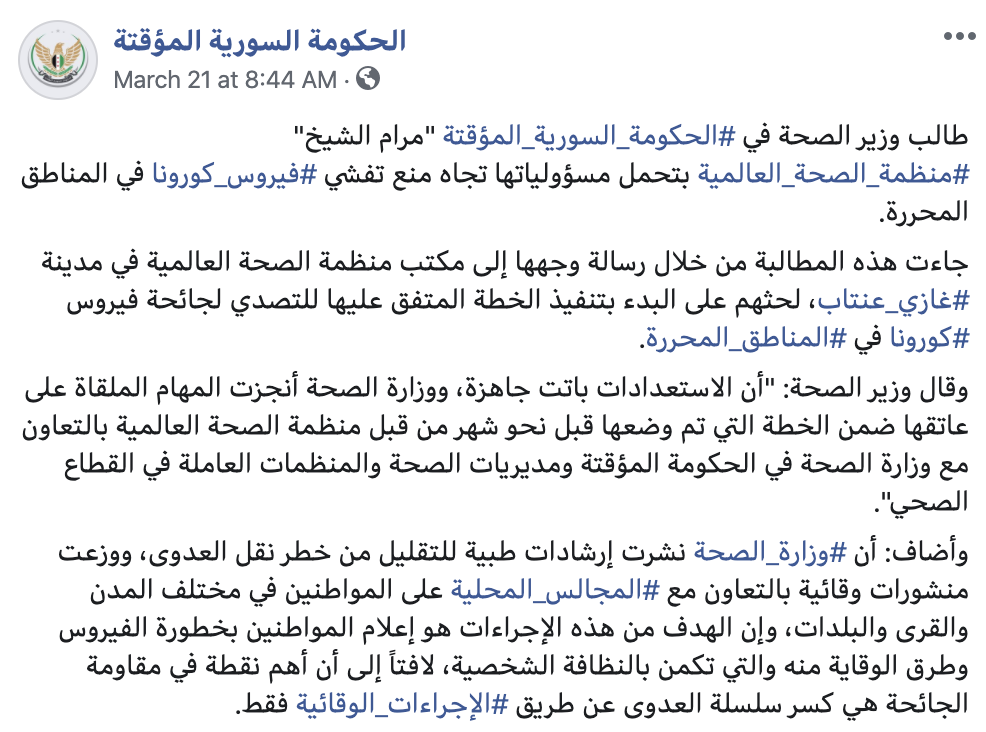
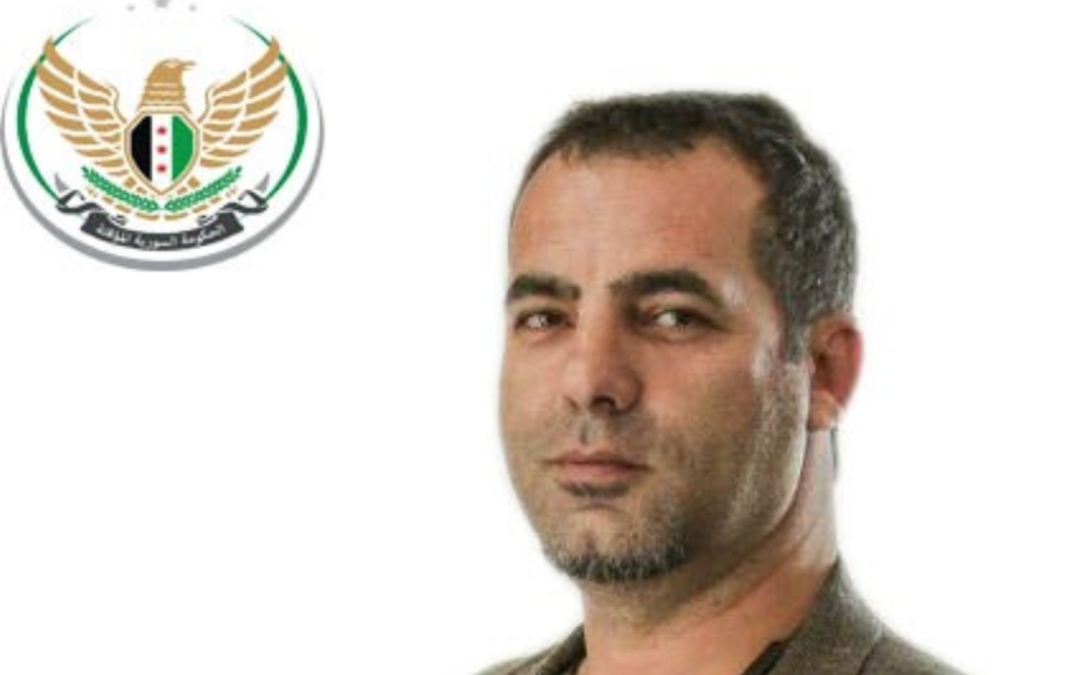
In order to take preventive action to help prevent the spread of the coronavirus the University of Aleppo met with the faculty and administrative staff about the establishment of a temporary mechanism to give lectures and work
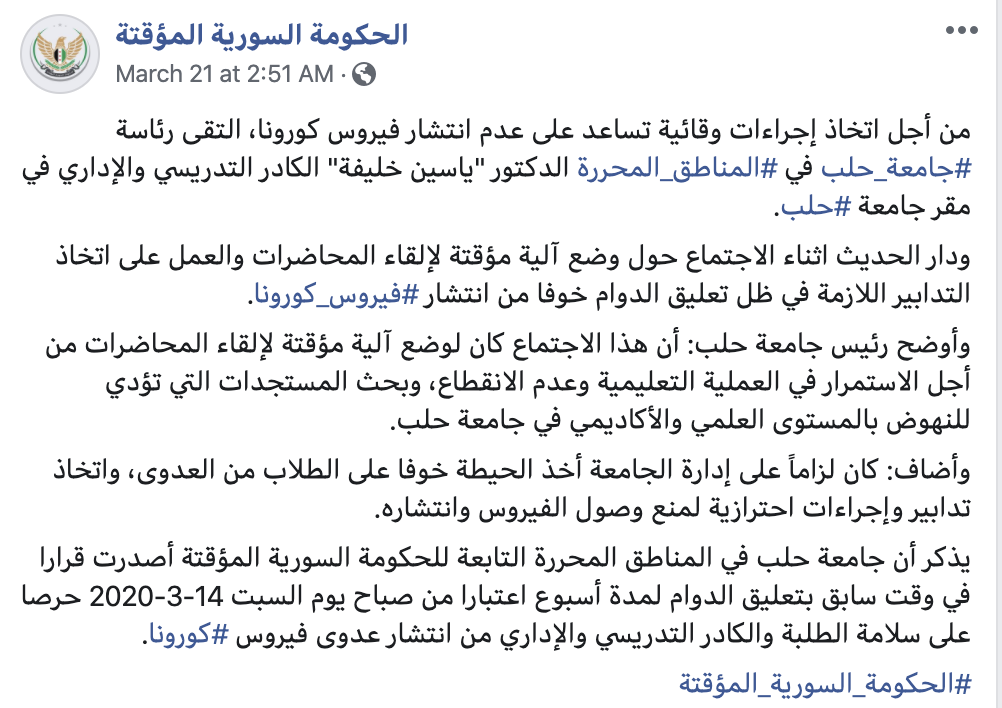
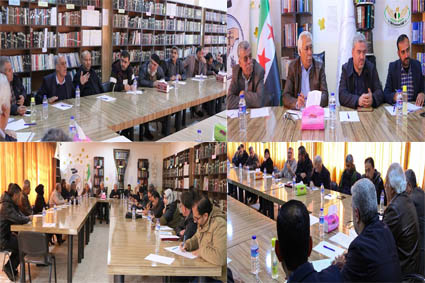
March 20:
Awareness campaign for IDPs in Afrin’s countryside on coronavirus (Covid-19)
The Awqaf and Religious Affairs Authority issued a circular in order to ensure the safety of our students and our educational facilities and as part of the prevention measures to prevent the spread of the coronavirus and the suspension of work until March 27
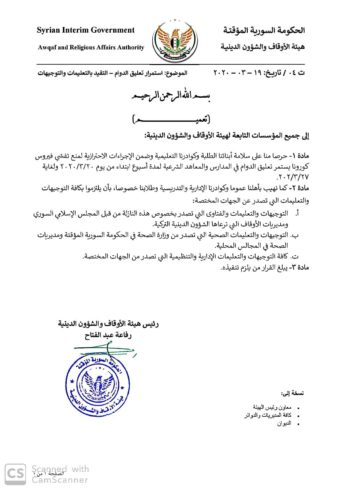
March 17:
Coronavirus checks taking place in Afrin city on those coming in via the Deir Ballut and Ghazawia crossings from other parts of Syria, no cases of coronavirus have been found in the Olive branch areas
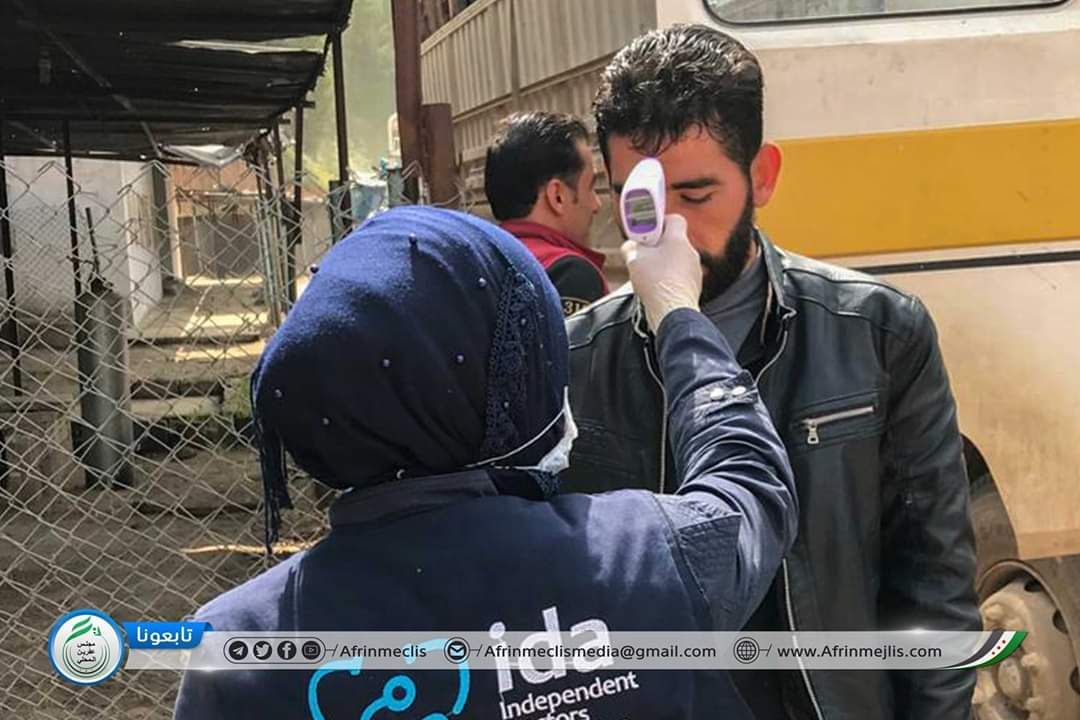
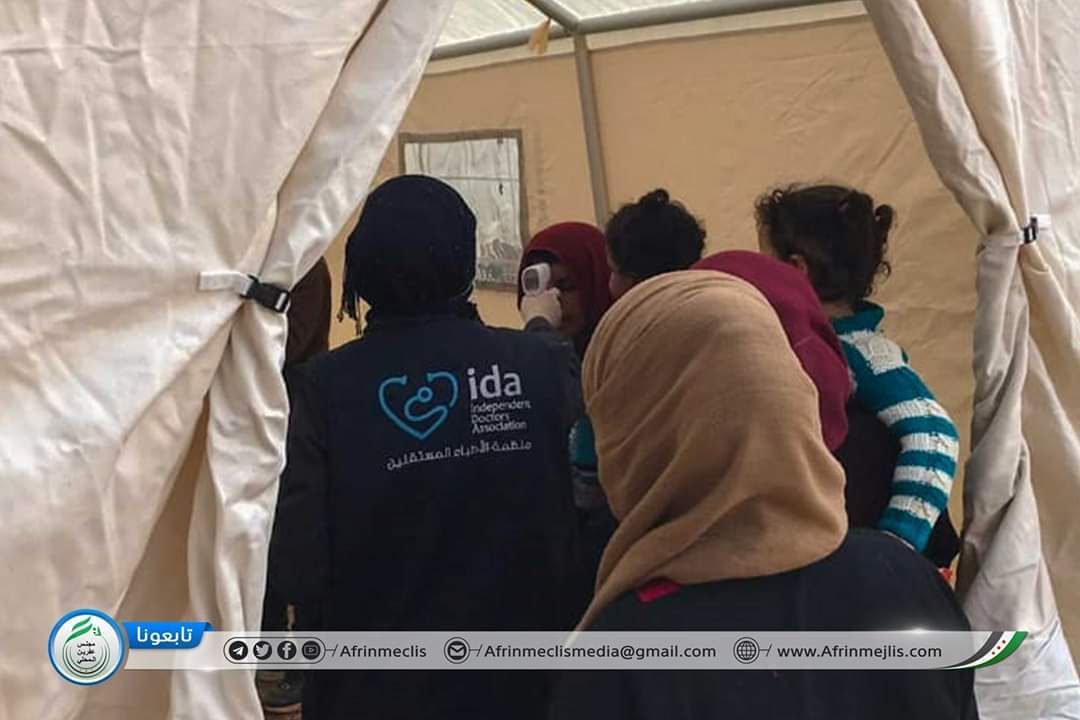
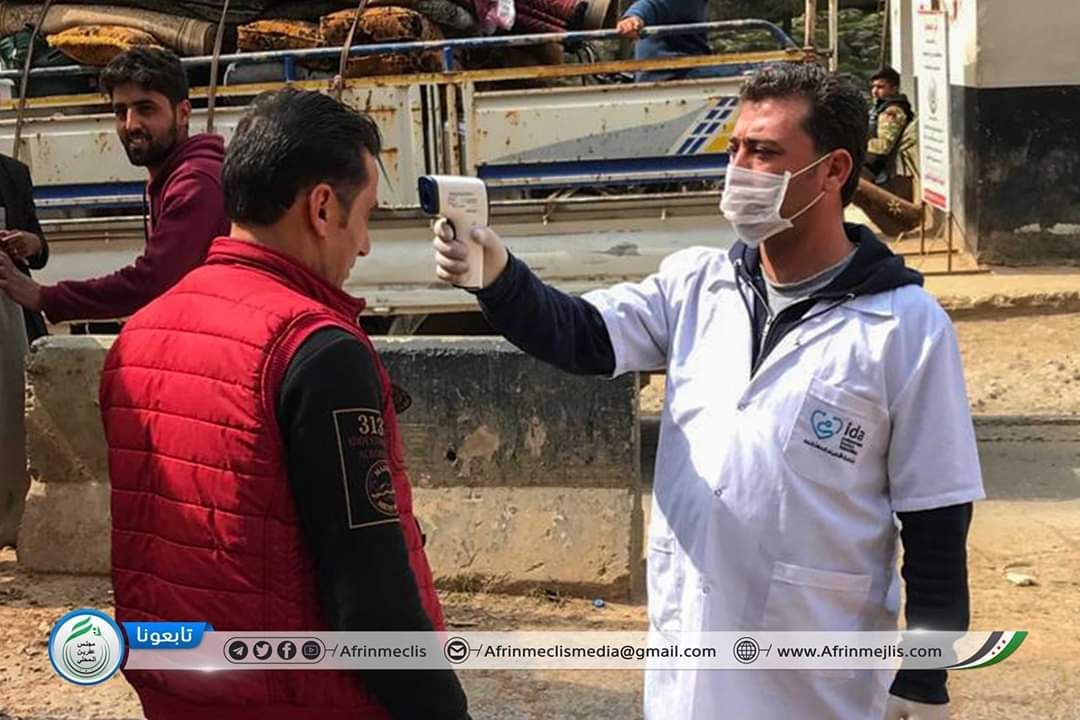
The Aleppo Health Directorate of the Ministry of Health in coordination with the local councils distributed brochures for the prevention of the coronavirus covering all of rural Aleppo
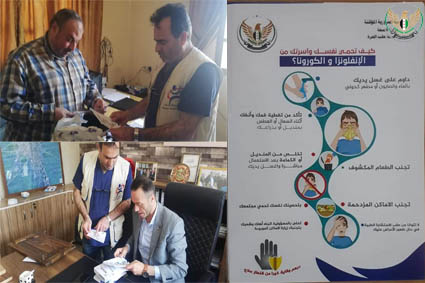
March 15:
Guidelines to reduce the risk of infection from the coronavirus
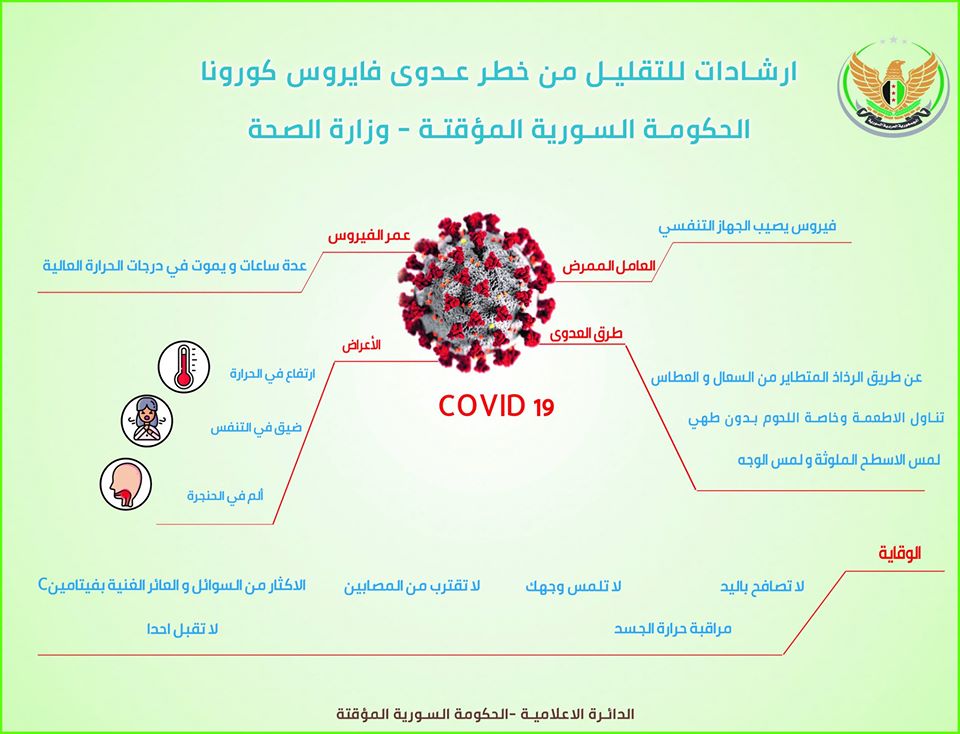
March 14:
As a protective measure in the face of coronavirus, the Ministry of Health in cooperation with the Turkish Ministry of Health and the WHO, announced its intention to carry out a package of preventative measures
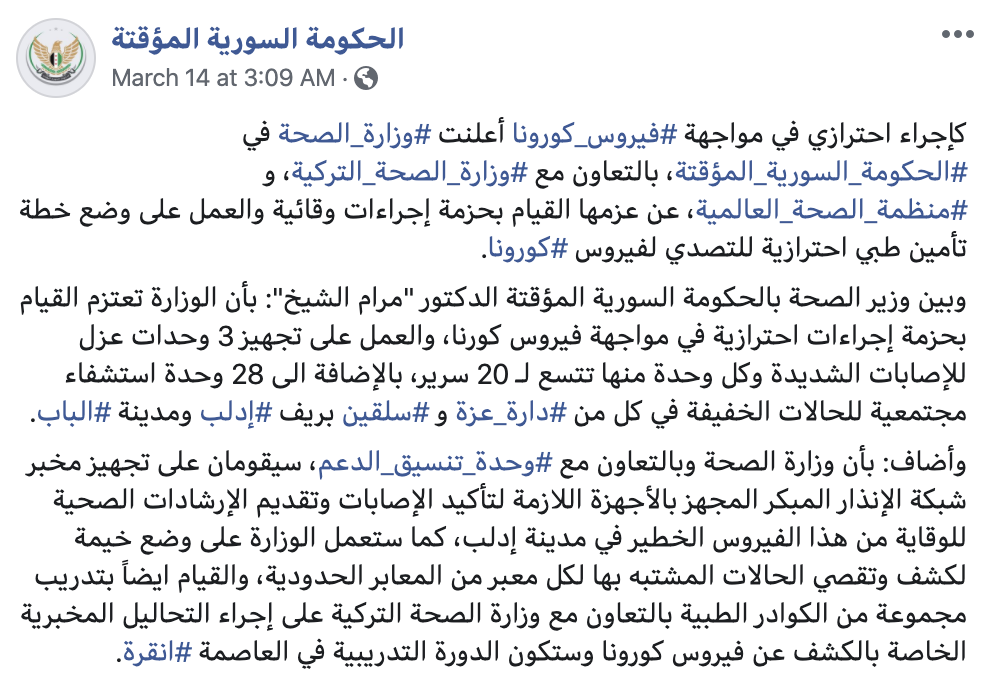
March 13:
The Ministry of Education issued a circular to warn about the spread of the coronavirus among students in schools and universities after its spread in areas of the regime

March 10:
Precautionary measures to confront “Corona” in northern countryside of Aleppo
Articles of the Week – 9/7-9/13
Assessing success of the Global War on Terror: terrorist attack frequency and the backlash effect – Kyle T. Kattelman, Dynamics of Asymmetric Conflict: https://bit.ly/2kg8rLK
Towards a typology of non-state actors in ‘hybrid warfare’: proxy, auxiliary, surrogate and affiliated forces – Vladimir Rauta, Cambridge Review of International Affairs: https://bit.ly/2kN2ZjE
Framing British ‘Jihadi Brides’: Metaphor and the Social Construction of I.S. Women – Leonie B. Jackson, Terrorism and Political Violence: https://bit.ly/2kKAFyx
Tuesday September 10:
The Development of Tunisia’s Domestic Counter-Terrorism Finance Capability – Aaron Y. Zelin and Katherine Bauer, CTC Sentinel: https://bit.ly/2kNNurV
Relatives, Redemption, and Rice: Motivations for Joining the Maute Group – Julie Chernov Hwang, CTC Sentinel: https://bit.ly/2lNqObn
Taking Aim: Islamic State Khorasan’s Leadership Losses – Amira Jadoon and Andrew Mines, CTC Sentinel: https://bit.ly/2mhyhzM
Wednesday September 11:
It’s Hard to Commemorate 9/11 If You Don’t Understand It. – Daniel Byman, Foreign Policy: https://bit.ly/2ktMGs9
The Ghosts of Past Wars Live on in a Critical Archive – Bruce P. Montgomery and Michael P. Brill, War on the Rocks: https://bit.ly/2mh2XRF
Not Whether, But When? Governments’ Use of Militias in War – Caitlin Ambrozik, Security Studies: https://bit.ly/2kN3fPE
Preventing violent extremism in East Africa: lessons from Kenya, Somalia, Tanzania and Uganda – Isel van Zyl and Maram Mahdi, Institute for Security Studies: https://bit.ly/2msPIxv
Thursday September 12:
Dissent in the Islamic State: Secret Advice Sent to Islamic State Leaders – Aymenn Jawad Al-Tamimi: https://bit.ly/2mhz3ga
Three Constitutional Thickets: Why Regulating Online Violent Extremism is Hard – Daphne Keller, Program on Extremism: https://bit.ly/2AhfQim
Leading with a Fist: A History of the Salafi Beard in the 20th-Century Middle East – Aaron Rock-Singer, Islamic Law and Society: https://bit.ly/2m168N8
Friday September 13:
Social Media, Terrorist Content Prohibitions and the Rule of Law – Stuart Macdonald, Program on Extremism: https://bit.ly/2Q7kKcp
Disinformation in Terrorist Content Online – Nina Jankowicz, Program on Extremism: https://bit.ly/2Q9bHYG
Unraveling the Impact of Social Media on Extremism – Anjana Susarla, Program on Extremism: https://bit.ly/2AgDv2r
The Internet Police – Jeff Breinholt, Program on Extremism: https://bit.ly/2QoQ1bd
Russia in the Eyes of Islamic State: An Analysis of the Content of Dabiq and Rumiyah Magazines and Russia’s Involvement in the Fight against the Islamic State – Marta Sara Stempień, Terrorism and Political Violence: https://bit.ly/2klr3dq
Articles of the Week – 6/8-7/19
The Non-Jihadi Foreign Fighters: Western Right-Wing and Left-Wing Extremists in Syria – Ariel Koch, Terrorism and Political Violence: https://bit.ly/2JSgSG1
“Partisan Politics Was Making People Angry”: The Rise and Fall of Political Salafism in Kenya – Sebastian Elischer, The Journal of the Middle East and Africa: https://bit.ly/2O62bEA
Exploiting Borders in the Sahel: The Islamic State in the Greater Sahara – Pauline Le Roux, Africa Center for Strategic Studies: https://bit.ly/304Mui3
Tuesday June 11:
When Extremists Become Violent: Examining the Association Between Social Control, Social Learning, and Engagement in Violent Extremism – Michael H. Becker, Studies in Conflict & Terrorism: https://bit.ly/2JRjZxU
Who is More Violent in Extremist Groups? A Comparison of Leaders and Followers – Katarzyna Jasko and Gary LaFree: https://bit.ly/2Lb1vsE
Wednesday June 12:
Updated review and developments in jihadist radicalisation in Switzerland – updated version of an exploratory study on prevention and interventionn – Miryam Eser Davolio, Mallory Schneuwly Purdie, Fabien Merz, Johannes Saal, and Ayesha Rether, Zurich Universities of Applied Sciences and Arts: https://bit.ly/2GlcYob
Thursday June 13:
Playing dirty to survive: the vulnerability of civilian targets within U.S. military aid recipient states – Amira Jadoon, Small Wars & Insurgencies: https://bit.ly/2Gm4mxl
Territoriality of radical Islam: comparative analysis of jihadist groups’ approach to territory – Bohumil Doboš, Martin Riegl, and Stig Jarle Hansen, Small Wars & Insurgencies: https://bit.ly/2LyrcX2
Organized insurgency, lethality, and target selection: Abu Sayyaf Group and Jemaah Islamiyah – Nori Katagiri, Small Wars & Insurgencies: https://bit.ly/2Z8aW28
Friday June 14:
Women in Islamic State Propaganda – Europol: https://bit.ly/2FcMwMH
Monday June 17:
How Do Terrorist Organizations Make Money? Terrorist Funding and Innovation in the Case of al-Shabaab – Ido Levy and Abdi Yusuf, Studies in Conflict & Terrorism: https://bit.ly/2O7H9Wg
Tuesday June 18:
Primary Data and Individual Worldviews: Walking through Research on Terrorist Media Choices – Donald Holbrook, Resolve Network: https://bit.ly/2JHNfsb
Religious Institutionalism: A Domestic Explanation for External Support of Rebel Groups – Brandon Ives, International Interactions: https://bit.ly/2SsgUbu
Motivations for Jihad and Cognitive Dissonance – A Qualitative Analysis of Former Swedish Jihadists – Marco Nilsson, Studies in Conflict & Terrorism: https://bit.ly/31HUuao
Wednesday June 19:
Introducing Extended Data on Terrorist Groups (EDTG), 1970 to 2016 – Dongfang Hou, Khusrav Gaibulloev, and Todd Sandler, Journal of Conflict Resolution: https://bit.ly/2O7I0pW
Thursday June 20:
Made-to-measure Qur’anic quotations: the incomplete verses of al-Qaeda in the Islamic Maghreb – Sergio Altuna Galán, Real Instituto Elcano: https://bit.ly/2JRd1sQ
Regulating terrorist content on social media: automation and the rule of law Stuart Macdonald, Sara Giro Correia, and Amy-Louise Watkin, International Journal of Law in Context: https://bit.ly/2JYIwB0
Friday June 21:
Opposition to Abu Bakr al-Baghdadi: ‘The Hollow Organization’ – Aymenn Jawad Al-Tamimi: https://bit.ly/2XVdKTy
Tuesday June 25:
What’s on the Terrorists’ Bookshelves? – Donald Holbrook, Europol: https://bit.ly/2GlKhY9
Black Ops: Islamic State and Innovation in Irregular Warfare Craig Whiteside, Ian Rice, and Daniele Raineri, Studies in Conflict & Terrorism: https://bit.ly/2StCZGM
Call of Duty Jihad: How the Video Game Motif has Migrated Downstream from Islamic State Propaganda Videos – Cori E. Dauber, Mark D. Robinson, Jovan J. Baslious, and Austin G. Blair, Perspectives on Terrorism: https://bit.ly/2YYSGbm
The Utility of Disabled Fighters in the Islamic State – Chelsea Daymon, Perspectives on Terrorism: https://bit.ly/32F2yZV
Behind the Veil: Women in Jihad after the Caliphate – Lydia Khalil, Lowy Institute: https://bit.ly/31VJ7vD
Wednesday June 26:
Interview with Syrian war veteran Khalid Shishani – Joanna Paraszczuk, From Chechnya to Syria: https://bit.ly/2xUK1L9
The Jurisprudence Trace Behind the DAESH Trench: Theoretical Basis of Islamic Fundamentalism Focusing on Kurdistan Province of Iran – Farhad Bayani, Asian Journal of Middle Eastern and Islamic Studies: https://bit.ly/2M34C8o
Communication (un)savviness and the failure of terrorism: a case of Pakistani terrorist organizations – Muhammad Feyyaz, Dynamics of Asymmetric Conflict: https://bit.ly/2xWCBa9
Thursday June 27:
Women and Al-Shabaab’s Insurgency – International Crisis Group: https://bit.ly/2xYVyJf
Rethinking the repression-dissent nexus: assessing Egypt’s Muslim Brotherhood’s response to repression since the coup of 2013 – Khalil al-Anani, Democratization: https://bit.ly/2GyKwzl
ISIS’s Second Comeback: Assessing the Next ISIS Insurgency – Jennifer Cafarella, Brandon Wallace, and Jason Zhou, Institute for the Study of War: https://bit.ly/2J2a1KL
The Philippines: Militancy and the New Bangsamoro – International Crisis Group: https://bit.ly/30K6cA0
From religious performances to martial themes – Discourses of Shi’a musical eulogies, war and politics in Iran – Soudeh Ghaffari, Journal of Language and Politics: bit.ly/2PFOfAn
Friday June 28:
Researching Violent Extremism: The State of Play – J.M. Berger, Resolve Network: https://bit.ly/32PpNRg
A Study of Outlinks Contained in Tweets Mentioning ‘Rumiyah’ – Stuart Macdonald, Daniel Grinnell, Anina Kinzel, and Nuria Lorenzo-Dus, RUSI: https://bit.ly/2YvticU
Sunday June 30:
How Content Removal Might Help Terrorists – Joe Whittaker, Lawfare: https://bit.ly/2LxcUFM
Structure of HTS’ Popular Resistance Companies – Caleb Weiss, The Line of Steel: https://bit.ly/2Y5GDYv
Wednesday July 3:
Surviving Boko Haram: why children under five matter – Uyo Yenwong-Fai, Institute for Security Studies: https://bit.ly/2LwwkLb
Tunisia Keeps Calm and Carries On After Latest Terrorist Attack – Aaron Y. Zelin, Washington Institute for Near East Policy: https://bit.ly/2xXzRJB
Thursday July 4:
Shedding Light on Terrorist and Extremist Content Removal – Isabelle van der Vegt, Paul Gill, Stuart Macdonald, and Bennett Kleinberg, RUSI: https://bit.ly/2Zcw8ni
Friday July 5:
Terrorist assassinations and societal unrest in Africa: a research brief – Laura N. Bell, Dynamics of Asymmetric Conflict: https://bit.ly/2Y6XWIp
Considering the military-media nexus from the perspective of competing groups: the case of ISIS and AQAP – Carol Winkler, Kareem El-Damanhoury, Aaron Dicker, Yennhi Luu, Wojciech Kaczkowski, and Nagham El-Karhili, Dynamics of Asymmetric Conflict: https://bit.ly/2Z2qlAX
Saturday July 6:
Measuring Tactical Innovation in Terrorist Attacks Article – Michael K. Logan, Gina Scott Ligon, and Douglas C. Derrick, The Journal of Creative Behavior: https://bit.ly/2JF4oCB
Monday July 8:
Another Form of American Exceptionalism? A Comparative Analysis of Terrorism Sting Operations in the US and Abroad – Jesse J. Norris, Terrorism and Political Violence: https://bit.ly/30MA0Ma
The Algerian State, Islamist Insurgents, and Civilians Caught in Double Jeopardy by the Violence of the Civil War of the 1990s – C. R. Pennell, Terrorism and Political Violence: https://bit.ly/2LvLZdB
Poverty and Divine Rewards: The Electoral Advantage of Islamist Political Parties – Sharan Grewal, Amaney A. Jamal, Tarek Masoud, and Elizabeth R. Nugent, American Journal of Political Science: https://bit.ly/2JIV4xM
Tuesday July 9:
Nigeria’s Shi’a Islamic Movement and Evolving Islamist Threat Landscape: Old, New and Future Generators of Radicalization – Simon Gray & Ibikunle Adeakin, African Security: https://bit.ly/30NNjMK
A Man, A Plan, So What? The Influence of Abu Mus’ab al-Suri, Reconsidered – Phillip William Etches, Small Wars Journal: https://bit.ly/2YfuzI6
A Turn to Violence: The Escalation of Nonviolent Movements – Kirssa Cline Ryckman, Journal of Conflict Resolution: https://bit.ly/2XP2TKK
Rhetorics of Radicalism – Daniel Karell and Michael Freedman, American Sociological Review: https://bit.ly/2GjXcK2
Wednesday July 10:
Economics of terrorism in Lake Chad Basin – Malik Samuel, Institute for Security Studies: https://bit.ly/2XRHSiF
Islamic State’s quest for legitimacy: An analysis of IS media frames in Dabiq magazine – Kasun Ubayasiri, Media, War & Conflict: https://bit.ly/2JPVRf0
The Evolution of Online Violent Extremism in Indonesia and the Philippines – Nava Nuraniyah, RUSI: https://bit.ly/2M36IoM
Thursday July 11:
The Salafi-Jihadist Reaction to Hindu Nationalism – Hari Prasad, Current Trends in Islamist Ideology: https://bit.ly/2XQpFSC
Countering Violent Extremism Online: The Experiences of Informal Counter Messaging Actors – Benjamin Lee, Policy & Internet: https://bit.ly/2pibdSL
Friday July 12:
Drones, Surveillance, and Violence: Theory and Evidence from a US Drone Program – Asfandyar Mir and Dylan Moore, International Studies Quarterly: https://bit.ly/2Y8zzPs
Saturday July 13:
Of terrorism and revenue: Why foreign aid exacerbates terrorism in personalist regimes – Andrew Boutton, Conflict Management and Peace Science: https://bit.ly/2Y6zNBU
Tuesday July 16:
Suicide squad: Boko Haram’s use of the female suicide bomber – Vesna Markovic, Women & Criminal Justice: https://bit.ly/2YdWYhF
Blacklists, Market Enforcement, and the Global Regime to Combat Terrorist Financing – Julia C. Morse, International Organization: https://bit.ly/2XRJ4Tb
Wednesday July 17:
Assessing the Impact of the Global War on Terrorism on Terrorism Threats in Muslim Countries – Peter S. Henne, Terrorism and Political Violence: https://bit.ly/2YYVmWs
Thursday July 18:
East Africa’s Terrorist Triple Helix: The Dusit Hotel Attack and the Historical Evolution of the Jihadi Threat – Matt Bryden and Premdeep Bahra, CTC Sentinel: https://bit.ly/2XVFIym
rom Daesh to ‘Diaspora’ II: The Challenges Posed by Women and Minors After the Fall of the Caliphate – Joana Cook and Gina Vale, CTC Sentinel: https://bit.ly/2y0BtT4
When Terrorists Stay Home: The Evolving Threat to Europe from Frustrated Travelers – Robin Simcox, CTC Sentinel: https://bit.ly/2Z2i2oP
Friday July 19
Terrorist Definitions and Designations Lists What Technology Companies Need to Know – Chris Meserole and Daniel Byman, RUSI: https://bit.ly/2JHEEpq
Articles of the Week – 2/2-2/8
Crime, Conflict, and the Legitimacy Trade-Off: Explaining Variation in Insurgents’ Participation in Crime – Victor H. Asal, R. Karl Rethemeyer, and Eric W. Schoon, The Journal of Politics: https://bit.ly/2TGhkuA
Tuesday February 5:
Saudi Foreign Fighters: Analysis of Leaked Islamic State Entry Documents – Abdullah bin Khaled Al-Saud, ICSR: https://bit.ly/2Dbz7ms
The Double-track System of Terrorism Proscription in China – Chi Zhang, Terrorism and Political Violence: https://bit.ly/2GuQ7Y4
Thursday February 7:
Preventing the Next Wave of Foreign Terrorist Fighters: Lessons Learned from the Experiences of Algeria and Tunisia – R. Kim Cragin, Studies in Conflict & Terrorism: https://bit.ly/2E0DJxg
Recruitment and Incitement to Violence in the Islamic State’s Online Propaganda: Comparative Analysis of Dabiq and Rumiyah – Miron Lakomy, Studies in Conflict & Terrorism: https://bit.ly/2DZFVW1
Russian IS militant captured by SDF served in Russian Army in 2012 & was with “Jihadi Tolik” in Syria – Joanna Paraszczuk, Chechens in Syria: https://bit.ly/2UNMDUA
Articles of the Week – 12/8-12/14
One Land, Two Rules (2): Delivering public services in insurgency-affected Obeh district of Herat province – S Reza Kazemi, Afghanistan Analysts Network: https://bit.ly/2EbaKHK
Monday December 10:
Is protest a safety valve against ISIS in Tunisia? – Christopher Barrie and Neil Ketchley, The Monkey Cage: https://wapo.st/2GbhSq2
Is Boko Haram’s notorious leader about to return from the dead again? – Jacob Zenn, African Arguments: https://bit.ly/2QubkaQ
Assessing Outcomes of Online Campaigns Countering Violent Extremism: A Case Study of the Redirect Method – Todd C. Helmus and Kurt Klein, RAND: https://bit.ly/2Lb5h4V
Re-Examining the Local Roots of Tunisia’s Foreign Fighter Mobilization: A Return to All Jihad is Local – David Sterman, New America Foundation: https://bit.ly/2EpnWsH
Caliphate, hijrah and martyrdom as performative narrative in ISIS Dabiq magazine – Erkan Toguslu, Politics, Religion & Ideology: https://bit.ly/2SKXlKg
A Storm on the Horizon? “Twister” and the Implications of the Blockchain and Peer-to-Peer Social Networks for Online Violent Extremism – Gareth Mott, Studies in Conflict & Terrorism: https://bit.ly/2GeBs4N
The internal brakes on violent escalation: a typology – Joel Busher, Donald Holbrook, and Graham Macklin, Behavioral Sciences of Terrorism and Political Aggression: https://bit.ly/2RVYBu9
Wednesday December 12:
Rightsizing the Transnational Jihadist Threat – Sam Heller, International Crisis Group: https://bit.ly/2UDpG7e
Decentralised Terrorism: The Next Big Step for the so-called Islamic State (IS)? – Lorand Bodo, Vox-Pol: https://bit.ly/2rDRhaQ
Thursday December 13:
The death of a jihadist: A chance to curb Mali’s conflict – Andrew Lebovich, European Council on Foreign Relations: https://bit.ly/2LdLuBS
Drug Trafficking, Violence and Politics in Northern Mali – International Crisis Group: https://bit.ly/2SMJS4N
Dead Land: Islamic State’s Deliberate Destruction of Iraq’s Farmland – Amnesty International: https://bit.ly/2En2ZOH
ISIS’s charm offensive toward al-Qaeda in the Islamic Maghreb – Tore Refslund Hamming, Middle East Institute: https://bit.ly/2Qxv1P2
Umar Shishani’s big break: Base 111, Sheikh Suleiman, Aleppo, 9 December 2012 – Joanna Paraszczuk, Chechens in Syria: https://bit.ly/2QQZSp7
How Mauritania exports religion to Saudi Arabia—And not just the other way around – Michael Farquhar and Alex Thurston, Brookings Institution: https://brook.gs/2ryIszf
Friday December 14:
Fixing the Cracks in the Pakistani Taliban’s Foundation: TTP’s Leadership Returns to the Mehsud Tribe – Amira Jadoon, Sara Mahmood, CTC Sentinel: https://bit.ly/2Bz4pTv
United States v. Aws Mohammed Younis al-Jayab: A Case Study on Transnational Prosecutions of Jihadi Foreign Fighter Networks – Bennett Clifford and Seamus Hughes, CTC Sentinel: https://bit.ly/2QHHfVk
The significance of the discursive strategies in al-Baghdadi’s and al-Zawahiri’s hortatory speeches: A multidisciplinary approach – Ali Badeen Mohammed Al-Rikaby and Tengku Sepora Tengku Mahadi, Journal of Language and Politics: https://bit.ly/2PFtdho
Articles of the Week – 9/8-9/14
Al-Qa`ida’s First American Foreign Fighter after 9/11 – Bryant Neal Viñas and Mitchell Silber, CTC Sentinel: https://bit.ly/2NE91Qi
Treatment of Terrorists: How Does Gender Affect Justice? – Audrey Alexander and Rebecca Turkington, CTC Sentinel: https://bit.ly/2O3VONu
From Caliphate to Caves: The Islamic State’s Asymmetric War in Northern Iraq – Derek Henry Flood, CTC Sentinel: https://bit.ly/2p8kyJQ
Femme Fatale: The Lethality of Female Suicide Bombers – Burcu Pinar Alakoc, Studies in Conflict & Terrorism: https://bit.ly/2N8Pyrr
The Three Ps of Radicalization: Push, Pull and Personal. A Systematic Scoping Review of the Scientific Evidence about Radicalization Into Violent Extremism – Matteo Vergani, Muhammad Iqbal, Ekin Ilbahar, and Greg Barton, Studies in Conflict & Terrorism: https://bit.ly/2OopBRr
Dar al-Islam: A Quantitative Analysis of ISIS’s French-Language Magazine – Andrew C. Sparks, Studies in Conflict & Terrorism: https://bit.ly/2CUbUID
On the Durability of Terrorist Networks: Revealing the Hidden Connections between Jihadist Cells – David Bright, Chad Whelan , and Shandon Harris-Hogan, Studies in Conflict & Terrorism: https://bit.ly/2NInM4B
Tuesday September 11:
Fursan al-Din: Interview – Aymenn Jawad Al-Tamimi: https://bit.ly/2CTNKO8
Wednesday September 12:
From Goods and Services to Counterterrorism: Local Messaging in Hay’at Tahrir al-Sham’s Propaganda – Lina Raafat and Charles Lister, Jihadica: https://bit.ly/2NDZ0m1
Theology, heroism, justice, and fear: an analysis of ISIS propaganda magazines Dabiq and Rumiyah – Tyler Welch, Dynamics of Asymmetric Conflict: https://bit.ly/2NH9zVv
The Taliban’s Fight for Hearts and Minds – Ashley Jackson, Foreign Policy: https://bit.ly/2p79rRn
Thursday September 13:
ISIS, Women and Jihad: Breaking With Convention – Charlie Winter, Tony Blair Institute for Global Change: https://bit.ly/2MPzO7G
=&0=&
Refugee Radicalization/Militarization in the Age of the European Refugee Crisis: A Composite Model – Marina Eleftheriadou, Terrorism and Political Violence: https://bit.ly/2ps4nXH
Support for democracy and liberal sexual mores among Muslims in Western Europe – Viivi Eskelinen and Maykel Verkuyten, Journal of Ethnic and Migration Studies: https://bit.ly/2PV8rej
The Clear Banner: A Brief Update On Ethnic Georgian Foreign Fighters In The Islamic State
—
A Brief Update On Ethnic Georgian Foreign Fighters In The Islamic State
By Bennett Clifford
Background
In 2015, the government of Georgia estimated that 41 of its citizens were active combatants in jihadist groups in Syria and Iraq, while other reports suggest that the contingent may have been as large as 100.1 The bulk of the foreign jihadist fighters from Georgia originated from the Pankisi Valley, an isolated set of villages in the north-east of the country that is renowned as a source of prominent foreign fighters, including the Islamic State (IS)’s deceased minister of war, Tarkhan Batirashvili (Umar al-Shishani).2 The majority population in the Pankisi Valley are Kists. Related closely to the Chechens of the North Caucasus, the Kists maintain distinct religious traditions, customs, folk laws (adat-tsesebi), and a unique dialect of the Chechen language.
Most of Georgia’s foreign fighters in Syria and Iraq are ethnic Kists from the Pankisi Valley, but the second largest demographic are ethnic Georgian Muslims.3 A database maintained by the author includes eight ethnic Georgians who successfully traveled to Syria and Iraq to join ISIS. Unlike in the Pankisi Valley, where foreign fighter recruitment is geographically consolidated, ethnic Georgian fighters come from various settlements and villages throughout the country. During Soviet rule in Georgia, particularly during its twilight years, ethnic Georgian Muslims living in the high mountainous communities of the south-western province of Adjara were resettled throughout the country due to a combination of ecological disasters and government planning policies.4 Most of the ethnic Georgian foreign fighters came from these “eco-migrant” settlements: in particular, the villages of Nasakirali and Zoti in the western province of Guria, and particular villages within the Tsalka municipality in the central Kvemo Kartli region.
This brief post covers the reported fates of three members of the ethnic Georgian foreign fighter contingent after the loss of IS territory in Syria and Iraq, revealing new information on their status and whereabouts. Perhaps most importantly, one of the major (and arguably, only) IS Georgian-language propagandists and the group’s standard-bearer, Tamaz Chaghalidze, is ostensibly alive and has returned to social media during the past few months, posting a barrage of new Georgian-language material. These posts glorify the martyred “heroes of the Islamic State,” offer justifications for IS’ losses in the sieges of Mosul and Raqqa, and provide insight on other Georgians in Syria and Iraq. One post, included in full with an English translation below, discusses the fates of two members of the group– Badri Iremadze and Murman Paichadze.
Who is Tamaz Chaghalidze?
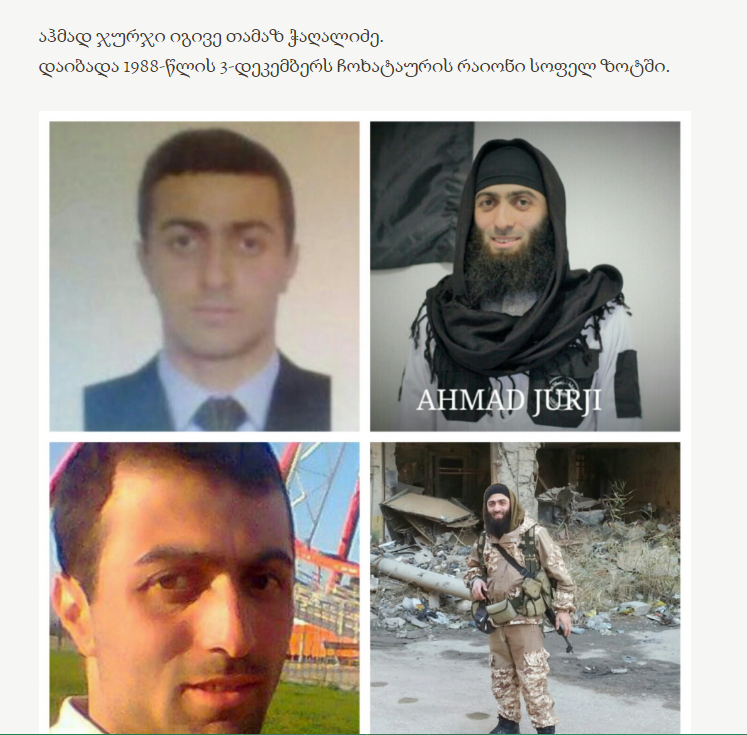
Post from an autobiography on Tamaz Chaghalidze’s WordPress site. “Ahmad Jurji, also known as Tamaz Chaghalidze, was born on December 3, 1988 in the village of Zoti in Chokhatauri municipality.”
Tamaz Chaghalidze (kunya: Ahmad Jurji), largely unknown outside of Georgia, is directly responsible for the majority of IS propaganda in the Georgian language. Born in 1988 in the village of Zoti in the province of Guria, Chaghalidze left for the city of Batumi in Adjara in 2006, where he studied international economics at Shota Rustaveli State University. During his eight years in Batumi, he transitioned from participation as a political operative for a major Georgian party to an active figure in the local Islamist scene, and in 2014, he traveled to Syria to join the jihad.5 As an opening salvo in a flood of propaganda, shortly after his departure to Syria he published a video in August 2014 declaring his allegiance to Abu Bakr al-Baghdadi and threatening Georgia for its mistreatment of Muslims.6
The video reached viral status in Georgia and resulted in the opening of an investigation by Georgia’s State Security Services into Chaghalidze’s threats against Georgia.7 Chaghalidze remained active online, utilizing a still-active Odnoklassiki profile which he opened before his departure to disseminate even more threats. Stylistically, Chaghalidze’s content errs towards self-promotion and directly appeals to ethnic Georgian Muslims, particularly eco-migrants. In many posts, he utilizes Adjaran dialect and slang, punctuating Salafi-jihadist religious teachings with invectives targeting members of the Georgian Orthodox Church, Georgian Muslim institutions, the Georgian armed forces, and others:
“Attention- to the kaafirs in Georgia who did anything against Islam and Muslims as part of NATO missions in Iraq, Afghanistan, Africa,8 or in Georgia itself in Lapanquri,9 Pankisi, Guria, Adjara, Javakheti or other regions. We know all your actions and you will pay for everything with your dirty kaafir blood. I warn you again- do not touch any Muslim brother or mosque or anything that concerns the name of Islam; otherwise, one day, when the black flags fly over Georgia, you will have nowhere to escape. You will beg on your knees, and they will show it on TV programs. You rats will regret the day you were created. We will cause so much trouble for the Patriarchate in Adjara that you robe-wearing rats10 will wish you were created as reptiles. I swear, by Allah, every kaafir will pay with their dirty blood. The one chance that civilians have is to accept Islam and pledge allegiance to the Caliphate.”
